
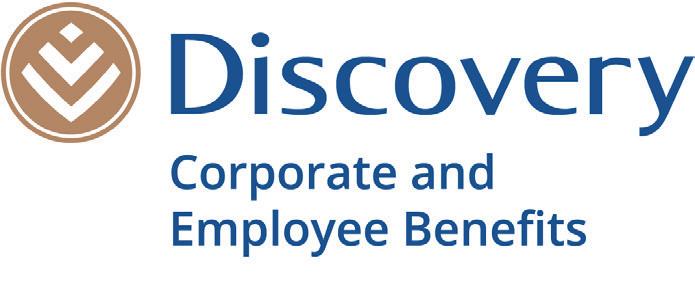



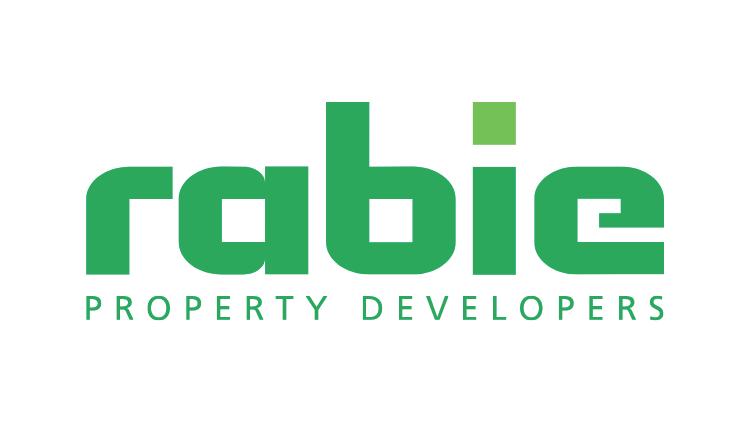
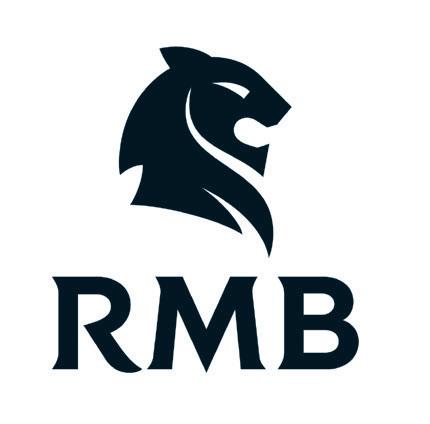
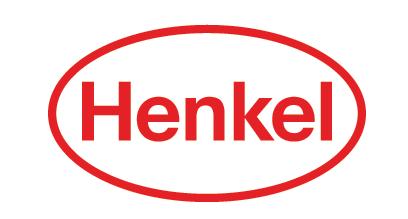



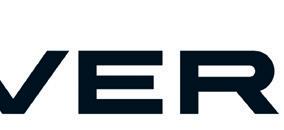
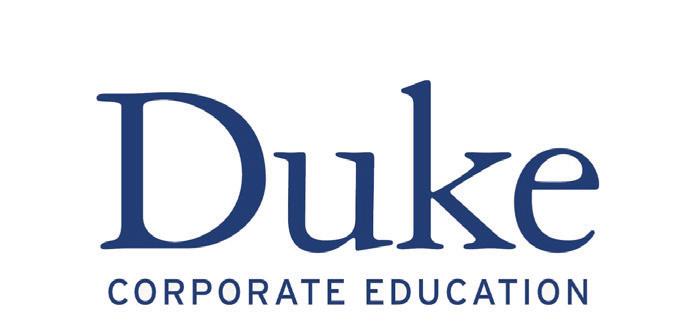
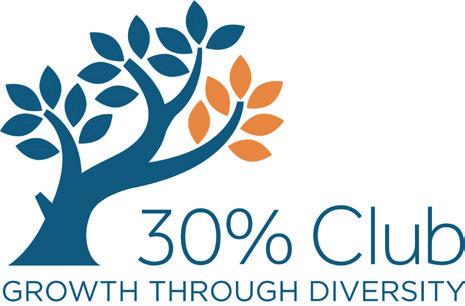
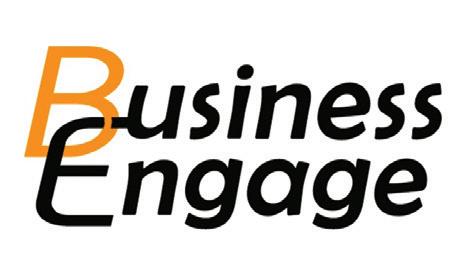
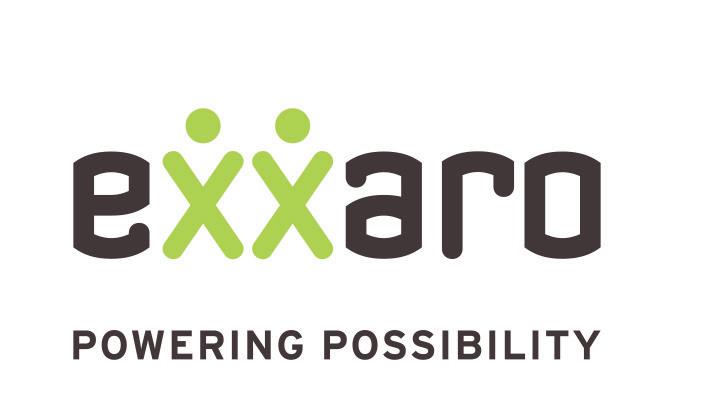
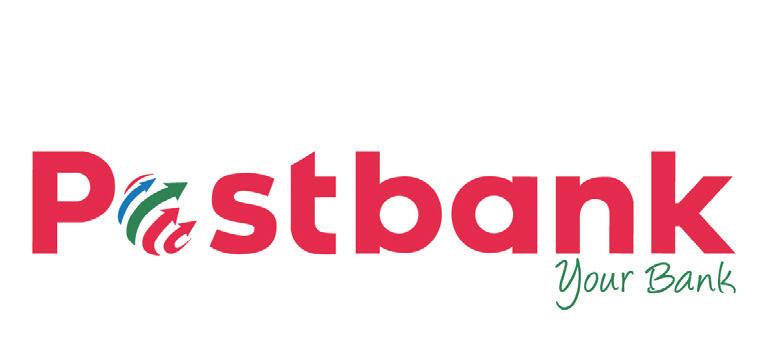




























From a young age, Betty Mathonsi was captivated by maths and science. While she originally envisioned a future in chemical engineering, a purposeful pivot into industrial engineering became the foundation of a career that would lead her into one of the most demanding and male-dominated industries: automotive manufacturing and customer experience. Today, at Jaguar Land Rover South Africa (JLRSA), Mathonsi occupies a role that is equal parts analytical and human. She uses her engineering acumen and customer advocacy to ensure the client’s voice is heard and honoured across every technical, operational and service touchpoint. “Customer experience is where the technical meets the emotional,” she says. “It’s not just about solving the issue; it’s about restoring con dence, dignity and trust and winning customers for life through meaningful retention and care.”
Her career in the automotive industry began over a decade ago when a vehicle manufacturer offered her an internship. What started as an engineering opportunity quickly evolved into passion. The dynamic energy of the vehicle production oor, the complexity of aftersales ecosystems and the opportunity to improve systems that impact people aligned with her core values.
“It’s not just about the metal,” she says. “It’s about the moments that matter to the customer, especially when things go wrong.”
Her early roles exposed her to the operational backbone of the industry, but her transition into regional leadership has shaped her into the strategist she is today. Mathonsi has learned how to in uence without authority, drive performance through people and build relationships across cultural and commercial borders. “Those years taught me that leadership isn’t about control, it’s about clarity, care and connection,” she says.
In her current role at JLRSA, Mathonsi leads the national customer experience agenda with a sharp focus on performance alignment, relationship-building and service
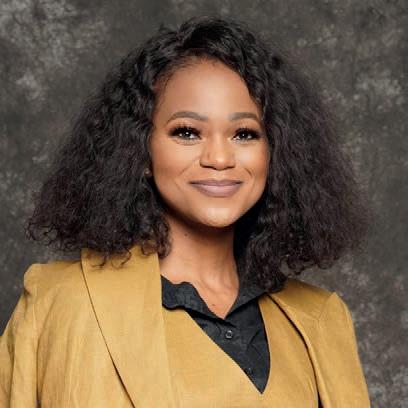
excellence. She is intentional about shaping a client-centric culture where proactive care, accountability and consistency de ne every customer interaction. Her approach centres on creating systems that protect the brand and the customer journey while empowering teams to lead with empathy, insight and professionalism.
This ability to sit at the intersection of service, strategy and systems is what sets her apart. Clients don’t differentiate between departments, they simply want to feel seen, heard and supported. “When a customer’s journey breaks down, my role is to ensure their trust doesn’t,” she explains. That philosophy underpins her work in redesigning internal processes to reduce response times, increase transparency and create seamless customer experiences, even in the most high-pressure cases.
However, her path hasn’t been without challenges. As a young black woman in technical and executive spaces, she’s faced challenges. Pursuing an MBA sharpened her expertise in strategic management, leadership and customer value creation. Coupled with personal development and mentorship, it helped her evolve into a leader who can con dently navigate complex business landscapes while staying rooted in empathy and intentionality.
Mentorship is central to her mission. She credits much of her growth to the leaders who guided her, and now pays it forward through formal and informal coaching. “Mentorship is not a favour, it’s a responsibility,” she says. She believes in holistic support that nurtures the professional, emotional and spiritual dimensions of leadership, particularly for women navigating industries where they are still the exception.
In boardrooms, she displays quiet authority and clear intention. Her leadership style is built on emotional intelligence and solution-driven thinking, creating environments where teams can perform, grow and thrive.
Her extensive experience across African markets has taught her that excellence isn’t one-size- ts-all. Whether dealing with digitally uent customers or relationship-driven buyers, she adapts her approach with cultural uency and strategic empathy. “Our clients want more than service; they want to feel prioritised and valued. When we show up with consistency, care and clarity, everything else follows.”
Mathonsi is a builder: of trust, people, culture and lasting customer connections. She aims to create experiences rooted in trust and empathy. “I lead to create meaningful experiences, strengthen relationships and shape a culture where clients and teams feel seen, valued and respected.”

JAGUAR LAND ROVER shines the spotlight on Irene Kakooza, brand manager, Jaguar and Range Rover South Africa and sub-Saharan Africa, an authentic, empowering leader
For Irene Kakooza, leadership is not about hierarchy; it’s about vision, adaptability and authenticity. As lead for Jaguar and Range Rover
South Africa and sub-Saharan Africa, Kakooza embodies this philosophy in the way she de nes the brand direction of one of the world’s most aspirational marques. Her work is rooted in the belief that Range Rover is more than a luxury brand; it’s the epitome of con dent vision, peerless mastery and elegance, a brand for leaders shaping the future.
Asked what de nes a leader today, Kakooza replies: “Self-awareness, visionary thinking, empowering others and, most importantly, adaptability. Ambiguity is the new normal and leaders must help others prosper through change.” This lens shapes how she positions Range Rover: not just as a symbol of achievement, but as a brand aligned with conscious leadership, where innovation, sustainability and curated experiences converge with elegance and intent.
At the heart of Range Rover’s enduring appeal is its design language, which Kakooza describes as “minimalist yet commanding.” Citing chief creative of cer Gerry McGovern’s ethos that design must serve a purpose, she explains how every element of the vehicle, from its silhouette to its interior nish, communicates con dence, clarity and control. “These are qualities that resonate with modern leaders,” she adds. “Range Rover re ects the kind of presence that doesn’t shout, but speaks volumes.”
However, design alone isn’t enough in today’s evolving world. Kakooza has been instrumental in repositioning Range Rover as a brand of substance – one that champions individuality and impact. Through the SV Bespoke programme, clients are empowered to create vehicles that re ect their unique
identities. Whether through custom interiors, nishes or colour palettes, personalisation becomes a form of self-expression and a testament to Range Rover’s commitment to human-centric design.
Kakooza is a strong advocate for values-driven storytelling. “Stories connect. They resonate. They bring to life the aspirations and experiences of our audience in ways technical details never could.” She’s helped drive a shift away from traditional luxury marketing toward experiences that engage meaningfully with culture, leadership and societal relevance.
One such example is Design Dialogue, an initiative that created space for conversation around leadership, creativity and transformation. “This wasn’t about design for design’s sake,” she clari es. “It was about recognising and amplifying changemakers, people shaping the continent through innovation, collaboration and conviction.” From entrepreneurs to innovators, the event highlighted individuals using their platforms to drive progress. The result? A rede nition of luxury that extends beyond exclusivity into community, conversation and in uence.
For Kakooza, South Africa plays a critical role in Range Rover’s evolving narrative. “This country has never shied away from the world stage,” she says. “From sports to social innovation, our local stories have global relevance. Our aim is to set the stage here for conversations that shape tomorrow, globally.” Whether through partnerships, platforms or brand experiences, she sees her role as one of ampli cation, not just in voice, but also in vision.
Her journey as brand custodian is deeply personal. She speaks of her appreciation for Range Rover’s legacy, its consistency and

its elevation of leaders’ lives. “Every day I’m reminded that this brand stands at the intersection of engineering, design and emotion. It’s futuristic, original and impactful. My job is to honour that while also co-creating its future.”
Looking ahead, Kakooza is excited about the rise of bespoke design and deeper brand personalisation. In a world increasingly de ned by sameness, Range Rover is leaning into individuality. “Luxury today isn’t just about exclusivity; it’s about authenticity and relevance. We’re creating space for our clients to see themselves in the brand, to feel understood and represented.”
Her vision for the future is clear: to elevate lives through products and pupose “Luxury brands have the power to in uence more than trends, they can shape mindsets, open conversations and ignite progress,” she says. “I want to help co-curate a future where brands are trusted to make a meaningful impact in leadership, legacy and purpose.”

Nomaswazi Nkosi, public relations and sponsorship lead, Jaguar Land Rover South Africa and sub-Saharan Africa, tells stories that reflect the brand’s excellence with passion and purpose, writes JAGUAR LAND ROVER
Nomaswazi Nkosi is a communicator at heart, a seasoned storyteller who has seamlessly transitioned from hard-hitting newsrooms to the fast-paced world of luxury motoring. As the public relations and sponsorship lead for Jaguar Land Rover (JLR) South Africa and sub-Saharan Africa, she brings passion, purpose and people-centred thinking to one of the most iconic automotive brands in the world.
Nkosí’s journey began in journalism. “It was my rst love,” she says. “It taught me the power of narrative, how to listen and how to engage meaningfully with audiences.” After several ful lling years as a news reporter, she began looking for her next chapter – one that would still allow her to tell meaningful stories, but in a new context. That opportunity came in the form of a PR role at JLR SA that allowed her to bring her media expertise to the forefront of brand communication and strategy.
“What drew me in was the opportunity to tell stories that re ect both brand excellence and social impact,” she explains. At JLR, she leads media strategy and sponsorships for four luxury brands –Range Rover, Defender, Discovery and Jaguar – ensuring global brand narratives resonate authentically with local South African audiences. “It’s about making sure our messaging re ects South Africa’s diversity while still aligning with JLR’s global vision.”
While she didn’t originally set out to join the motoring industry, she’s found a deep sense of purpose in the space, especially through her work on purpose-led campaigns. Nkosi is particularly passionate about JLR’s partnerships with initiatives
such as Give Her A Crown, which uses storytelling and the arts to promote gender equality, the Kingsley Holgate Foundation, which brings humanitarian relief to remote communities across Africa, and the Defender Awards, which shine a light on grassroots heroes driving conservation and humanitarian efforts across South Africa and beyond by offering them funding, a Defender vehicle and the mentorship needed to amplify their impact.
HAVING BENEFITTED FROM THE GUIDANCE OF POWERFUL FEMALE MENTORS HERSELF, NKOSI IS INTENTIONAL ABOUT PAYING IT FORWARD AND CREATING SPACE FOR THE NEXT GENERATION OF PROFESSIONALS.
“These projects go beyond brand visibility,” she says. “They allow us to use our platform to drive real change, that’s the most rewarding part of my job.”
Her belief in mentorship is just as strong. At a previous company, she launched Mentorfeed, a platform built on the idea that mentorship doesn’t always have to be direct or personal. “You can be mentored by people you may never meet just by following their journey, absorbing their insights and applying their lessons to your own life.” Having bene tted from the guidance of powerful female mentors herself, Nkosi is intentional about paying it forward and creating space for the next generation of professionals.

Navigating male-dominated spaces is nothing new to her. Early in her career, she worked in predominantly male newsrooms, an experience that equipped her to navigate the similarly male-driven automotive industry with con dence. “I’ve never seen my gender as a limitation,” she says. “I see it as a reason to take up space and help shift the culture.”
Among her favourite JLR vehicles is the Range Rover Sport, which she says mirrors her personality – elegant, dynamic and unapologetically bold. She also has a soft spot for the Jaguar F-Type, a head-turner that represents timeless design and performance.
To young women hoping to follow a similar path, Nkosi’s message is clear: “Don’t be afraid to pivot. Your career doesn’t have to be linear. Growth often lives outside your comfort zone. Trust your instincts and give yourself permission to evolve.”
As JLR gears up for an exciting year ahead, Nomaswazi remains one of the brand’s most vital voices, proof that when passion, purpose and storytelling meet, the journey is as powerful as the destination.

Sybella van Niekerk, finance director at Jaguar Land Rover South Africa, believes in goal-setting and adding value, writes JAGUAR LAND ROVER
When Sybella van Niekerk joined Jaguar Land Rover in 2012, she set her sights on one goal: becoming the nance director. Over a decade later, she holds that title, not through chance, but through a career built on long-term vision, adaptability and an unwavering commitment to authenticity.
From the outset, van Niekerk approached her career with clarity and ambition. However, her path to leadership wasn’t linear. It included two grade-level promotions and a lateral move that, while risky at the time, proved transformational.
“That lateral move happened during a major retrenchment process,” she explains. “It gave me invaluable operational experience, a perspective I wouldn’t have had if I’d stuck rigidly to a traditional nance trajectory.” Her promotion came during the height of the COVID-19 pandemic – a reminder that progress can be forged even in the most uncertain times. “Periods of uncertainty are when I’ve doubled down on my ambition. Goals give you something to hold onto when everything else feels unstable.”
Though nance is often viewed as a structured and precise eld, van Niekerk is quick to challenge that assumption. “Finance is evolving,” she says. “It’s not just about balance sheets; it’s about whether our activities are adding value to the business. If they’re not, we automate, delegate, or stop. That’s how you keep the function agile and forward-looking.” Her approach to leadership is grounded in continuous learning and clarity of purpose.
Van Niekerk is a rm believer in setting bold, long-term goals, the kind that feel “big and scary”, and pairing them with short-term, directional milestones. “Speak about your goals,” she advises. “Verbalise them. It brings them to life, and it holds you
accountable.” This philosophy applies not just to her personal development, but also to how she empowers her teams. “I make space for others to pursue their goals. I give them a seat at the table and make sure their voices are heard.”
Authenticity is at the heart of van Niekerk’s leadership style. For her, alignment between professional ambition and personal values is non-negotiable. “All growth needs to be authentic,” she says. “If it’s not, people will see through it and the stress of pretending will catch up with you.” She lives by a simple rule: if she wouldn’t be comfortable telling someone she cares about what she’s doing, it’s probably not aligned with her values. This level of self-awareness has helped her navigate high-pressure environments with integrity and resilience.
That resilience has been tested. There were times when things didn’t go according to plan, but van Niekerk has learned to measure setbacks against the broader arc of her long-term vision. “Setbacks feel big in the moment, but they fade with time,” she re ects. “You can’t let them de ne your journey.”
Mentorship has played a central role in her rise through the ranks. “I’ve had multiple mentors,” she says. “Some I respected deeply, others taught me by showing me leadership styles I didn’t want to emulate. You can learn as much from bad leadership as from good.” She encourages young professionals to seek diverse perspectives and embrace even the toughest feedback as a tool for growth.
Her advice to women navigating nance or corporate environments is rooted in courage: “Set big goals. Say them out loud. And don’t be afraid to take the jump, especially when it scares you.”
Van Niekerk is energised by the transformation unfolding across the

automotive industry, from sustainability to digitalisation. “I see women making real strides in the transformation space,” she says. “It’s a new frontier, not yet dominated by men, that creates room for women to lead with fresh perspective.”
As she continues to shape the nance function and in uence regional operations across sub-Saharan Africa, van Niekerk is clear about the legacy she hopes to leave behind: trust, growth and performance. “That’s the culture I want to help build –one where people feel supported to grow, deliver and lead with purpose.”

Cliffe Dekker Hofmeyr (CDH) is a top-tier South African-based law rm with of ces in Kenya and Namibia. The history of our country and our continent – and indeed, the constitutions of the jurisdictions in which our rm delivers legal services – demands that we embrace the principles of nonracialism, nonsexism and nonsectarianism.
Our rm’s policies and practices animate our vision of being a diverse pan-African law rm, where legal and other professionals and employees across all tiers of our rm are increasingly representative of the countries in which we deliver legal services. These policies and practices are integrated into our operational and strategic management, as well as our recruitment, employee development, engagement and retention efforts. They also guide our approach to working with advocates – particularly in South Africa and Namibia – and correspondent attorneys, ensuring our commitment to diversity, equity, and inclusion is applied in practice, especially in training for specialist legal disciplines, sectoral expertise, and exposure to the rm’s full client base.
Our rm’s longstanding commitment to diversity, equity and inclusion is one of its greatest service strengths, enabling us to offer our clients fresh insights and optimal collaboration that fosters more effective teamwork and partnering in the delivery of exceptional legal services.

www.cliffedekkerhofmeyr.com
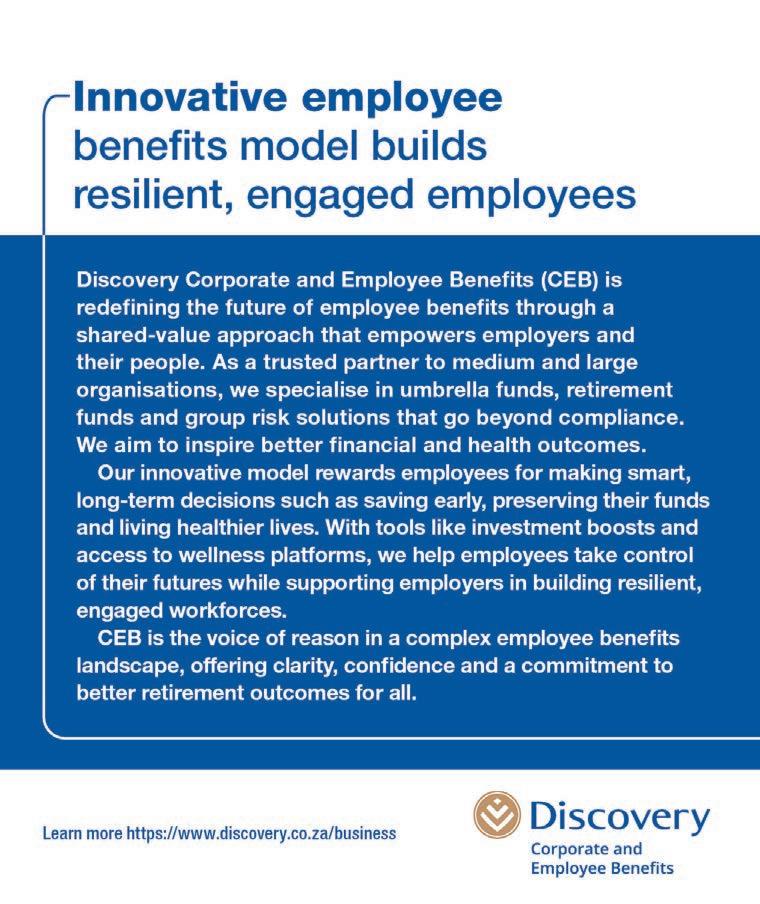
Henkel South Africa (Pty) Ltd, established in 1951, is a subsidiary of the global Henkel AG & Co. KGaA, headquartered in Düsseldorf, Germany. With nearly 200 employees, Henkel South Africa operates a manufacturing facility in Alrode, Gauteng, producing a diverse range of products for industrial and consumer markets.
The company’s operations centre on two main business units: Adhesive Technologies and Consumer Brands. Henkel South Africa supplies specialised adhesives, sealants and surface treatments to various industries, including automotive and metal sectors. Its consumer portfolio features well-known brands, such as Loctite, Pritt and Schwarzkopf, catering to the needs of households and professionals.
Demonstrating a strong commitment to sustainability, Henkel South Africa has implemented initiatives such as the installation of a solar farm at its Alrode plant, signi cantly reducing its carbon footprint. The company also emphasises social responsibility through programmes such as the Tamaho Early Childhood Development Centre, which provides education and support to underprivileged children in the Katlehong community.
Henkel South Africa continues to uphold the global company’s values of innovation, sustainability and social engagement, positively contributing to the local economy and the communities it serves.
www.henkel.com


Rabie Property Developers is a Cape Town-based property development company with a 47-year legacy of shaping exceptional urban environments. Renowned for creating vibrant, sustainable spaces, Rabie’s portfolio spans residential, commercial and mixed-use developments, including the award-winning Century City precinct.
Founded in 1978, the company has consistently pushed the boundaries of innovation, placing thoughtful design, sustainability and community at the heart of its projects. Its developments re ect a long-term vision, combining liveability with modern infrastructure, and a commitment to quality that stands the test of time.
As a privately owned business, Rabie is agile and future-focused with a leadership team that includes strong female representation at the executive level. Under the guidance of CEO Mariska Auret, Rabie continues to lead the way in reimagining urban living with an emphasis on green building principles, inclusive growth and purposeful placemaking.
Beyond bricks and mortar, Rabie believes in building futures, investing in local communities and fostering environments where people can live well, work smart and connect meaningfully. With each project, the company reaf rms its role as a trusted name in South African property, dedicated to creating value with integrity and vision.
Every Range Rover is crafted to elevate our clients’ lives through modernist design, re ned and connected interiors, and electri ed performance – delivering unrivalled luxury inspired by exemplary design since 1970.
The brand includes the Range Rover, Range Rover Sport, Range Rover Velar, and Range Rover Evoque, all underpinned by Land Rover – a trusted name built on 75 years of expertise in technology, vehicle architecture, and world-leading off-road capability.
As part of our vision of modern luxury by design, every Range Rover is available as an electric hybrid. Range Rover is one of the world’s leading British luxury brands, sold in 121 countries. It is part of the Jaguar Land Rover house of brands, alongside Defender, Discovery and Jaguar.
www.rangerover.com
Standard Bank Group is the largest African bank by assets, operating in 20 African countries, four global financial centres and two offshore hubs. Headquartered in Johannesburg, Standard Bank has a 163-year history in South Africa and started building a franchise outside Southern Africa in the early 1990s.
Our strategic position, which enables us to connect Africa to other select emerging markets as well as pools of capital in developed markets and our balanced portfolio of businesses, provide significant opportunities for growth. As at 31 December 2024, Standard Bank had 19.6 million clients, employed over 50 000 people and had over 1 160 branches / points of representation and over 5 500 ATMs on the African continent.
The group’s largest shareholder is the Industrial and Commercial Bank of China (ICBC), the world’s largest bank, with a 19.6 per cent shareholding. In addition, Standard Bank Group and ICBC share a strategic partnership that facilitates trade and deal flow between Africa, China and select emerging markets.

www.rmb.co.za
Exxaro Resources Limited is a South African-based, diversified mining company and one of the largest black-empowered businesses in the country, listed on the Johannesburg Stock Exchange since 2006. Headquartered in Centurion, we have operations in South Africa, with business interests extending to Europe and Australia. Our primary assets include coal, a growing energy solutions division and investments in iron ore and zinc. We recently announced the acquisition of manganese assets as part of our diversification strategy aimed at bringing critical minerals into our portfolio. At Exxaro, we prioritise sustainability, innovation and social impact, aiming to empower communities and protect human rights while fostering diversity, inclusion and a culture of continuous learning among our workforce.
For further information, go to www.standardbank.com



Visit www.exxaro.com to learn more about our business and available opportunities.





True equity work lives in the quiet consistency of leadership, the design of strategy and the courage to be accountable when it counts.
Positioning Africa as the global benchmark for gender transformation.
Despite world-class policies and corporate pledges, SA’s diversity, equity and inclusion progress remains uneven.
24
Women in leadership share how they are challenging and transcending systemic gender barriers to reshape leadership and succeed.
Have we done enough in our pursuit of the United Nations Sustainable Development Goals?
Despite gender equity laws boosting women’s presence in leadership, real in uence remains elusive as patriarchal structures and power dynamics continue to limit their sway.
Many women in their 30s to 50s are rede ning success while questioning if “having it all” is possible or even the right goal.
48 LEADERSHIP



50 MENTORSHIP
While support and guidance are valuable, true advancement for women hinges on powerful advocates and targeted coaching that builds the con dence and skills to seize opportunity.
51 REDESIGNING RETIREMENT
Midlife invites women to reimagine purpose, align values and design a ful lling future – working longer not out of necessity, but with clarity and intention.
54 EXECUTIVE FATIGUE
With burnout rising and pressure mounting, women must rede ne wellbeing – not by doing more, but by breathing deeper, setting boundaries and valuing presence over performance.
55 ENTREPRENEURSHIP
Side hustles have become a common path that working-class South African women take to gain an edge in the job market.
56 ENVIROMENTAL, SOCIAL & GOVERNANCE
Marrying impact with income, SA’s women-led businesses are









57 EMPOWERMENT
Why early intervention in schools is the key to building a more inclusive leadership pipeline.
62 ENTREPRENEURSHIP
From purpose-driven start-ups to tech trailblazing, South African founders Shireen Motara and Kimberley Taylor reveal how women are reshaping entrepreneurship –with courage, clarity and community at the core.
64 ENTREPRENEURIAL LEADERSHIP
Margaret Hirsch on resilience, reinvention and why leadership means lifting others as you rise.
65 AUTHENTIC LEADERSHIP
The journey to leadership is not just about titles; it’s about courage, conviction and changing the rules.
66 LEADERSHIP INTELLIGENCE
How women leaders are embracing ve key quotients to lead with strategy, empathy, agility and purpose in today’s boardrooms.
67 TECHNOLOGY






Tech’s future demands diverse skills beyond coding. Women’s leadership, strategic vision and innovation are vital to reshaping the industry and breaking outdated barriers for inclusion.











Mentorship offers guidance, but sponsorship drives advancement. Active backing from senior leaders is essential to accelerate women’s leadership in South Africa.
















We honour the extraordinary lives of Jenna Clifford and Senamile Masango – two trailblazing South African women whose brilliance, courage and legacy continue to inspire.

Each year, this magazine offers a moment to pause, re ect and reimagine the future through the eyes and experiences of women. This year, we turn our attention to the United Nations Sustainable Development Goals (SDGs) and ask: how should women play a part in reaching these global ambitions in ways that ensure consistent, deliberate action to deliver real, lasting change?
The SDGs aim to address some of the world’s most urgent challenges – poverty, inequality, education, climate action – but progress will remain patchy unless women are not only included, but also empowered to lead. Research and lived experience show that when women are active decision-makers and equal partners in policy, business and community, development outcomes improve. Yet, too often, women are invited to the table merely to ll a quota, not to shape the agenda.
In South Africa, we have seen gains: more women in boardrooms, parliament, science and entrepreneurship. However, we must push beyond representation. True transformation demands that we value what women bring because of their difference, not despite it.
It’s encouraging to witness a growing wave of women de ning success on their terms. This edition is lled with stories of leaders who prioritise empathy alongside ef ciency, those who are swapping traditional corporate roles for running their own

businesses that speak to their values and retirees stepping up instead of stepping back. This shift signals something powerful: a rejection of outdated expectations and a new con dence in womanhood itself that is multidimensional, self-assured and collaborative.

PUBLISHED BY
What we need now is greater momentum. Collaboration across sectors, genders and generations. More women in leadership, yes, but also more inclusive systems that support them to thrive. We must build economies and policies that re ect the realities of women’s lives, not just the metrics of progress.
This edition of FM Women pro les South Africans who are not only making their mark, but also lifting others as they rise. Their stories are proof that applying a gender lens is not an add-on, but the lens through which a more equitable, sustainable world can be built. Let us continue to champion real change – not performative gestures, but purposeful action. Women aren’t just part of the solution. We are the drivers of it.
Lindi Botha Editor
A proud division of Arena Holdings (Pty) Ltd
Hill on Empire, 16 Empire Road (cnr Hillside Road), Parktown, Johannesburg, 2193 PO Box 12500, Mill Street, Cape Town, 8010 www.businessmediamags.co.za
EDITORIAL
Editor: Lindi Botha
Content Manager: Raina Julies rainaj@picasso.co.za
Contributors: Marchelle Abrahams, Colleen Dardagan, Sakhile Dube, Dr Amanda Hamilton-Attwell, Trisha Harinath, Janine Hills, Colleen Larsen, Shireen Motara, Baratang Miya, Chantyl Mulder, Professor Parmi Natesan, Henning Naude, Thando Pato, Kim Potgieter, Linda Reddy, Anthony Sharpe, Kimberley Taylor, Lisa Witepski
Copy Editor: Brenda Bryden
Content Co-ordinator: Natasha Maneveldt
Digital Editor: Stacey Visser, vissers@businessmediamags.co.za
DESIGN
Head of Design: Jayne Macé-Ferguson
Senior Design: Mfundo Archie Ndzo
Project Designer: Anja Hagenbuch
SALES
Project Manager: Merryl Klein, merrylk@picasso.co.za
+27 21 469 2446
+27 82 895 7260
PRODUCTION
Production Editor: Shamiela Brenner
Advertising Co-ordinator: Johan Labuschagne
Subscriptions and Distribution: Fatima Dramat, fatimad@picasso.co.za
Printer: CTP Printers, Cape Town
MANAGEMENT
Management Accountant: Deidre Musha
Business Manager: Lodewyk van der Walt
General Manager, Magazines: Jocelyne Bayer
Copyright: No portion of this magazine may be reproduced in any form without written consent of the publisher. The publisher is not responsible for unsolicited material. FM Women is published by Picasso Headline. The opinions expressed are not necessarily those of Picasso Headline. All advertisements/advertorials have been paid for and therefore do not carry any endorsement by the publisher. WHAT





Under the leadership of CEO Nikki Mbengashe, Postbank is redefining state banking with innovation, inclusion and national purpose, driving sustainable growth for South Africa, writes BUSANI MOYO



Nikki Mbengashe, CEO of Postbank, is a rare breed in the South African nancial sector. Ask anyone who has met her and they will tell you that her energy tells the story of her purpose. With a background in industrial engineering and a leadership style forged by humble beginnings, she is at the helm of one of the country’s most signi cant transformation stories in state-owned nance. Under her stewardship, Postbank is being reimagined, not simply as a nancial vehicle, but also as a partner in national progress.
Mbengashe’s journey into banking wasn’t planned. “I actually started out thinking I’d become a doctor because my older brother inspired me, but midway through a BSc, I realised quickly that it wasn’t for me,” she says with an easy candour. Her natural curiosity, analytical mind and longing for ef ciency led her to industrial engineering.
“Industrial engineering gave me exposure to everything from human resources to mathematics, statistics and accounting – so it allowed me to think holistically and equipped me with the tools to assemble the right information and arrive at something more ef cient,” she explains. “I needed something that ts who I am: analytical, inquisitive, detail-oriented and yet big picture focused and able to pivot quickly, but always seeking ef ciency.”
Banking, she discovered, echoed these qualities: “It’s an industry that’s ever-evolving, where no two days are the same. I looked at banking and saw a sector that drives the economy and is truly at the coalface.” For Mbengashe, the complexity and the challenge of the sector were appealing. “I get bored easily. I need constant challenge and banking, with its scale, impact and ever-shifting environment, matches my personality.”
Asked whether her engineering background was a detour, she is rm: “No, engineering sets you up for banking. People imagine you need a chartered accountant background to be a banker, but industrial engineering is a mini MBA – it’s about seeing the big picture and connecting the dots.” Inspired by that
“mini MBA”, Mbengashe later attained an MBA from the University of Cape Town.
Mbengashe’s worldview is shaped as much by her professional path as her upbringing in a modest four-room home in Gqeberha (formerly Port Elizabeth). “I’m the youngest of seven, with a twelve-year gap between me and my siblings. By the time I arrived, my parents were focused on working hard and building a future so I had to take responsibility from a young age.”
She credits her parents for setting an example: “My dad was an entrepreneur, always up early to provide for us. My mom instilled in me the ethic of hard work and the need to be able to integrate with people, from family and neighbours to cousins who lived with us.” That melting pot taught her adaptability and resilience: “I never felt like the youngest – I was expected to manage myself, which shaped my approach to leadership: I extend trust, but with it comes responsibility.”
Her family’s journey is one she wears with pride. “People think CEOs of banks come from palatial homes and Ivy League backgrounds,” she laughs. “The reality for me is far from that. We weren’t even middle class. However, we were taught the value of hard work and of giving more than you take. That’s a lesson I carry into Postbank.”
Mbengashe’s career zigzagged through logistics, automotive and ultimately nancial services, where she held leadership roles in established nance institutions, including the Absa Group, Woolworths Financial Services and ooba Home Loans. However, her leap to Postbank was just as much a surprise to her as it was to observers. “I wasn’t looking to move into the public sector,” she recalls. “When I started researching Postbank, I saw a challenge, sure, but also an opportunity to leave a legacy. South Africa has never had a true state bank.”
The prospect was daunting. “My family and friends questioned my sanity! They asked if I was sure I wanted to ‘ruin’ my career by moving here,” she says
with a laugh. However, for Mbengashe, embracing big challenges is second nature. “I saw a chance to do something for South Africa. There was a sense that this may be a once-in-a-lifetime opportunity to reshape something from the ground up.”
When she joined as CEO in July 2023, Postbank was reeling from multiple crises: signi cant IT failures, years of interim leadership, and questions about its very viability. “We had the biggest IT glitch just months after I joined; we made national headlines for all the wrong reasons,” Mbengashe says. But for her, the crisis was as much about opportunity as it was about adversity. “One of my rst actions was to convene the board and support immediate technical xes. We pivoted rapidly, and I made a personal commitment: our grant bene ciaries would never again suffer a disrupted payment.” It was a commitment that has held: “Since that crash, we have not missed a single payment – everyone gets their money on time, every month. That’s non-negotiable.”
A second highlight was transforming the customer experience. “We moved away from paying grants at post of ces. Now, our customers access their grants through secure Visa-supported cards and partnerships with major retailers. This isn’t just about convenience; it’s about dignity, security and inclusion.”
Mbengashe is equally proud of the transformation within the bank. “When I joined, Postbank hadn’t had a full, permanent executive team for nine years – nine years! We’ve now assembled a leadership team with over one hundred and twenty years of combined banking experience, nearly all from the private
POSTBANK IS BEING REIMAGINED, NOT SIMPLY AS A FINANCIAL VEHICLE, BUT ALSO AS A PARTNER IN NATIONAL PROGRESS.
sector, all united behind a vision of building something extraordinary.”
Employee morale has improved, too. “For the rst time, we’ve started to address long-standing salary and skills issues. Our people see there’s direction and hope again,” she says.
Regulatory compliance and governance have improved sharply. “The bank had three consecutive years of disclaimer audits – the worst possible audit outcome for a nancial institution. But in my rst eighteen months, we turned that around. We’ve now moved to a quali ed audit; the next goal is a clean audit, and I’ve no doubt we’ll get there.”
On fraud prevention, the turnaround at Postbank is measurable. “Fraud is down eighty per cent year-on-year. We’ve put systems in place, eliminated risky manual procedures and ensured full auditability. We’re not just promising security; we’re delivering it,” Mbengashe says proudly.
Postbank’s transformation is being steered by a clear three-pronged strategy: stabilise, grow and then differentiate.
“We’ve come through the stabilisation phase: leadership is solid, systems are upgraded, we’re delivering consistently and we’re in compliance,” says Mbengashe. “Now, it’s about growth. To do that, we need capital.”
She is candid about the challenges of recapitalisation: “Let’s be clear – Postbank doesn’t need a bailout. We need capital to build something sustainable, to bring value back to the government. For two years, Postbank was loss-making because of a R4.2-billion exposure to the South African Post Of ce. If not for that, we’d have been pro table and we would not need any capital injection. Now, we do, and to the tune of about R1.5-billion capital injection to meet both regulatory requirements and invest in infrastructure to build the bank. That’s not a bailout – that’s nation building.”
Despite multiple approaches to the National Treasury, government constraints have made funding elusive. “We’ve gone to the National Treasury three times and haven’t been lucky. So now, our board and ministry are looking at other funding avenues. These may or may not include the private sector, but this will go against building a bank that is fully owned by the
POSTBANK’S TRANSFORMATION IS BEING STEERED BY A CLEAR THREE-PRONGED STRATEGY: STABILISE, GROW AND THEN DIFFERENTIATE.

“I SAW A CHANCE TO DO SOMETHING FOR SOUTH AFRICA. THERE WAS A SENSE THAT THIS MAY BE A ONCE-IN-A-LIFETIME OPPORTUNITY TO RESHAPE SOMETHING FROM THE GROUND UP.”
– NIKKI MBENGASHE
state to qualify it as the ‘state bank’. So this conversation really needs proper consideration.”
At the heart of Mbengashe’s vision is a clear distinction: “A state bank isn’t a competitor to commercial banks; it’s a partner. It should position itself strategically to complement the private sector, serve public policy goals and ll gaps that commercial banks often leave behind. Its positioning should balance developmental impact, nancial sustainability and public trust.
“Therefore, its purpose is different. Properly run, it can offer products that a private bank cannot afford to offer, which will advantage the customer. Some examples of this could be products such as ‘ rst-loss guarantees’ where the state bank can agree to absorb a speci ed portion of initial losses on a portfolio of loans or investments to support underserved sectors of the country. In simple terms, this means that the state bank can act as a ‘surety’, allowing private banks to extend loans to those who would otherwise be excluded. Both sides win: society bene ts, the economy grows and banks still make money but with their risk shared.”
Mbengashe is passionate about the countercyclical value of state banks: “During economic downturns, commercial banks “close their taps”. The country should be able to rely on a state bank to lend countercyclically, just as we saw during COVID-19. These interventions shouldn’t be the exception, but the rule.”
Equally, she says, the government is already playing the role of a “bank” to an extent but without the bene ts of a bank. “Look at billions disbursed in different grants, for small businesses, public works grants, and so forth, and loans like NSFAS (National Student Financial Aid Scheme) – I think all of us can agree that the administration of these can be done much more ef ciently with clear audit trails and particularly with returns to government.
A state bank is a vehicle to ensure all that money gets to the right people, securely and ef ciently while ensuring a return on investment.”
Her sense of urgency is evident: “We need to revive the conversation about the role of a state bank at the highest levels of government. Too much of the effort gets diluted because other priorities crowd out the long-term view.”
Mbengashe stresses and personally believes that most banks don’t truly understand “the majority of people in South Africa”, particularly informal savings groups like stokvels. “People think a stokvel is just a group of elderly women saving for groceries. That’s outdated. These are now investment vehicles, aspirational accounts that play a profound role in communities. Too often, mainstream banks fall short in serving this segment properly, and it is just one of many. Yet, as long as loan sharks thrive, we know there’s a disconnect – a market not being served. That’s where a state bank comes in.”
She is emphatic about digital transformation. “Banking must evolve with the times. If it ignores the impact of arti cial intelligence, it risks becoming irrelevant (too conventional). We have to deliver services in ways that work for people now, not ways that worked for their parents.”
Her leadership circle re ects the country’s best. “My exco could work anywhere in the private sector. They left high-paying jobs at the big four banks, motivated by the chance to x what needs xing, to give back. You see it in the younger generation too – they’re engaged, wanting to vote, to make a difference because we all realise that apathy accelerates decline.”
Postbank aims to obtain a full commercial banking licence within 18 months. “Is it
ambitious? Absolutely. But we’re already halfway – our Section 13 licence means the Reserve Bank sees we’ve met some key criteria. The last hurdle is capital and that’s what we’re laser-focused on.”
Mbengashe is realistic about timelines and resources: “If we had to fund it purely from operating revenue, it would take years. However, Postbank is already run ef ciently by fewer than three hundred staff. What we need now is the right capital base and to build the additional infrastructure to be truly competitive.”
Optimising the post of ce’s reach is on the table, but she knows branches alone aren’t the future. “We’ll use what works. However, ultimately, banking should meet people where they are, safely and digitally.”
Mbengashe is adamant: “If we get support to build this bank the right way, the return on government investment will be huge – it will promote nancial inclusion, support developmental mandates, lower the cost of credit, enhance control over strategic nance, be a safe custodian of public funds and stimulate transformation of the nancial sector.”
Her message to stakeholders is simple: “Trust us, partner with us to unlock inclusive growth by nancing the futures that commercial banks won’t – pro tably, sustainably and transparently.”




True equity work is not flashy. It doesn’t rest on high-profile campaigns or once-a-year conversations. It lives in the quiet consistency of leadership, the design of strategy and the courage to be accountable when it counts. By
COLLEEN LARSEN , chief executive, Business Engage
This year marks 20 years since the founding of Business Engage. What began as a vision to integrate gender into core business strategy has evolved into a continent-wide movement for meaningful transformation. Along the way, we’ve partnered with corporates, challenged the status quo and witnessed just how powerful deliberate action can be.
True equity work is not ashy. It doesn’t rest on high-pro le campaigns or once-a-year conversations. It lives in the quiet consistency of leadership, the design of strategy and the courage to be accountable when it counts.
Here are 10 key lessons from the journey over the last two decades:
1. Equity is a journey, not a checklist
Real transformation isn’t about ticking boxes; it’s about embedding inclusion into the very DNA of how a business operates. If it’s relegated to HR or compliance, it will never become part of the business’s long-term value proposition.
2. Bold conversations drive change
Some of the most meaningful progress has come from conversations that were dif cult, even uncomfortable. Change starts with the courage to face inconvenient truths – within systems and within ourselves.
3. Data opens doors – but stories change hearts
Metrics matter. They shape policy, justify budgets and inform decisions. However, the lived experiences behind those numbers are what inspire buy-in and commitment. We must lead with evidence and empathy.
4. Allies matter
We’ve had the privilege of working alongside male leaders who understand that equity is not a women’s issue; it’s a business issue. When inclusion becomes everyone’s responsibility, we see real, systemic progress.
5. Corporate social investment is not charity; it’s strategy
Corporate social investment is not a feel-good annual budget line or a PR exercise. It must be embedded into core business thinking and aligned to long-term goals. Real impact happens when we shift from one-off initiatives to co-created solutions with stakeholders inside and outside the business.
6. Don’t wait for readiness
If we waited for perfect conditions, nothing would move. Progress is born from deliberate and consistent action, even when it feels risky or uncomfortable.
7. Local context matters
There is no one-size- ts-all model. What works in South Africa might not work elsewhere. Understanding local nuance is essential – equally critical is engaging the local corporate ecosystem.
8. Representation without belonging is hollow
It’s not enough to have diverse faces in the room or tick boxes for compliance. True equity means creating spaces where every person feels seen, heard and valued. When individuals feel they truly have a place and something meaningful to contribute, organisations unlock the full bene t of their people.
9. Change needs champions Regulations can open doors, but champions keep them open. Sustained change is driven by leaders who carry the vision, hold the line and remain committed even when the spotlight fades. However, no single leader can do it alone. Collaboration is key – transformational impact is only possible when we break down silos and work across functions, departments and industries to create aligned momentum.
10. You can’t do this work without heart
This work is not mechanical; it’s human. It demands resilience, humility and deep empathy. The best work I’ve seen comes from leaders who bring their whole selves, grounded in purpose and a belief in something bigger than themselves.
After two decades of witnessing progress and pushback, one truth remains: inclusion must be intentional, deliberate and consistent. And, it must be shared. When businesses act not out of obligation, but from a place of purpose, we don’t just shift structures; we build legacies.
Business Engage @ www.businessengage.africa
From boardrooms to grassroots, Colleen Larsen´s mission to mainstream gender in business has reshaped corporate Africa. By LISA WITEPSKI
Colleen Larsen was working towards the corner of ce in nancial services when she decided to take a step back – not from ambition, but to channel her skills into a cause she felt deeply about. “I’d come to see that one of the reasons women failed to progress in their careers was a lack of nancial literacy,” she explains. “I realised I could use my nancial background to help address this, so I started hosting small workshops to build those skills.”
What started as a grassroots initiative quickly gained traction. In 2007, Business Unity South Africa (BUSA) recognised the impact of her work and invited her to create a formal programme for integration within the organisation. By 2011, Larsen was appointed to BUSA’s Transformation Committee. So when the Women Empowerment and Gender Equality Bill was published, calling for 50 per cent female representation in all decision-making structures, she was a natural t to represent business in the negotiations at the National Economic Development and Labour Council.
“It was a pivotal moment,” Larsen recalls. “I had to choose between continuing my career in nancial services or focusing full-time on what Business Engage could become. Ultimately, it wasn’t a dif cult decision. I had come to understand that corporates don’t support women just because it’s the right thing to do – they do it because it makes business sense. There was real potential to grow this work into something transformative.”
Over the past two decades, Business Engage has grown into a respected thought leader and practitioner network for gender mainstreaming. One of its most important contributions has been the shift in narrative – from women empowerment as a social initiative to gender mainstreaming as a business strategy.
“Unless gender is understood as a strategic imperative, it will always be treated as an HR programme,” Larsen says. Today, more than 115 corporates across Africa have adopted gender mainstreaming strategies through Business Engage’s frameworks and support. The organisation’s strength lies in its ability to contextualise solutions, support local ownership and scale credible approaches.
“CORPORATES DON’T SUPPORT WOMEN JUST BECAUSE IT’S THE RIGHT THING TO DO – THEY DO IT BECAUSE IT MAKES BUSINESS SENSE.”
– COLLEEN LARSEN
The Gender Mainstreaming Awards, launched by Business Engage, are now one of the continent’s premier platforms recognising innovation and leadership in gender transformation. More than an annual event, the awards have become a catalyst, galvanising both individuals and organisations to do more – and do it better.
“The awards have helped showcase what’s possible and created role models across industries and regions,” Larsen notes. “They have also contributed to normalising gender conversations at boardroom level, where the real levers of change reside.”
What makes Business Engage’s achievements remarkable is that they’ve been accomplished with a
lean team, driven by strong values and deep partnerships. “We aren’t a large organisation with global budgets. We’re a purpose-driven, relationship-based network of individuals and corporates who show up with credibility, consistency and local insight,” Larsen explains.
Rather than a centralised model, Business Engage operates through collaborative networks across nine African countries, including Ghana, Nigeria, Kenya, Tanzania, Uganda, Botswana, Mauritius and Zambia. Local champions lead the charge in each market, supported by Business Engage’s frameworks and convening power.
Business Engage’s growing impact was recognised internationally when it was appointed as a representative of the 30% Club Campaign. In 2013, the organisation became the of cial Southern and East Africa representative of the 30% Club Campaign – a global initiative of CEOs and board chairs committed to achieving meaningful gender diversity at senior levels.
“To be entrusted with that role af rms our track record, but, more importantly, it re ects Africa’s growing credibility and leadership in the global gender mainstreaming agenda,” Larsen says.
As Business Engage strengthens its presence in Zambia and continues to scale across the continent, its mission remains unchanged: to embed gender as a strategic, measurable driver of value in business and society.
“Gender mainstreaming is no longer a peripheral conversation in Africa,” says Larsen. “The work we’ve done –and continue to do – shows that with the right partners, the right thinking, and the right approach, Africa is not just catching up; we’re setting the pace.”
Follow: Colleen Larsen @ www.linkedin.com/in/colleenlarsen 30% Club @ www.30percentclub.org
Colleen Larsen’s mission is clear: position Africa as the global benchmark for gender transformation through authentic, locally driven initiatives, not imported frameworks or symbolic targets.
By LISA WITEPSKI
For Colleen Larsen, founder of Business Engage and architect of the Gender Mainstreaming Awards, it’s long past time the rest of the world recognised Africa’s leadership.
“When people talk about success in gender transformation, they tend to focus on the United Kingdom or the United States. However, Africa’s achievements –hard-earned and deeply contextual –are just as compelling, if not more so. Our goal is to position Africa as a benchmark, not a beginner,” she says.
Business Engage has been steadily expanding beyond South Africa since the early 2010s and now has established operations in Ghana, Nigeria, Kenya, Tanzania, Uganda, Botswana, Mauritius and Zambia. The United Arab Emirates is also home to the Gender Mainstreaming Awards, with entries coming from across the Middle East and North Africa region.
Unlike top-down global nongovernmental organisations, Business Engage partners with local corporate stakeholders to ensure gender mainstreaming is embedded in local business culture and community structures. “We never impose South African frameworks on other countries. Each territory has its own strengths – our role is to elevate and support, not dictate,” Larsen explains.
This approach ensures that the work is organic, sustainable and owned by local champions. It can take months to identify partners with the right alignment of purpose, resilience and understanding, but this intentionality is exactly what sets Business Engage apart.

The growing prestige of the Gender Mainstreaming Awards is a testament to the success of this model. In 2024, over 2 000 entries were received from corporates and individuals across Africa, with countries like Senegal and Namibia participating despite not yet hosting full Business Engage of ces.
Corporates in Africa are not simply complying with gender mandates; they are rede ning them. “We’ve seen how gender mainstreaming, when led from the boardroom and not just HR, transforms company culture, decision-making and performance,” Larsen says.
With over 100 companies and countless individuals driving change, Africa is building a powerful body of
gender intelligence. Through platforms such as In uence to Impact, Business Engage is sharing these stories –positioning Africa as the Gender Hub and a global benchmark for business-led gender mainstreaming.
Larsen is emphatic: the time for symbolic gestures is over. “We’re not trying to meet quotas. We’re trying to unlock one hundred per cent of available talent. No organisation can afford to operate at fty per cent.”
Legislation and compliance frameworks, while helpful, are not suf cient. Real change comes from mindset shifts and embedding gender into strategy, operations and leadership development. Targets without context risk reducing transformation to a numbers game – which is why Business Engage insists on embedding best practice rather than checklists.
She adds: “No woman wants to be hired because she’s a woman. She wants to be hired because she’s the right person for the role, and that means systems must be fair, inclusive and growth-focused.”
Far from “rising”, Africa is already in uencing the global gender landscape. The continent’s unique approach –rooted in resilience, relationship-building and resourcefulness – offers lessons for more developed economies grappling with diversity fatigue and stalled progress.
As Larsen and her partners across Africa continue their work, they offer the world not just a story of hope, but a blueprint for sustainable gender transformation.
Follow: Colleen Larsen @ www.linkedin.com/in/colleenlarsen
Despite world-class policies and corporate pledges, South Africa’s DEI progress remains uneven. Real transformation demands inclusive cultures, bold leadership and placing women at the centre.
By SAKHILE DUBE
South Africa’s push for diversity, equity and inclusion (DEI) has been marked by hard-fought victory, especially for women. While these efforts align with the United Nations Sustainable Development Goals (SDGs), strengthening the global commitments to equality, South Africa still lags. Despite a raft of policies and billions of rands in spending, DEI programme progress remains patchy, with deep-seated barriers slowing the pace of real change.
Several organisations have embedded DEI programmes into their core business strategies, with ambitious targets for women in leadership and support for young black women and those under-represented. Over half of South African mid-market businesses (52.7 per cent) now have gender pay equity strategies, ahead of the global average of 39.3 per cent, according to Grant Thornton’s 2024 data.

“Many organisations are no longer just ticking boxes,” says Samkelo Blom, CEO of Nomatu. “They are beginning to ask deeper questions – are women being promoted? Are they part of succession plans? That is where real change begins.”
South Africa has one of the world’s most comprehensive DEI legislative and policy frameworks, but in reality, many organisations treat transformation as a formality, not a mission, says Blom.
According to Shireen Motara, CEO and women’s leadership coach at the Next Chapter Studio, the shift toward equality often falls short of true inclusion as organisations focus more on equity and diversity programmes, which are driven by legislation compelling employers to diversify. “That works fairly well in the public sector, but not as well in the private sector,” says Motara.
She notes that inclusion is about culture and cultures are deeply problematic.
“Often women and gender nonconforming individuals feel like outsiders in the organisations where they work. We do not see enough meaningful inclusion programmes in workplaces, despite them being critical to advancing SDG 5, which focuses on gender equality.”

HR practices, promotion criteria and succession planning. Many women are still forced to work harder to prove themselves, only to be met with burnout and disillusionment. Often, it is not the system; it is the people in the system who are the barrier,” highlights Motara.
In the rst quarter of 2025, the unemployment rate stood at 32.9 per cent, with women faring even worse at 35.5 per cent, according to Stats SA. While quotas and targets help, weak enforcement and lack of credible data continue to undermine impact. The skills pipeline, still scarred by decades of educational inequality, also leaves many women, especially in high-growth sectors such as tech, locked out.
The top of the pyramid remains stubbornly unchanged with women largely absent from executive and boardroom positions. The Commission for Employment Equity reports that black Africans make up nearly 80 per cent of entry-level workers, but only 39.8 per cent of top management. Among rms listed on the Johannesburg Stock Exchange, fewer than three per cent of CEOs are women.


With women holding 25.3 per cent of top private sector roles and nearly 37 per cent in the public sector, there is growing momentum in tying executive remuneration to transformation outcomes, signalling that accountability is beginning to take root.





The most entrenched barriers to inclusion progress are organisational culture and leadership that often assumes that people must “just t in”, but inclusion and belonging require active, committed leadership, says


“This culture gap lters into bias –both conscious and unconscious and remains deeply rooted in
While the private sector continues to prioritise DEI, many NGOs reliant on international aid, particularly from the United States, have seen programme cuts and staff layoffs, Blom explains.
“South Africa is yet to achieve the scale of programmes needed to meet the SDGs by 2030. DEI programmes must move from rhetoric to reality, with women at the centre of economic, environmental and social change,” says Blom.
Follow: Samkelo Blom @ www.linkedin.com/in/samkelo-blom-224b3752
Shireen Motara @ www.linkedin.com/in/shireenmotara

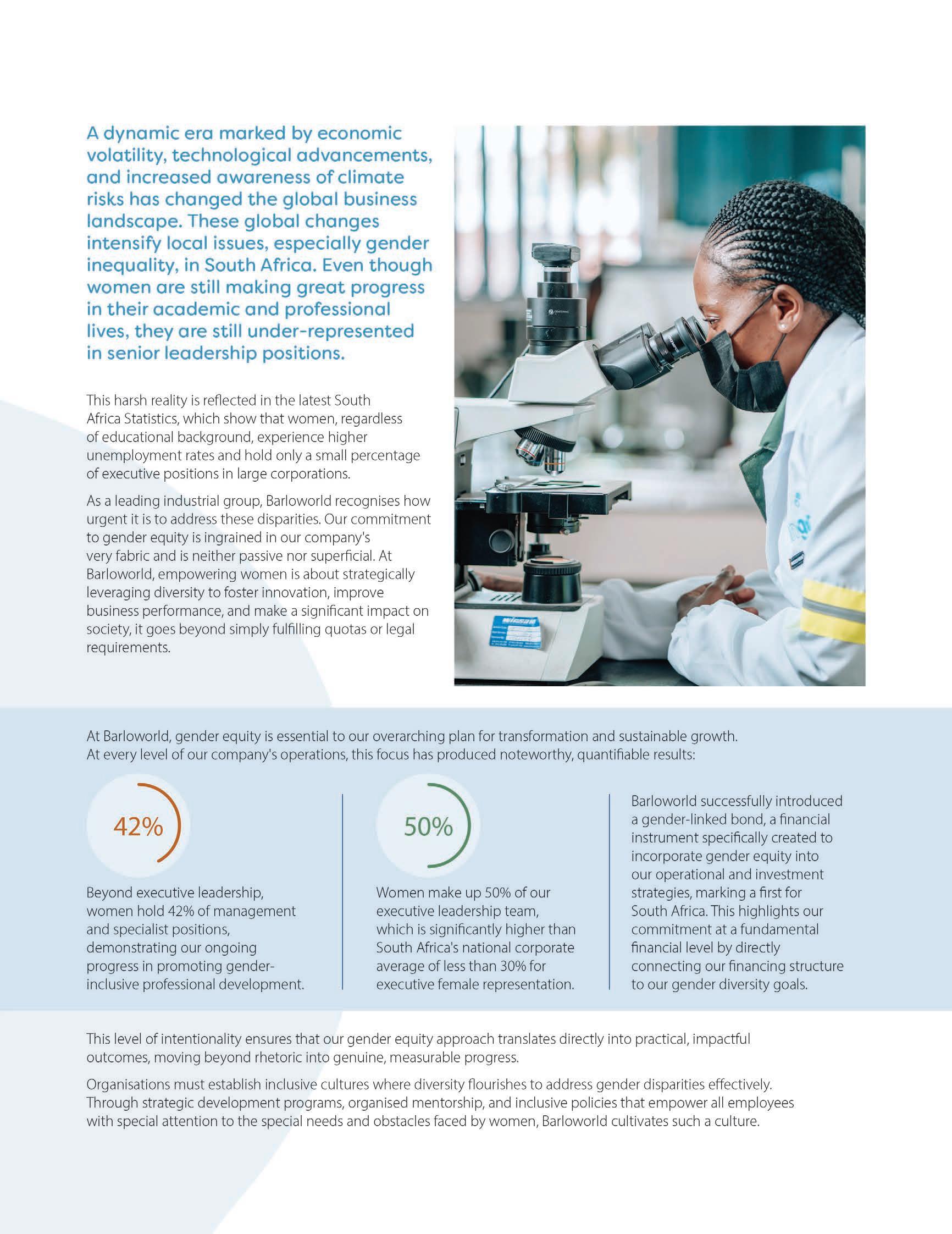

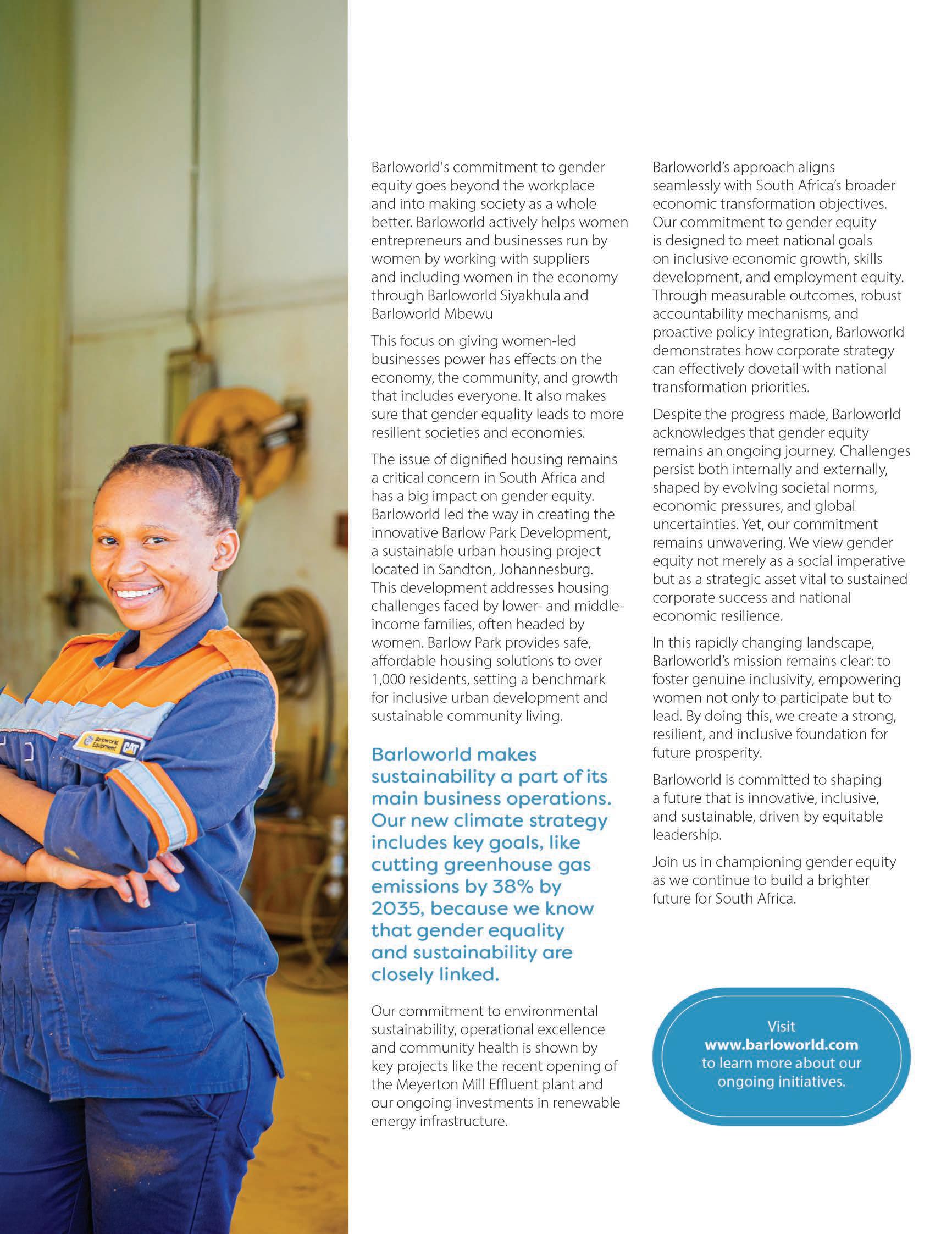
Women in leadership share how they are challenging and transcending systemic gender barriers to reshape leadership and succeed. By
THANDO PATO
Despite notable progress in gender representation, the leadership journey for many women in South Africa remains uneven.
Unconscious bias, systemic inequality and intersecting identities continue to shape women’s experiences in the workplace.
“Unfortunately, unconscious bias still exists and it affects women’s careers at all levels, not just in leadership,” says Nene Mole , CEO and owner of Mandate Mole Consultants, co-author of Global Diversity and Benchmarks.
“There are many complexities and challenges facing women on the road to leadership. Gender itself presents barriers, but for women of colour, race introduces an additional layer of dif culty.”
Mole notes that she always reminds people not to overlook the impact of race. “It plays a signi cant role not only in whether women are selected for leadership roles, but also in how they manage and engage with their teams and vice versa.
So, when I consult with businesses on transformation or coach women, I consider all these intersecting factors.”
Mole , a former corporate executive, believes that for women to rise into leadership or succeed once they are there, they must have a strong personal and professional support system. “Make sure you have someone in your personal life – I call them a heart keeper – with whom you can share your burdens.”
“THE KNOWLEDGE YOU GET FROM MENTORS IS PRICELESS. IT HELPS YOU NAVIGATE YOUR CAREER AND YOUR ROLES MORE CONFIDENTLY, ESPECIALLY AS A WOMAN IN A CORPORATE ENVIRONMENT.”
– FUNEKA NGEWU
Professionally, she says, women need a mentor, a coach or a sponsor, someone to lean on, someone who can help them see the wood from the trees. “They don’t have to be a woman. Don’t discount men as mentors or sponsors. During my corporate career, I had male mentors who made it their mission to guide and support me.”
She also stresses the importance of a strong professional network. “Men advocate for each other. Women need to do more of that. When we hear of opportunities, we must be ready to put forward the names of women we know. How do you build that kind of network? By engaging with peers, attending events and being present. Don’t stand quietly in the corner. Introduce yourself, start conversations and make yourself visible.”
















Funeka Ngewu, executive head of claims, procurement and legal at Momentum Insure, is a prime example. Over the past 22 years, she has steadily built her career in the insurance sector, gaining experience across a range of roles at several major insurers.
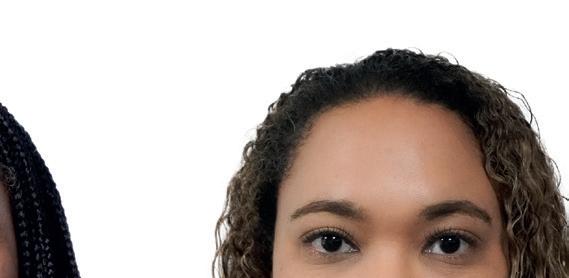





















In 2005, at just 25 years old, she secured her rst management position and gained access to leadership development programmes and mentorship from Danie Matthee, CEO of OUTsurance. This, she explains, was a pivotal moment in her career.







“I was very lucky at that age to receive that kind of exposure from someone so senior. I’m a big advocate for sponsorship and mentorship. The knowledge you get from mentors is priceless. It helps you navigate your career and your roles more con dently, especially as a woman in a corporate environment. You run the danger, especially a






leader, of leaning into your own biases or perceptions and you need someone to bounce your thoughts off.”
Despite her achievements and her current role, Ngewu acknowledges that women remain under-represented in senior leadership roles. “Breaking into executive leadership as a woman is complex. There are still not many of us at the top,” she says. “In the early days in this role, I suffered from a serious case of imposter syndrome. I felt unworthy, despite my experience and strong track record as a leader.”
Ngewu says a bias she has encountered repeatedly is perception. “I learnt early in my career that I had to express my thoughts and opinions differently, using a gentler tone. Otherwise, I was perceived as aggressive or angry. Men, on the other hand, when they express the same thought, using the same tone, are described as passionate.”
Her personal journey is driving her to advocate for women’s empowerment. Opening doors for others is now a central part of her mission. “In my own team, I am cultivating a culture of growth by empowering people to speak up, take initiative and con dently occupy space. It’s important I create a psychologically safe environment for my team to thrive.
“IT’S IMPORTANT TO SHARE YOUR KNOWLEDGE AND EXPERIENCE TO HELP OTHERS ON THEIR CAREER JOURNEYS.”
– VERENE PETERSEN
“Within the organisation, platforms such as enterprise development and supplier development, which support women-led businesses, also fall under my portfolio. I am fortunate that Momentum Group advocates for women in leadership, both within the business and through various initiatives and platforms such as She Owns Her Success, which addresses the challenges women face both professionally and personally.”
Women leadership in the public sector:
•In 2023, women made up 46.4 per cent of middle management positions.
•In the same year, they accounted for 45.2 per cent of senior management roles.
•In 2024, women represented 42.8 per cent of members of Parliament.
•Within the National Council of Provinces, 44.4 per cent of representatives were women in 2024.
•In cabinet, women’s representation decreased to 43.8 per cent in 2024.
•As of 2022, women held 32 per cent of mayoral positions across South Africa.
Source: Statistics South Africa: Gender Series Volume XI – Women Empowerment, 2014–2024
The South African motoring industry is currently grappling with the entrance of new players, such as Chery, that are disrupting the market. Verene Petersen, national brand and marketing manager for Chery South Africa, is a key member of the senior leadership team driving the brand’s growth in the country.
Petersen has successfully built her career in the traditionally male-dominated motoring sector, working across retail, brand marketing and public relations for several prominent automotive brands. She admits her journey has not been without frustration. There have been moments where she has second-guessed her job choices, been overlooked for positions she was fully quali ed for or lacked access to development opportunities. These experiences led her to shift her focus towards introspection and personal growth.
“At some point, I had to take a strategic, helicopter view of my life and truly understand who I am and what I want to achieve – not just professionally, but personally as well. I now align all my goals accordingly. That introspection has changed my perspective, given me clarity
in my professional path and shaped the way I show up at work. I am con dent in who I am and in my leadership ability. I am a collaborative and supportive leader and I believe in empowering my team no matter their gender,” she says.
While bias and barriers have been par for the course in her career, she says that in her experience, race has often been a more prominent factor than gender. “I am not discounting sexism,” she says, “but in some instances, the challenges I’ve faced have had more to do with being a woman of colour than simply being a woman.”
Earlier in her career, Petersen bene tted from the guidance of a mentor who played a signi cant role in her development. Now, she is paying it forward by mentoring a former female colleague and participating in a formal mentorship programme. “It’s important to share your knowledge and experience to help others on their career journeys.
“Sometimes work can feel lonely and you can fall into the trap of believing you’re the only one going through a particular experience until you speak to someone else and realise that what you’re feeling or facing is actually common,” says Petersen.
Follow: Nene Molefi @ www.linkedin.com/in/nene-molefi-6238265
Funeka Ngewu @ www.linkedin.com/in/funeka-zimkhitha-ngewu-iisa-0831773
Verene Petersen @ www.linkedin.com/in/verene-petersen-6414001a



The insurance industry has long been shaped by tradition, with technical fields like actuarial sciences and underwriting historically dominated by men. While progress has been made, leadership structures globally and in South Africa still reflect biases that hinder women’s advancement.
By LINAH MABENA , chief executive, Standard Bank Insurance Brokers
In the South African insurance industry, women occupied approximately 31.8 per cent of board seats in 2021, according to research by Deloitte. This is a signi cant increase from previous years, but still a considerable gap when compared to South Africa’s 51 per cent female population. Furthermore, the low percentages of women CEOs or those chairing boards, highlight a persistent leadership gap. This imbalance isn’t just a social issue; it’s a business imperative demanding urgent change.
As demographic and economic shifts rede ne consumer behaviour, women are emerging as dominant nancial decision-makers. StatsSA reports that 42 per cent of South African households are female-led, while market research by Nielsen predicts that by 2028 women will control 75 per cent of discretionary spending, further reinforcing their in uence.




Despite their growing economic power, women remain underinsured. A study by the Association for Savings and Investment South Africa (ASISA) revealed a staggering R15-trillion insurance gap. Many prioritise funeral policies over asset protection, leaving them nancially vulnerable to unforeseen circumstances.


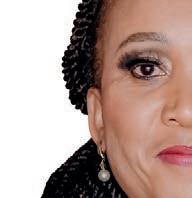
male-dominated, restricting the pipeline of female talent. A lack of structured mentorship leaves women without the guidance needed to transition con dently into leadership roles. Additionally, corporate environments often favour traditional leadership pro les, reinforcing outdated biases about women’s capabilities in strategic decision-making.
Breaking these barriers requires intentional and sustained effort.
The industry must cultivate environments that foster meaningful growth, ensuring safe spaces where women can lead with their distinct strengths. A critical factor in driving change is the elevation of male allies – leaders committed to dismantling outdated perceptions and actively supporting women’s professional advancement.



Progress accelerates when leaders actively engage in gender equity conversations, shifting the narrative from exclusion to collaboration. When equity becomes a shared responsibility, the insurance sector gains a competitive advantage, fostering resilience and progressive leadership.

rede ned accessibility, enabling women to integrate multiple responsibilities without sacri cing career growth. Work-life integration allows women to engage fully in various roles while maintaining upward mobility.
By embracing these advancements, the insurance industry will be better positioned to attract, retain and develop female talent while serving the growing female consumer base more effectively.
The industry needs to rethink recruitment strategies, prioritise diverse talent pools and invest in early-stage education programmes that expose young women to science, technology, engineering and mathematics, and technical insurance elds-based careers.
Beyond aspirational goals, inclusivity must translate into measurable action. The industry must move past rhetoric and actively implement systemic change.




Encouragingly, more women are stepping into executive roles.



However, the barriers to equity remain.



To build a more equitable industry, leadership mentorship programmes, gender-balanced policies and normalising exible work environments are essential.












Technology has



Technical elds such as actuarial sciences have traditionally been













In the workplace, leaders must be held accountable to ensure gender equity remains a priority at all levels of the organisation within the insurance industry. An industry that champions inclusivity isn’t just meeting social expectations; it’s setting a precedent for sustainable success.








To drive equality, sustainability and inclusivity, the development of leaders needs to be purposeful and deliberate, writes ANNE ALIKER , group head of client coverage at Standard Bank CIB
Africa is a uniquely diverse place and that diversity, in the people, cultures and histories, shapes every aspect of work at Standard Bank. I have learnt from my experience working across the continent that when we acknowledge, respect and embrace our differences, we are better equipped to build meaningful and inclusive leadership that re ects the realities of our societies.
Inclusivity is especially relevant as women assume more leadership positions across industries. Yet, despite the progress made, a lack of gender equity (and ultimately equality) remains. The current state of leadership in business, despite the improvement in representation of women in senior positions, doesn’t fully re ect society’s demographic makeup.
the right decisions, even when they are uncomfortable, and committing to equity, even when it demands dif cult trade-offs.
Throughout my career, I’ve learnt that listening is a powerful tool. Far too often, we think leadership must be loud, assertive and demanding. However, for me, the ability to listen and really hear what others are saying, especially during the silent moments, has been far more effective in leading teams to success. It’s not about being the loudest in the room, but rather creating space for others to be heard.
When I was younger, I didn’t advocate for myself enough. I often thought my work should speak for itself, but the reality is that it is crucial to step up and make your aspirations and abilities known.
As we look at the future of client engagement across Africa, I’m excited by the increasing number of women stepping into leadership roles. These women are in uencing decisions across all sectors, whether banking, mining or telecommunications, to name a few. These women shape strategies that are more re ective of the society in which we live. It’s clear that women’s leadership will play a pivotal role in creating businesses and economies that are resilient and sustainable.
That being said, the development of these leaders must be purposeful and deliberate. Too often, we only hear about nurturing talent, but true leadership development requires action. Successful companies understand the importance of building and nurturing talent across generations, ensuring young leaders, especially women, are equipped with the skills and opportunities to succeed.







represented, but also have impact







As leaders, we must champion women’s voices at every level, ensuring they are not only represented, but also have the power to in uence the strategies that impact our societies and economies. I believe greater equity at every level of business and society is essential in creating a sustainable and resilient future for all.









In my experience, achieving this kind of transformation requires clarity of vision, setting a clear direction and prioritising the actions that will foster inclusive and sustainable business practices. It’s about making


This has been particularly true in my journey as a woman in the banking industry. Early on, I wasn’t particularly focused on women’s empowerment. Not that I didn’t believe in it, but at the time, I was convinced competence should be the only factor in career progression. Since then, I’ve come to understand the importance of addressing gender bias and inequity. This was something I was rst pushed to re ect on by one of my mentors. We all have biases, whether we recognise them or not. Acknowledging that is the rst step to breaking down barriers to women’s leadership.











As we continue to push for a more equitable world, we must empower women in ways that drive sustainability and resilience. The future of business in Africa and the world will not be shaped solely by gender or race, but also by including diverse voices and experiences. Leaders have a responsibility to amplify a range of voices and ensure that those previously marginalised are not just participants in the change, but are driving it forward.


mentors. We all have biases, down barriers to









For young women entering highly competitive sectors, my advice is to do the work and do It well, and make sure to advocate for yourself.




From township start-ups to high-impact enterprises, Standard Bank Business and Commercial Banking is shifting the dial for women entrepreneurs. By
SIMONE COOPER
, head of Business and Commercial Banking South Africa, Standard Bank Group
Having spent my entire career growing through the ranks at Standard Bank, I have experienced rst-hand what meaningful support can unlock for thousands of women entrepreneurs across South Africa.
Today, I lead Business and Commercial Banking South Africa, a unit deeply invested in ensuring inclusive growth is not just a vision, but a reality. We believe the economic future of this country depends on continuously supporting entrepreneurs to participate, prosper and lead in business. This commitment extends to all entrepreneurs of varying sizes from diverse backgrounds and sectors.
We acknowledge that women-owned businesses face disproportionate barriers, including limited access to nance, networks and markets. Despite the incredible contribution women make to our economy and society, they still own and operate only about 22 per cent of all businesses in South Africa.
We are not blind to these realities. Standard Bank has built targeted, data-driven programmes that acknowledge these gaps and works to close them.

building and access to networks and capital, we aim to be a long-term growth partner for these businesses.
The Basali Development Programme focuses on growing and scaling women-owned businesses and has supported over 400 enterprises across various industries, disbursing more than R3.5-million in grant funding to date.
In our Supplier Development Programme, 42 per cent of the 2024 participants were black-women-owned businesses in industries where the gender gap is often most pronounced. We create pipelines for sustainable procurement that bene ts the supplier and the broader economy.
several senior roles across our business and commercial banking teams, and we continue investing in our pipeline to ensure talent rises, regardless of gender.
The Kasi SME Summit provides township-based entrepreneurs with practical tools, business development support and access to funding, with a strong emphasis on women’s participation.
Our 12-week Accelerator Programme supported 60 township SMEs, including women, youth and people with disabilities, with 11 SMEs receiving grant funding totalling R500 000.
Across all these initiatives, one message remains consistent: growth must include everyone to be equitable. Business, like growth, works best when everyone is included and when women thrive, economies expand, communities strengthen and resilience deepens. Would you not bank on her too, if you really meant business?







In 2024, we supported more than 2 200 entrepreneurs through enterprise and supplier development (ESD) initiatives. These efforts contributed to the creation of 1 730 new jobs and were underpinned by over R192-million in funding. Thirty per cent of the entrepreneurs supported were women-owned small and medium enterprises (SMEs). Through mentorship, capability

We deepened our impact through a strategic partnership with Proparco, the private sector arm of the French Development Agency, which focuses on nancing sustainable development. Together, we have unlocked blended nance to support high-impact businesses often overlooked by traditional lenders, particularly those that are women-owned, youth-led or focused on sustainability. Since 2022, we have disbursed over R95-million to 130 women-owned businesses in under-represented sectors.





entrepreneurs supported








Standard Bank is intentional about developing women leaders from within through mentorship, stretch assignments and structured advancement programmes. Today, women hold








Today, chief nancial of cers (CFOs) nd themselves at the heart of conversations about carbon footprints, social impact and governance frameworks. Environmental, social and governance (ESG) factors have become core nancial drivers in uencing business resilience, investor con dence and regulatory compliance, reshaping the role of CFOs from nancial stewards to strategic leaders of sustainable business.
The modern CFO is expected not only to explain the numbers, but also in uence how those numbers support a more sustainable future.
Part of this role is embedding sustainability into the organisation’s strategic goals, nancial planning, capital allocation and performance measurement. In this way, it becomes part of how value is created, not just how it is reported.
CFOs are also essential to advancing transparency. As sustainability reporting evolves, nance teams must lead compliance with regulatory frameworks. Keeping pace with these requirements requires close collaboration with nance, business and sustainability teams.
Such collaboration ensures capital is allocated strategically to deliver sustainable impact. By integrating sustainability considerations into budgeting and investment decisions, CFOs can direct resources to projects that align with environmental and social goals while attracting ESG-focused investors through credible disclosures and sustainable nance offerings. This includes green, social and sustainability-linked instruments to raise purpose-driven capital, the identi cation of measurable performance indicators and targets and transparent reporting. A long-term
of Standard Bank South Africa, discusses the role of CFOs in integrating ESG into business strategy and performance
commitment to sustainable development helps companies identify new markets and opportunities, unlock new capital ows and manage both nancial and non nance risks.
Standard Bank Group’s sustainability strategy focuses on maximising positive impact and effectively managing risk. Priorities include business growth and job creation, infrastructure development, climate mitigation and resilience and nancial health and inclusion.
In March 2025, we extended our target for mobilisation of sustainable nance to R450-billion by 2028. We reached R177-billion by the end of 2024. We mobilised almost R44-billion in green nance in 2023 and 2024 and over R20-billion in social nance, supporting SMEs, affordable housing and nancial inclusion. Our new target is supported by a commitment across the group to partner with our clients to structure credible sustainable nance solutions that meet their needs. This is supported by robust governance and product frameworks and clearly de ned metrics and targets. Standard Bank remains committed to achieving net-zero carbon emissions by 2050. Our Climate Policy and Implementation Plan outlines a clear pathway, emphasising the importance of a just transition inclusive of Africa’s unique developmental context. The CFO plays a role in ensuring capital allocation aligns with climate commitments while

balancing trade-offs and navigating the complex needs of diverse stakeholders. We have embedded emerging issues, such as climate-related physical and transition risk, into our enterprise-wide risk framework. We’ve also enhanced our disclosures, aiming for transparency about our sustainability risks and impacts.
CFOs also play a central role in providing the nance to support the transition to a more sustainable economy, including leveraging public and multilateral incentives to help derisk investments and unlock funding. Last year, we listed a sustainability-linked bond on the Johannesburg Stock Exchange. We secured a $300-million sustainable Tier 2 loan from the IFC to support the continued nancing of renewable energy projects and home loans in the affordable housing sector in South Africa, with an emphasis on women borrowers.
To lead effectively, CFOs must embrace sustainability as part of their mandate to equip companies to navigate a rapidly changing environment and capitalise on opportunities to create a positive impact and deliver value to shareholders, clients and communities.




There is a compelling correlation between gender balance and fund performance. Companies with diverse management teams are more pro table and create greater value, according to the International Finance Corporation’s Moving towards gender balance in private equity and enture capital report.
The report also indicated that gender-balanced portfolio companies experienced a 64 per cent increase in company valuation between two rounds of funding or liquidity events. However, only 12 per cent of senior general partners in sub-Saharan African private equity (PE) and venture capital rms are women. A separate study showed that PE rms in which women own at least 50 per cent are 6.8 per cent more likely to pursue impact investments.
These ndings indicate that despite the strides made in diversifying business and spreading investment, a tangible gap still exists.
While this can be interpreted negatively, it also presents an opportunity. Financial institutions are good sources of capital for the business sector. However, women have little control of this pool of capital and assets.
Diversifying the pool of asset allocators is imperative to help drive more inclusive capital to develop and fund innovative solutions to address the broader economic challenges in and across Africa.
The case for greater diversi cation is supplemented by the widely held view that women entrepreneurs and investors are also more likely to invest in other women-owned businesses, enabling the gradual and sustainable growth of this demographic group.
This has been one of the driving principles behind Standard Bank Group’s open adoption of the African Women Impact
Fund (AWIF), which aims to increase female representation among investors through targeted nancing.
The initiative aims to raise $1-billion in the next 10 years for allocation to women asset managers on the African continent who, in turn, invest in high-impact and underserved sectors, many featuring women-led businesses.
Emerging female fund managers face various hurdles. At times, institutional investors have restrictive mandates limiting their ability to invest in one asset class versus another, focus on speci c regions at a set time or comply with speci c investment limits. However, given the relatively nite pool of female fund managers, supporting the facilitation of capital to gender-diverse and women-led investment structures will enable catalytic change in the industry.
Another challenge is the lack of track records that can help build their pro le and credibility within the institutional investor base. The AWIF provides a platform for female fund managers to build their pro les and access investors.





Women need greater support to become key players in enabling catalytic change in the investment industry, writes LINDEKA DZEDZE , Standard Bank Group’s executive head of strategic partnerships, global markets
networks dedicated to female fund managers to help them build their databases and exchange skills. The AWIF network is a powerful advocacy tool, but, more importantly, it allows us to reach more current and prospective female fund managers. Through our networks, we can achieve the continent’s gender equity goals to grow female fund management talent that can lead to greater impact and value creation for the African economy.
The private sector must be receptive to female leadership by entrusting them to reshape the business landscape and drive the growth of business and the overall landscape. Investors in the region must consider a gender lens investment model to ensure they direct funds into the market while pursuing a female-inclusive economy.
Gender equity is more than simple employment to meet targets. It is the elevation and empowerment of women in decision-making roles and in uence in business culture.
Standard Bank has a role to play in helping drive the necessary shift in perceptions. However, as with the most effective shifts in global trends, it will take a collective effort.
resources to mitigate
A partnership with global investment house RisCura, which is committed to nding and nurturing women fund managers through hands-on engagement, enables the AWIF to leverage RisCura’s leading Manager Development Programme. The programme provides tailored support and access to best-practice resources to mitigate downside risks and accelerate the fund manager learning curve.
There is also a shortage of








Sustainable finance is a transformative approach that integrates environmental, social and governance considerations into financial decision-making. For Africa, it represents an opportunity to build resilient economies, empower communities and protect natural ecosystems.
By BOITUMELO SETHLATSWE , Standard Bank head of sustainability
Africa stands at a pivotal moment in its development. Rapidly growing, increasingly urbanised populations require urgent investment in basic infrastructure and urgent action to create jobs and enable economic growth. Climate change poses growing risks – action to mitigate emissions and interventions to build resilience and enable adaptation to an already changing climate is imperative. The challenges are complex and require combined action from all sectors of society and substantial resources. Sustainable nance offers enormous opportunities to address Africa’s most urgent priorities while delivering returns to investors.
According to the African Development Bank, the continent faces an infrastructure nancing gap exceeding $100-billion annually. Millions of people still lack access to reliable electricity, clean water and basic healthcare, and Africa is highly vulnerable to the impacts of climate change despite its historically small contribution to global emissions.
Addressing these challenges demands a deliberate and inclusive approach to achieve a just transition. We must recognise economic growth and environmental protection as mutually reinforcing, rather than mutually exclusive.

Over 600 million Africans still live without electricity. Expanding energy access is essential for economic inclusion, education, healthcare and job creation. Africa has the opportunity to accelerate access to cleaner, more sustainable energy systems. Solar, wind, hydro and other renewables are not only environmentally positive; they are









becoming cost-competitive. Financing these technologies at scale can help decarbonise Africa’s economic development. Sustainable nance solutions offer a mechanism to mobilise the large-scale investments required to fund such developments.
The same is true for other types of infrastructure, from roads, railways and ports to water and digital networks. Infrastructure development projects need to consider long-term environmental and social impacts. They must be designed to be climate-resilient, resource-ef cient and inclusive. Financing such projects requires innovative partnerships between governments, development nance institutions and private investors. Sustainable nance solutions can be designed to ensure such projects are structures with social, economic and environmental impact, delivering real value for society and investors.
economic and human development and the importance of accessibility and affordability. It also means engaging local communities and ensuring solutions are co-created, not imposed.
To be credible, sustainable nancing solutions must have measurable impact. Investors, regulators and citizens are demanding greater transparency on environmental, social and governance (ESG) performance. This requires investment in data systems and independent veri cation mechanisms to build trust and attract capital. Global investors are increasingly seeking ESG-aligned opportunities, and Africa has much to offer.
This is an opportunity for bold leadership, innovative thinking and collective action. Governments must create enabling policy environments, including credible green taxonomies, incentives and regulatory clarity. Financial institutions must embed ESG into their core strategies to drive value.
Above all, we must shift our mindset. Sustainable nance is the future of nance. It is how we will build prosperous, just and resilient economies. Africa’s story is one of resilience, creativity and potential. Sustainable nance is how we write the next chapter.

designed to support nancial inclusion



Sustainable nance is not only about megaprojects; it is also about people. Social nance, such as loans and bonds for affordable housing, education and healthcare, can transform lives and communities. Financial inclusion is a critical enabler of development. Access to credit, savings, insurance and digital banking empowers individuals and small businesses to thrive. Women, youth and rural populations, in particular, stand to bene t from inclusive nancial systems. Sustainable nance solutions can be designed to support nancial inclusion and associated social bene ts, from affordable housing to small business growth and job creation.






realities and priorities front and centre.



While sustainable nance solutions should be informed by global objectives, such as the UN Sustainable Development Goals (SDGs), they must place African realities and priorities front and centre. This means recognising the diversity of African markets, the informal nature of many economies, the need for critical infrastructure to support






South Africa, and specifically its women, has made strides in bringing key stakeholders together to advance in our pursuit of the United Nations Sustainable Development Goals, writes MARCHELLE ABRAHAMS
Professor José Frantz’s voice is warm and deep, like velvety dark chocolate. For an academic, she’s remarkably down-to-earth. There’s a familiarity about her. She could be your aunt, mother or mentor. Professor Frantz encompasses all these labels and much more.
Initially part of the Millennium Development Goals, Professor Frantz says: “The big thing about the SDGs was the need for interdisciplinarity rather than just individuals doing their thing.”
When she was given an international platform, she presented the work as a voice of the Global South.




Busy is an understatement when describing the deputy vice chancellor: research and innovation at the University of the Western Cape (UWC). With a PhD in physiotherapy, the path to her executive leadership role was a natural progression. Professor Frantz is committed to aligning UWC’s academic mission with the United Nations Sustainable Development Goals (SDGs). Through her work with EngageSDG, a European Commission-funded project to build capacity in Southern African Development Community universities to contribute to the achievement of the SDGs in their local environments, Professor Frantz has played an active role in how South Africa collaborates with fellow United Nations members to reach the goals.
That’s when she realised that partnerships are important. “When I read the SDGs, I noticed the voice of the South was very quiet. I decided we need to work on this so that our voices are also heard in these spaces.”
Professor Frantz explains that originally, it was hard to get researchers on board. She encouraged them to cite the contributions their work was making to the SDGs.




The issue of women on policymaking boards comes up. “How do we get women on these boards to advocate for us?” she echoes. “I think it becomes important that if this is what we stand for as a value [gender inclusivity], then we need to be able to carry it through, not only in our research, but also in our decision-making bodies to be truly re ective of what it is we want to try,” Professor Frantz iterates.
























Women leaders like the professor are integral to achieving the 17 SDGs. They hail from various industries, co-operating to end poverty, improve health and education, reduce inequality, drive economic growth and protect the planet.















In her own experience, she says many boards remain male-dominated. “There is a shift happening, but it’s not fast enough. The 2030 SDGs goal is around the corner, and yet our pace is slow in the transformation that must occur.”
South Africa hosted the G20 Financial Inclusion and Women Empowerment Conference in Sun City in May this year. The event brought together the 2nd Empowerment of Women Working Group (EWWG) and the Financial Inclusion Conference under South Africa’s G20 Presidency. Building on Brazil 2024, this year’s iteration introduced a guideline framework to keep women’s nancial empowerment central to future G20 policy, global reforms and the SDGs. The















Speaking on the sidelines, Minister of Youth, Women and Persons with Disabilities Sindisiwe Chikunga outlined three main priorities: strengthening the economy, improving nancial inclusion and combating gender-based violence and femicide.
SDG 5 aims to ensure women and girls have equal rights and opportunities. In an of cial statement, Chikunga’s department said that with ve years to 2030, South Africa’s Working Group will push to accelerate SDG 5 across G20 members.
Gender equality activist, business management consultant and author Sis’ Mantoa Selepe thinks closing the gender gap in ve years is ambitious, and believes deep-seated disparities remain a major obstacle. She explains that labour exploitation inherited from colonialism perpetuates labour exploitation. “Black women are con ned to low-paying jobs mislabelled as empowerment, forcing them into mere survival mode.
“While social grants offer temporary relief, they fall short of providing sustainable empowerment,” says Selepe, who advocates for concrete job creation through entrepreneurship.
Speaking about the SDG goals and the intersection of the G20 Summit to be held later this year, she emphasises that the stated goals often don’t translate into tangible impact. “The principle of ‘leave no one behind’ is regrettably not manifesting at the grassroots level.”
However, Selepe agrees with Professor Frantz about not taking a one-size- ts-all approach. “In a South African context, these SDGs are in silos.” She suggests that South Africa use platforms like the G20 to gain greater nancial support for SDG-aligned initiatives. “We should partner with in uential nations, excluding
The Sustainable Development Goals (SDGs) are 17 global objectives aimed at ending poverty, protecting the planet and ensuring peace and prosperity for all by 2030. Adopted in 2015, each goal includes specific targets to guide countries and organisations in creating a more sustainable, just and inclusive world.
the United States, and seek funding from businesses actively promoting gender equality. “South Africa should demand empowerment fees from all multinational enterprises seeking direct investment, prioritising the securement of investments that directly bene t women and girls.”
Thoko Miya’s work is instrumental in promoting tech education among young women via the GirlHype Technology Institute. Her role as CEO gives her the platform to champion gender equality and quality education, all aligned with the SDGs.
Miya’s inspiration comes from her lived experience. “I grew up in a country where too many brilliant girls were excluded from the digital economy, not because they lacked potential, but because the systems weren’t designed with them in mind,” she says.
She mentions that GirlHype Coders “was born out of the conviction that technology is not neutral and therefore neither should our interventions be”.
Passionate about reducing gender disparities, Miya adds: “Empowering young women with digital
Follow: Professor José Frantz @ www.linkedin.com/in/jose-frantz-29188633 @Jose2020dvc Sis’ Mantoa Selepe @ www.linkedin.com/in/mantoa-selepe-81913088 @mantoa_selepe Thoko Miya @ www.linkedin.com/company/girlhype-coders @girlhypeza
skills isn’t just about jobs; it’s about reclaiming agency in a data-driven world.”
On interpreting the SDGs through a gender lens, she explains that the goals are deeply interconnected, but “gender equality must move beyond representation to include ownership of digital tools, decision-making roles and arti cial intelligence governance spaces.”
Miya moves on to SDG 8 – decent work and economic growth. “Who de nes ‘decent’ work in the digital era? Is it fair, safe, and accessible for women, especially those in informal economies and rural areas?”
Herein lies the signi cance of initiatives like GirlHype that aim to reshape these de nitions from the bottom up. The award-winning tech entrepreneur views digital inclusion as the entry ticket to all 17 SDGs. She explains that without access to the internet, women are locked out of nancial tools, civic engagement, telemedicine, remote work and online education.
Miya’s message is clear about holding G20 leaders accountable for gender-inclusive development. “Accountability is power, and power must be shared.”
Miya’s hope for future women leaders?

“Own your story, but don’t stop there. Build systems that make space for others. Technology is not inherently equitable; it’s a mirror of who designs it.”






Angela Smith, head of education at Henkel Consumer Brands Professional, believes education is a powerful tool for transformation. By
HENKEL SA
For Angela Smith, head of education at Henkel Consumer Brands Professional, education is not merely a job description; it’s a powerful tool for transformation.
inclusion and personal growth is re ected in her belief that every stylist, regardless of background, deserves the opportunity to thrive.
In a sector that often mirrors broader inequalities, Angela champions the idea that education is an engine for economic empowerment and for equal opportunities for everyone. Henkel’s programmes are designed not only to build technical excellence, but also to open doors to new roles, from salon ownership to education and brand ambassadorship. “When we invest in people, we’re investing in stronger, more inclusive communities,” she says.
With a career that bridges the worlds of beauty, education and business, Smith is dedicated to building con dence and fostering growth in salon professionals across South Africa and beyond. At the heart of her work lies a deep belief: that true empowerment begins with knowledge, support and the courage to dream bigger.
Her current position at Henkel sees her blend pedagogy, creativity and trend forecasting to ensure that stylists are not only upskilled, but also inspired. “We’re not just teaching techniques. We’re shaping careers, building con dence and creating community,” she says.
Smith is driven by discipline and purpose. Her early morning gym sessions keep her grounded, but it’s the human connection in her work that keeps her going. “When someone tells me they’ve found their con dence, opened their salon or started teaching others, it fuels me.”


empowerment knowledge,
Smith’s journey into education was sparked by a personal connection to the power of hair, not only as an aesthetic expression, but also as a source of identity and con dence.







Early in her career, she witnessed the profound impact of training when supporting a session for stylists. The shift in energy as learners grasped a new technique or concept illuminated her path forward.
Early in her career, she witnessed








Henkel’s professional education platform is built on relevance, agility and impact. Whether through in-person training at the Henkel Hair Academy in Johannesburg, digital modules or global collaborations like the #hairbyschwarzkopfpro initiative, Smith and her energetic team ensure stylists are prepared not just for today, but also tomorrow. The curriculum covers advanced styling and colouring and delves into business development, sustainability and inclusive salon practices, ensuring professionals grow as entrepreneurs and leaders, not just technicians.
Looking to the future, Smith is excited about expanding Henkel’s education platform with greater digital accessibility through tools such as the ASK eAcademy. “We want to meet professionals where they are, offering exibility, creativity and a pathway to growth that ts their lives.”
For Smith, success isn’t about titles or accolades. It’s about connecting with authenticity, helping others discover their voice and leaving a lasting mark on an industry she loves. Her story is one of empowerment through education and a testament to how beauty, when coupled with purpose, can truly transform lives.


“That’s when it clicked,” she recalls.





“This is where I want to make an impact.”
“This is where I want her delves sustainability and inclusive salon by and enthusiasm for by being human rst,” she explains. “I want







Over the years, Smith has grown into a strategic leadership role that allows her to shape innovative and deeply human learning experiences.





















Smith’s leadership style is collaborative and empathetic, complemented by her high energy and enthusiasm for the hair industry. She believes in mentorship, storytelling and the power of shared experience. “I lead by being human rst,” she explains. “I want my team to know that mistakes are part of growth and that vulnerability can be a strength.” Her focus on























Charlene Kotze, manager human resources, is a leader who has built her career on a powerful conviction: businesses may be driven by innovation, but it’s people who bring that vision to life. Her HR journey, spanning organisations such as Econet Wireless, Cashbuild and now Henkel, has been a purposeful evolution rooted in connection, culture and transformation.
“I’ve seen human resources shift from being purely administrative to becoming a strategic business partner,” she re ects. “What keeps me passionate is seeing people thrive when leadership, culture and environment are intentionally aligned.” This clarity of purpose is a golden thread running through every chapter of Kotze’s career. Each organisation she has worked for has shaped her leadership approach. At Econet, operating within a fast-paced, tech-driven setting, she embraced agility and innovation. Cashbuild introduced her to the power of listening. Serving both head of ce and store teams required her to meet people where they were. Now, at Henkel, she is synthesising these lessons in a global matrix that demands strategic foresight and local sensitivity. “One de ning thread,” she says, “has been the ability to adapt without losing sight of people.”
Kotze’s track record at Henkel speaks volumes. In ve years, she’s been promoted three times, an achievement she attributes not only to performance, but also to resilience and consistency. She leads with intention, navigating change with clarity while challenging the status quo in constructive and future-focused ways. “It’s about delivering both impact and alignment,” she explains.
As former head of talent acquisition and development for sub-Saharan Africa, Kotze reduced Henkel’s time-to-offer KPI, thanks to a shift in mindset and operational discipline. Strategic workforce planning, alignment with hiring managers and a
Charlene Kotze, Henkel SA’s manager of human resources, advocates for people-centric leadership rooted in visibility, empathy and courage, writes HENKEL SA
culture of shared responsibility all played a role. “It wasn’t just process; it was partnership,” she notes.
A champion for digital transformation, Kotze has embedded tech solutions across recruitment, learning and talent analytics. From automating candidate screening to rolling out mobile-friendly e-learning and real-time dashboards on retention and development, she’s ensured HR is both strategic and scalable.
What makes Kotze’s leadership distinct is her unwavering belief in talent as a long-term investment. Henkel’s Purposeful Growth agenda, anchored in initiatives, such as the Tamaho Early Learning Centre, internal and external bursary programmes and youth-focused internships, aligns seamlessly with her philosophy. “It’s not just about the workforce we have today,” she says. “It’s about what we’re shaping for the future.”
Her impact is visible in initiatives such as AO hiring transformation, which opened new growth pathways for production operators, internal bursaries, which support employees’ children through university, and external bursaries that have already resulted in multiple students joining Henkel full-time. “These are not just stats,” she adds. “They’re lives changed; futures created.”
Kotze also understands that talent retention in South Africa requires more than compensation. With
young professionals prioritising purpose, growth and inclusion, Henkel has doubled down on career pathing, authentic engagement and continuous learning. “People want to feel seen and developed and know they’re part of something meaningful.”
A passionate mentor, Charlene advocates for leadership rooted in visibility, empathy and courage. She believes future leaders must blend emotional intelligence with bold, adaptive thinking. Her mentorship model is hands-on, built around helping future leaders navigate complex environments, trust their voice and challenge self-doubt.
Despite multiple Hall of Fame recognitions, Kotze remains grounded in service. “Awards are af rming, but purpose is what sustains me,” she says. For her, success lies in enabling others to grow and seeing transformation ripple outward, from a single opportunity to a community and a continent. Her message to future HR leaders is: “Own your seat at the table and make space for others as you rise. Lead with courage, clarity and compassion. Africa needs your voice.”





While legislated quotas may have resulted in more women in positions of influence, gendered barriers still impede their sway on executive decision-making bodies, reports COLLEEN DARDAGAN
South Africa’s gender equity laws have driven progress in bringing more women into the workplace and into senior positions. However, whether the women who have made it to the top have real sway, is debatable.
Dr Janine Hicks, senior lecturer at the University of KwaZulu-Natal’s (UKZN) School of Law, says that while legislated quotas may have resulted in more women in positions of in uence, gendered barriers still impede their sway on executive decision-making bodies.
Dr Hicks, a former commissioner with South Africa’s Commission on Gender Equality, says quota-driven legislation has meant more women are serving in

“OFTEN, WOMEN IN PARLIAMENT – OR IN THE BOARDROOM – NEED TO ALIGN THEMSELVES WITH POWERFUL MALE LEADERS TO ADVANCE AND SURVIVE.”
– DR JANINE HICKS
South Africa’s parliament, for example, but the needle has moved little on more feminist legislation.
“Gendered power imbalances and patriarchal elite women, for example, may prevent women from having real impact. Often, women in parliament –or in the boardroom – need to align themselves with powerful male leaders to advance and survive.”
In her book, Engendering Democracy in Africa – Women, Politics and Development, Dr Niamh Gaynor reiterates that while there have been “signi cant improvements in the number of women elected to parliament in Africa, there is little indication that this is translating into better developmental outcomes”.
Dr Gaynor cites the 2021 Inter-Parliamentary Union report, which shows women on average hold over 30 per cent of seats in national parliament in 10 African countries with Rwanda leading the way at 61.3 per cent, followed by South Africa at 45.8 per cent.
However, Dr Gaynor argues there is suf cient evidence to show political presence doesn’t automatically translate into political in uence. “Factors such as party loyalty, patronage politics and exclusionary attitudes, behaviours and practices conspire to restrict women’s capacity to in uence and impact development policy,” she says.
In the book, Dr Gaynor, an associate professor in international development at the Dublin City University in Ireland, urges a rethink on the way democracy, power and politics are interpreted and how progress is linked to moving away from inserting women into existing structures that often are neither welcoming nor conducive due to their historical constructs.

“FACTORS SUCH AS PARTY LOYALTY, PATRONAGE POLITICS AND EXCLUSIONARY ATTITUDES, BEHAVIOURS AND PRACTICES CONSPIRE TO RESTRICT WOMEN’S CAPACITY TO INFLUENCE AND IMPACT
DEVELOPMENT POLICY.”
– DR NIAMH GAYNOR
Interestingly, UKZN masters’ student Perdita Naidoo says her recent study, “Investigating Women Employees’ Experiences of Returning to the Of ce After Working Remotely Due to Coronavirus: The Case of the College of Humanities, Pietermaritzburg Campus, University of KwaZulu-Natal”, forced her to ask herself whether she perceived women as less committed if they left work early for caregiving responsibilities.
Naidoo says the disparity during the lockdown was stark as women often had to balance childcare and working from home simultaneously. She notes that some participants in her study had indicated they now felt anxious and were struggling with their mental health since returning to the workplace.
However, she adds, there is a silver lining. “Many women appreciated the adaptability of the hybrid model. Their experience of remote work empowered them to advocate for a exible schedule, reinforcing the value of more balanced working conditions.”
Longstanding companies’ director and noted Durban businesswomen, Hixonia Nyasulu says women in leadership and top decision-making positions must know their skills are wanted and needed.
“I often see board members, particularly women, wait until the discussion gets to an area where they feel comfortable before they participate. Also, men always take the view that they belong at the table, whereas women often relegate themselves to the sidelines,” she says.
As former chair of Sasol Ltd, current nonexecutive director of Anglo-American and on the board of two offshore companies, Nyasulu says being open to learning is imperative for a director, particularly when asked to take up a

Nolitha Fakude, president of the IWFSA, shares insights on leadership in an article titled “Empowering Women to Empower Other Women” (published in 2024), highlighting strategies to uplift women leaders.
To lead with impact, women must:
• Leverage mentoring
Build relationships based on trust and open communication. Seek out experienced leaders who can guide you through transitions, help refine your skills and fast-track your leadership journey.
• Embrace leadership development

Actively participate in programmes that strengthen leadership behaviours, technical skills and strategic thinking. These opportunities often form part of succession planning – take full advantage.
• Invest in coaching
Coaches help you see yourself and your work environment clearly. Define your personal goals and let a coach help you navigate the path to achieving them, using the “mirror” principle to drive self-awareness.
• Acknowledge the workplace as a learning ground
Real growth happens on the job. Combine theory with practice and view each challenge as a leadership development moment.
• Join structured leadership initiatives
Engage in credible programmes such as the IWFSA-FASSET Women’s Leadership Programme (IFWLP), which offers direct mentorship and coaching. Over 1 000 women will be empowered through this initiative by 2025.
• Build and maintain professional networks
Graduates of IFWLP become part of a growing alumni network – a powerful tool for peer mentorship, collaboration and long-term career support.


THE DISPARITY DURING THE LOCKDOWN WAS STARK AS WOMEN OFTEN HAD TO BALANCE CHILDCARE AND WORKING FROM HOME SIMULTANEOUSLY.
























• Understand that leadership is legacy-driven Pay it forward. Empowered women have a responsibility to uplift others, ensuring the leadership pipeline continues to grow for generations to come.









board seat at a company operating in an industry with which they are not familiar. She has this advice: “People love to share their knowledge of their company and the expertise that puts them in the positions that they hold, so use that to learn as much as possible about the company.”
Nyasulu has been noted as an inclusive and level-headed leader, backed by a depth of knowledge and experience.
• Women hold 37 per cent of large-cap board seats in South Africa, ahead of the global average of 27 per cent.
Source: June 2024 G20/ Global SSE report
• In 2024, women hold 36 per cent of board positions within the JSE Top 40, a modest 1 percentage point rise from 2023, while executive roles remain at 23 per cent.
Source: Just Share’s analysis, published October 2024
• Women occupy 33 per cent of board seats across all JSE-listed companies, making the JSE the leading exchange in Africa for female board representation.
Source: The G20 2024 Regional Analysis report
• Women chair 18 per cent of JSE-listed boards, the highest proportion among African exchanges.
Source: The G20 2024 Regional Analysis report
“One of the areas where I have always been strong is having the con dence to stop a conversation and say, ‘hang on a minute, let’s go back, what was that term you used, what does it mean?’ I am never one to pretend to understand when I don’t,” she explains.
Diplomacy in boardroom conversations is vital for progression. “If I nd myself having to challenge an executive or a colleague, I behave and speak in such a way that they have no need to become defensive. Because once the meeting is over, I want to be able to enjoy a cup of coffee or lunch with that person,” she says.
Nyasulu urges women to lean in, step up and be brave enough to say: I am going to sit at the main table and contribute.


However, she warns that taking this place requires commitment, authenticity and a willingness to put in the hours. “Authenticity is about being honest. It’s about being able to say I have a sick child at home, or I want to attend my son’s school gala. I have never come across a chairperson who would not nd a way to accommodate me,” she says.
To gain the con dence to speak up in meetings, Nyasulu says reading the board pack is crucial. “Then you are able to speak with authority and command the room when you get to the meeting.”


“WOMEN IN LEADERSHIP AND TOP DECISION-MAKING POSITIONS MUST KNOW THEIR SKILLS ARE WANTED AND NEEDED.”
– HIXONIA NYASULU




Follow: Hixonia Nyasulu @ www.linkedin.com/in/hixonia-nyasulu-973277150
Dr Janine Hicks @ www.linkedin.com/in/janine-hicks-35382934a Dr Niamh Gaynor @ www.linkedin.com/in/niamh-gaynor-6921413a Perdita Peters @ www.linkedin.com/in/perdita-peters-67523892

Creating an environment that embraces diversity and equality and empowers women to lead and make meaningful impact is a core value of RMB . Four women leaders in the organisation share their views

“ When we invest in women, we unlock the full potential of our workforce and our society. At RMB, transformation is not a target; it’s a way of being that guides how we attract, develop and retain our people. As the number one ranked Top Employer in the Financial Services sector, we remain deeply committed to leveraging the power of our diversity to serve our clients and society better.” – Nomzabalazo Makubalo, chief people officer

“ At RMB, we often see that the best outcomes are born from the collective strength of our differences. At the heart of our brand, we believe people empower possibility – and this includes empowering women to lead as their authentic selves. Creativity thrives on diverse minds, and optimism is its fuel.” – Alison Badenhorst, chief marketing officer

“ Representation is more than presence – it’s about enabling women to shape strategy, in uence outcomes and inspire inclusion. At RMB, we’re intentional about creating an environment where women can lead with con dence and authenticity. Through collaboration and shared purpose, we continue to build a workplace where diverse leadership thrives and future leaders are empowered to rise.” – Nana Phiri, head of corporate client group.

“ At RMB, we recognise that diverse leadership is essential to building a more inclusive and sustainable future. Our commitment to growing women in leadership and increasing representation on boards is re ected in initiatives such as Athena and the Fearless Thinker Award. These programmes create space for women to lead authentically, challenge norms and inspire the next generation. Progress is not just about numbers; it’s also about the quality of the experiences of woman leaders, it’s about creating environments where women feel empowered to shape strategy, drive innovation and make meaningful impact.” – Judy Kobus, head of infrastructure sector solutions


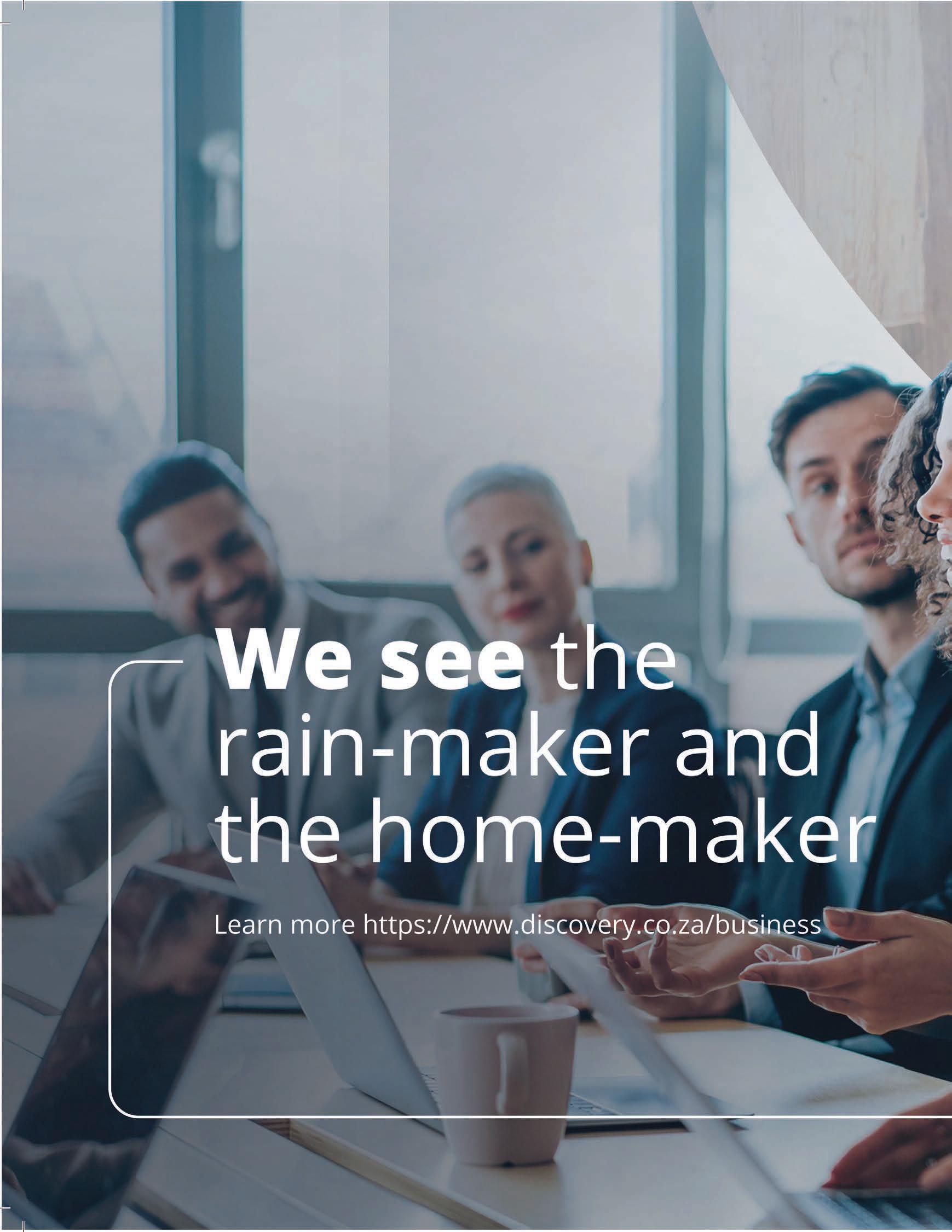

Many women in their 30s to 50s are redefining success – juggling ambition, motherhood and purpose –while questioning if “having it all” is possible, or even the right goal, writes ELRIZA THERON
Midlife is no longer just a time of settling down; it’s increasingly becoming a period of reinvention. However, as clinical psychologist Karen Dick notes, there is a distinct difference between scaling down by choice or being forced to scale down.
She explains that a prevalent trend in her private practice is a higher number of professional women with symptoms of burnout, many of them who are then forced to scale down. Symptoms can range from depression, anxiety, irritability or detachment to chronic fatigue or sleep disturbances.
Marize de Jager, also a clinical psychologist, echoes this, adding digestive issues, a sense of deep isolation and even emotional numbness, which, if left unchecked, can spiral into more severe symptoms. In these cases, Dick emphasises that it is crucial to explore, identify and confront the contributing factors in a therapeutic environment as psychological and psychiatric interventions could assist in nding a way forward.
completing her honours degree in political science, she was offered a position as a diplomat, but as luck would have it, she met the love of her life and eventual husband within that period. Although the relationship was only six months young, she took the plunge and chose love, meaning she had to look at other employment opportunities. That opportunity was presented in the form of business banking, her rst pivot.
After the birth of her rst child, she made yet another pivot and bravely leapt into a completely new eld: interior design. “To cross the ocean, you have to lose sight of the shore,” she says, re ecting on her decision to leave the corporate world and start her own business while navigating the complexities of being a mother.


At other times, however, a pivot can be a planned activity to consciously rede ne what you want and who you are. Isabel Barends is a shining example of this. After


In yet another surprise pivot, a once-in-a-lifetime opportunity led her to television, becoming both a presenter and designer for the popular reality show on Via, My Plek of Joune She has since stepped back from television to focus on her design business.
Her journey teaches us that pivoting isn’t about giving up, it’s about
choosing what works best for you at each stage based on what aligns with your evolving values.
According to de Jager, one of the most common challenges women face is managing the “split dream”, in other words, trying to be everything to everyone. “Women who try to have it all at once –career, children, a thriving relationship –often end up emotionally drained. They might meet all their work deadlines but have no energy left for their kids or partners.
“It can also be the other way around where the duties of motherhood could put a strain on career aspirations, or even a bit of both, where neither aspiration (motherhood or career) is completely ful lled. However, this does not always have to be the case, it’s about how you prioritise your goals and how you then navigate towards achieving them.”
For many women, leaving behind a title or a role they’ve identi ed with for decades can feel like losing a part of themselves. But there is hope. Dawn Nathan-Jones, a powerhouse executive and single mother, with over 35 years of leadership experience and who served as chief executive of cer of the car rental and retail division of Imperial (now Motus), found new life after leaving her corporate role. “Letting go of an identity I’d worn for decades brought me so much humility,” she shares. “It showed me that when one door closes, another opens, often wider than expected.”
Nathan-Jones made her television debut as the sole female “shark” on M-Net’s


“BEING ADAPTABLE ISN’T JUST AN ADVANTAGE, IT’S HOW WE STAY RELEVANT AND OPEN TO LIFE’S NEXT CHAPTER.”
– DAWN NATHAN-JONES
Shark Tank South Africa, which led her to focus her time and efforts more holistically and intentionally by sharing her knowledge with small business owners. She explains how, during her career, several pivotal moments stretched her identity and evolved her leadership. She now focuses her energy on mentoring small businesses and empowering entrepreneurs along with Lesley Waterkeyn at Over the Rainbow. For Nathan-Jones, reinvention is not a detour, it’s a new destination. “Being adaptable isn’t just an advantage, it’s how we stay relevant and open to life’s next chapter.”
Waterkeyn herself knows this dance all too well. Her early career saw her steering the transformation of a small print agency to fully integrated marketing agency, which, after a few mergers and transformations is now known as Happy Friday. She stepped away from the day-to-day grind to focus
on mentorship and purpose-led projects as founder of Over the Rainbow, while still serving as chairman of the board of Happy Friday. “It wasn’t a step back, it was a strategic redirection towards purpose. The entrepreneurial spirit doesn’t disappear when your role changes, it evolves,” she says.
By embracing the pivot, Waterkeyn not only rekindled her passion, but also made space for new creative ventures, such as her eco-conscious brand, Amazeballs, a project that reuses and recycles old tennis and padel balls into the circular economy.
How can women between 30 and 50 navigate this often turbulent yet opportunity-rich phase of life?
1.
Evaluate and realign your goals
De Jager advises women to take time to reassess their dreams. “Ask yourself: does my current reality match where I want to be? If not, give yourself permission to shift. It’s okay to change your goals at forty or even fty.”
2. Embrace the pivot
Barends’ story teaches us not to fear reinvention. “Don’t feel pressure to have it all at once. Give yourself the grace to experience different things at different stages,” she says.
Follow: Isabel Barends @ www.linkedin.com/in/isabel-barends-a9088b52
Dawn Nathan-Jones @ www.linkedin.com/in/dawn-nathan-jones-0a38aa28
Lesley Waterkeyn @ www.linkedin.com/in/lesley-waterkeyn-b5b24324
3. Set boundaries and prioritise
Women are often conditioned to say yes to everything. You are allowed to say no, de Jager encourages. Whether it’s delegating at work or asking your partner to help at home, you don’t have to do it all yourself.
4. Schedule self-care like a meeting
Self-care isn’t sel sh, it’s strategic. From walking in nature to reading for 15 minutes a day, small rituals can help refuel your emotional tank. “Make time for what lls your cup,” says de Jager.
5. Celebrate your story
Waterkeyn encourages women to see each career chapter as part of a larger narrative. “Your value isn’t tied to a job title but to your ability to keep showing up with vision.”
6. Build a support network
From friends and family to professional mentors, community is key. Nathan-Jones’ transition was enriched through her involvement in mentorship networks. She now gives back by doing the same for others.
“THE ENTREPRENEURIAL SPIRIT DOESN’T DISAPPEAR WHEN YOUR ROLE CHANGES, IT EVOLVES.” – LESLEY WATERKEYN

One thread that connects all these stories is resilience. Whether it’s Barends turning a childhood dream into a thriving business, Waterkeyn transforming corporate leadership into community upliftment or Nathan-Jones exchanging global boardrooms for grassroots mentorship, each woman’s journey is uniquely inspiring. More importantly, their honesty about the messiness of “having it all” offers much-needed permission to every woman walking her own path. Midlife doesn’t have to be a crisis, it can be a calling.
EXARRO is committed to championing inclusion from the ground up and creating opportunities that empower women to lead and shape meaningful transformation
As South Africa marks Women’s Month, we proudly honour our women leaders, who are breaking boundaries, leading change and shaping a more inclusive and sustainable future. As an organisation, we actively champion initiatives that promote gender equity across all levels of our business. Through targeted development programmes, leadership pipelines and creating safe, supportive working environments, we are building a culture where women can realise their full potential.
At Exxaro, women are at the forefront of driving high-impact projects, leading operational teams, championing sustainability and reshaping the perception of mining from a traditionally male-dominated eld to one of opportunity, growth and meaningful transformation.
We asked each of our influential female leaders to share their thoughts on women empowerment and leadership.
Johanne Struwig: leading from the heart as a plant manager at Leeuwpan Mine
Struwig’s journey with Exxaro started as a bursary student before she was appointed as a professional-in-training. In her 15 years of service, she moved through the ranks, from junior specialist in metallurgical engineering to senior process engineer
achievements, resilience and leadership while giving us time to reflect on the existing barriers and how we can be part of the solution.
Q: How has Exxaro empowered you as a woman professional?

engineer before being promoted to her current position.

In the past nancial year, we exceeded our targets for female representation across all management levels:

AT EXXARO, WOMEN ARE MORE THAN EMPLOYEES; THEY ARE PIONEERS, CHANGE AGENTS AND VISIONARIES.






36.26 per cent at senior management, 45.64 per cent at middle management and 35.42 per cent at junior management. These gures re ect our understanding that gender equity and inclusive leadership is continued work that requires commitment, succession planning and the creation of opportunities for our talented people to be given a chance.




Q: What does Women’s Month mean to you?





A: Women’s Month is a powerful reminder of the strides that have been made by the women who came before us and the responsibility for the work that lies ahead, which resides with us. It is about honouring


A: Exxaro has done more than create policies and diversity programmes; the company has built a culture of respect, trust and opportunity. I’ve been privileged to have had several mentors invest in me from my time as a young professional. The mentorship journey included technical, business and leadership support, enabling me to thrive in a high-stress, high-stakes environment, to be tough and still embrace being a woman. I’ve had the opportunity and responsibility to build my leadership capacity. Exxaro has dedicated resources for training and development and also created a platform for change in the mining industry.
thrive in a high-stress, high-stakes






Tamara Qwatekana: commanding excellence as mine manager, Matla
Having joined our agship mine, Grootegeluk, over 13 years ago as a senior mining engineer, Qwatekana’s journey spans several of our mines where she had oversight over construction, maintenance, hauling, drilling, blasting, loading, production support and dispatch. She became Exxaro’s very rst female mining manager and was based at our digital and connected mine, Belfast, assuming full responsibility for mining operations. She currently executes life of mine projects under her area, ensuring the sustainability of Matla operations.
Q: How do you de ne success as a women leader today?
A: For me, success is knowing that the goalposts did not have to be changed to accommodate women. That we are making a difference without having the rules changed to make them “women-friendly”. It’s knowing that I and my male colleagues are being measured by the same yardstick and that as women, we continue to deliver on set objectives, thus breaking the stereotype that we need to be accommodated in leadership positions. Success is about sending a clear message: we are quali ed, competent and worthy. Q: What advice would you give to other women leaders?
A: Find a leadership style that is aligned with your values and always remember that you don’t have to lose your femininity while leading in this male-dominated industry, that’s what diversity is about. Let’s embrace all that we are. To the women sitting in a corner wondering if they are in the right industry, you belong here. If you are on the brink of giving up, do not quit. To all women, the world is becoming more deliberate and intentional about creating opportunities for us to thrive, take them and run with them. We are here and we belong, not just at Exxaro, but in the industry.
Nonkululeko Malibe: safeguarding the future as risk and governance officer, Belfast Mine
Q: What does Women’s Month mean to you?
A: It is a powerful reminder of the strength, resilience and achievements that women carry throughout their lives. It’s a time to celebrate our contributions in all aspects of society as well as an opportunity to reflect on the challenges that still exist while inspiring change for equality and empowerment across the various sectors.
Q: Can you describe your leadership style briefly?
A: I believe in an open communication approach, involving and collaborating with my team to ensure we achieve our set objectives. I believe in empowering my team by having honest conversations that enforce team and individual accountability.
Hlengiwe Mngoma: shaping a culture of growth and resilience as people and performance manager, Grootegeluk Mine
Mngoma joined Exxaro in July 2024 and swiftly connected with the organisation’s culture. She was inspired by the strides Exxaro makes in developing its people – in new and promotional roles – demonstrating that talent management is a priority.

Q: What is your life philosophy or favourite quote?
A: “I am not afraid of storms, for I am learning how to sail my ship” –Louisa May Alcott. As a new leader in this role, I know that it won’t always be rosy as there will be challenges along the way, but these are part of this journey and I need to remain resilient and courageous all the time.

When we open up about our journeys, we demonstrate that it is possible for all of us to reach our fullest potential if we work hard.
Q: How has Exxaro empowered you as a woman leader?
A: Exxaro has empowered me as a professional woman; having the opportunity to be a people and performance manager for Grootegeluk is empowerment on its own. I can share my learnings and views freely and as a woman, I am empowered to make strategic decisions that positively bene t employees and the organisation. I don’t feel discriminated against when comparing myself to my male colleagues and that is liberating.
Q: Why do you think women empowerment is important for South Africa’s future?
A: It is very important that we invest in women empowerment, and those who have made it need to share knowledge so younger generations can learn from them.
At Exxaro, women are more than employees; they are pioneers, change agents and visionaries. We believe that when women rise, we all rise. This Women’s Month, we salute every woman powering possibilities at Exxaro, in our host communities and across the country.

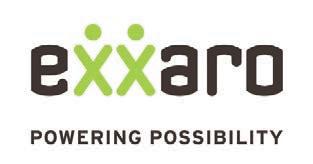
Ihave been fortunate to have had both mentors and sponsors in my professional life. While advice from mentors has been bene cial, it was actual sponsorship that helped drive my career growth. Though more women nowadays receive mentorship, fewer have the powerful impact of senior people who are actively championing their growth. Mentorship is mainly about sharing wisdom, advice and guidance. Sponsorship, on the other hand, is much more – it’s the act of advocacy, visibility and opening doors. A mentor helps you navigate your path, but a sponsor helps build that path for you.
In her moving memoir My Life in Full, PepsiCo’s former CEO Indra Nooyi identi es sponsorship’s key role in her extraordinary career. She recalls clearly how certain of the leaders openly championed her, placing her name in rooms she had not yet entered and backing her skills when important decisions were being made. As Nooyi puts it: “Mentors are great, but sponsors are critical. Sponsors put their reputation on the line to advance your career.”
Mentorship offers guidance, but sponsorship drives advancement.
PROFESSOR PARMI NATESAN
, CEO of the Institute of Directors in South Africa, unpacks why active backing from senior leaders is essential to accelerate women’s leadership in South Africa
overlooked because mentorship can’t do much to address ingrained biases. Visibility and active sponsorship by senior leaders eliminate barriers signi cantly for women and open doors to vital leadership roles.
approximately 11.6 per cent more than their unsponsored peers. A Workplace Gender Equality Agency study also reveals that men are likely to receive instrumental career support in the form of sponsorship, whereas women tend to be more likely to be given psychosocial support such as mentoring, which may or may not result in tangible career advancement.

I’ve observed over the long term that competent and hardworking women are often
In the South African context, where the pursuit of diversity and inclusivity at leadership levels is still extremely crucial for companies, the distinction between sponsorship and mentorship is even more critical. Despite all the recurring debates and struggles towards gender equity, women continue to face subtle but stubborn barriers to advancement in their careers. Active sponsorship entails addressing those problems head-on, as higher-level of cials work actively to build opportunities. Senior leaders who meaningfully champion women on the grounds of merit and proven capability become signi cant agents of change. Research from the Harvard Business Review underscores this critical role of sponsorship. Women with sponsors are reportedly 20 per cent more likely to be promoted than those without, and sponsored individuals typically earn
Recognising the potential of sponsorship is not just an ethical requirement; it is a strategic imperative. Diverse leadership teams are shown to enhance corporate decision-making, innovation and organisational resilience. However, achieving these advantages requires deliberate actions. We need to have senior leaders – particularly those already in executive roles – to go beyond passive support and commit to active sponsorship. What can leaders do in practice? First, intentionally acknowledge excellent women who might already be undervalued. Second, ensure their names are positively discussed in strategic meetings and decision rooms. Third, advocate for their inclusion in high-pro le projects, board roles and professional networks. In addition, leaders need to provide timely, positive and goal-orientation feedback and also actively seek opportunities to visibly praise and reward women’s achievement. Inviting women to share their suggestions and opinions when in meetings or strategic sessions further increases their exposure. Such deliberate efforts attest to a commitment to developing people and inclusive leadership.
Mentorship remains worth it, but sponsorship is necessary. It requires courage and intent, but its rewards – to individuals, organisations and society –are vast.
Follow: Professor Parmi Natesan @ www.linkedin.com/in/parmi-natesan-064a2154

While support and guidance are valuable, true advancement for women hinges on powerful advocates and targeted coaching that builds the confidence and skills to seize opportunity, writes ANTHONY SHARPE
Mentorship is an important tool for growth and re ection. However, to advance meaningfully in the workplace, women need more active interventions in the form of sponsorship –along with coaching to prepare them. Mentorship. The term is used liberally these days, as one might say it should be. Mentors play an important role in helping people grow professionally and personally, providing advice and support, guiding their mentees through tough decisions, offering feedback and encouraging critical self-re ection. This is important for women, who have to contend with a legacy of discrimination as well as frequently shouldering the bulk of domestic responsibilities.
comes to this important distinction, the evidence is also clear: women tend to be over-mentored and under-sponsored.”
This might explain why gender progress on gender equity has stalled somewhat –in South Africa as elsewhere worldwide.
Just Share’s report Women in leadership: Assessing gender equality in the JSE Top 40 found that women held 36 per cent of board positions in the Johannesburg Stock Exchange’s Top 40 companies in 2024, a modest 1 per cent increase from 2023, while women occupied 23 per cent of executive management positions, a decline from 25 per cent in 2023.
South Africa ranks 20 th out of 146 countries in the World Economic Forum’s Global Gender Gap Index 2023, having closed over 70 per cent of its overall gender gap.
Tshabalala says coaching is essential. “Part of the mentorship conversation should always be, who’s going to coach you? And part of the sponsorship conversation should be, what are the skills and capabilities you have for this opportunity you’re asking me to unlock?”
However, being focused typically on development, not advancement, mentorship only goes so far. Without people actively advocating for them – in other words, sponsorship – many women nd themselves left with a lot of good ideas but no tangible opportunities for advancement.

sponsorship – many with














Nozipho Tshabalala, CEO of Conversation Strategists, emphasises that mentorship and sponsorship are important but different. “I like to think of a mentor as someone who holds a mirror up for you so you can take the decisions that allow you to progress. They’re a thinking partner. A sponsor knocks on the door for you, they put your name forward for opportunities.”











Ensuring sponsorship candidates have the right skills is crucial, says Tshabalala, especially when it comes to women sponsoring other women. “When a female sponsor recommends someone to decision-makers, she spends her relationship capital – she’s effectively putting her relationship on the line.”

report put it this way:
A Harvard Business Review report put it this way: “While a mentor is someone who has knowledge and will share it with you, a sponsor is a person who has power and will use it for you.” Moreover, the report added: “When it








“While a mentor is a
















There’s a bridge between the two, however, says Tshabalala. “Coaching imparts the skills you need to get where you want to be. Leaving that out can be a huge mistake. People are often sponsored on the basis of relationships without necessarily having the skills.”







































To facilitate better results through mentorship and sponsorship,


This capital needs to be maintained –on an individual and group basis – for women’s representation to grow. However, it goes further than that, says Tshabalala. “Women who’ve been sponsored in this way can get so tied up thinking they need to pay back that relationship capital rather than owning the opportunity they’ve been given and focusing on delivering the value they can offer. Sponsors are drawn to people who’ve got the skills and have done the preparation. Someone’s already knocked on the door for you. Walk through and get the job done.”
Follow: Nozipho Tshabalala @ www.linkedin.com/in/noziphotshabalala

It’s hard to fund a 40-year retirement with a 40-year career. And, even if you can afford to stop working, you may not want to. For many women, working longer isn’t just a nancial necessity –it’s a chance to grow your investments and sense of purpose. However, what if working longer also means designing the most meaningful chapter of your life?
That question surfaced when I turned 50 and travelled to the Modern Elder Academy – a retreat founded by Chip Conley, who challenges the idea that growing older means becoming irrelevant. The journey was a search for answers, not only for myself, but also for the many women I work with who feel something inside them shifting. What I discovered was this: midlife is a call to evolve, reimagine and redesign life and work around who we are now, not who we used to be.
Midlife invites women to reimagine purpose, align values and design a fulfilling future –working longer not out of necessity, but with clarity and intention. By
KIM POTGIETER , managing director
of Chartered Wealth Solutions and author of Midlife Money Makeover and Retiremeant
However, a life plan helps you decide what’s meaningful. Without one, it’s easy to stay busy with what’s urgent and never make time for what truly matters: you.
When you pause to re ect, dream and align your values with your next steps, change begins. A clear life plan gives you direction. A solid nancial plan gives you the con dence to act. Together, they make anything possible.
industry. Running the Women in Finance Network lets me contribute meaningfully while learning from younger women. I love the concept of exchanging wisdom and curiosity across generations.
MIDLIFE IS A CALL TO EVOLVE, REIMAGINE AND REDESIGN LIFE AND WORK AROUND WHO WE ARE NOW, NOT WHO WE USED TO BE.
ahead. However, what once you
If you’re in your 50s, you still have decades of contribution and growth ahead. However, what once motivated you may no longer feel aligned. At this stage you need to ask yourself: Are you still de ned by who you were in the rst half of life? Are you ready to strip away the mask? How can you answer the deeper calling of the heart?





One of the most empowering strategies I recommend is building a parallel life: exploring what’s next while still earning. I have a client, for example, who didn’t leap from corporate life into entrepreneurship. She planned, negotiated a phased exit, consulted remotely and built her business step by step. She knew her nancial position, had a vision and gave herself permission to evolve. Evolving your work can also mean sharing your wisdom. My most ful lling work now is teaching, guiding and giving










Many women I work with know they need change, but don’t know where to start. They feel stuck between what they’ve always done and what they’re called to do next. That’s why I believe in planning –not just for your nances, but also for your life. A nancial plan tells you what’s possible.



















wisdom.

now is teaching, back to the






Kim Potgieter
This is how we build forward, not by abandoning everything we’ve built, but by redirecting our experience into something with purpose and possibility. To start the process, explore new paths while still earning. Know your nancial position –you can’t make wise decisions in the dark. Create a system, not just a goal. Habits, routines and support carry you forward. Stay curious – learning keeps you energised and relevant. Rede ne your value, remembering you are your greatest asset. Design for who you are now, and don’t try to replicate the past.
You’re not done – you’re just getting started. If something inside you is calling for change, don’t ignore it. Midlife is your moment to recalibrate with courage and purpose.
We are incredible employees, generous mentors, bold founders and passionate creators. We may need to work longer –let’s do it with joy, impact and intention. This is your invitation to redesign your life, work and worth – with clarity, con dence and a plan that’s fully yours.





RAINBOW CHICKEN is shaping South Africa’s next generation of women leaders
When Rainbow Chicken set a gender-balanced leadership target, it sent a powerful message: shared, diverse decision-making should be the norm, not the exception. This intention has blossomed into action. The company is dedicated to programmes that propel women’s careers at every level, from fresh graduate intake to boardroom leaders.
As a leading producer of poultry and animal feed in South Africa, the company implements a multitrack approach to leadership development.
Developed in collaboration with Stellenbosch University Business School, the Leadership Development Programmes focus on developing
high-potential leaders through modules on leading self, others, business and society. The Management Development Programme for managers emphasises the latest management practices, effective leadership and facilitating strategic integration across functional business teams. The Senior Management Development Programme concentrates on future-oriented thinking, transforming challenges into opportunities and becoming an agent of change.
Rainbow aims to enhance leadership capabilities, cultivate future leaders and foster a culture
that re ects its core values by investing in the growth and development of emerging leaders.
Participants in these programmes are largely women.
This transformative initiative is presented as a monthly, one-hour virtual series that integrates storytelling with peer coaching on mental health, holistic wellbeing and authentic in uence. It promises an inclusive culture where women feel empowered, valued and prepared to achieve their full potential.
Furthermore, its concise format accommodates various schedules, effectively reaching both factory oor workers and head-of ce employees. Elevate-Her facilitates discussions on burnout, bias and balancing ambition with family responsibilities, addressing topics that have historically been overlooked in such environments.
Through Rainbow’s Company-Assisted Studies Programme, permanent employees with at least one year of service may apply for funding to pursue recognised, accredited courses that align with both their personal development plans and Rainbow’s skills requirements. Top priority goes to colleagues already shining as key talent or future leaders.
“Programmes alone don’t create leaders,” says Ansa du Toit, talent, learning & development executive. “What matters is the lived experience afterwards; the mentoring, the stretch assignments and the psychological safety to try, fail and grow again. That’s the culture we’re building.”
Women now constitute 45 per cent of Rainbow’s workforce and 33 per cent of its board. This surpasses much of South Africa’s agrifood sector. However, its leadership sees these gures as stepping stones, not as the nish line. Its Accelerate Action framework identi es every function where barriers still exist and outlines how to dismantle them, ensuring continuous and sustainable progress.
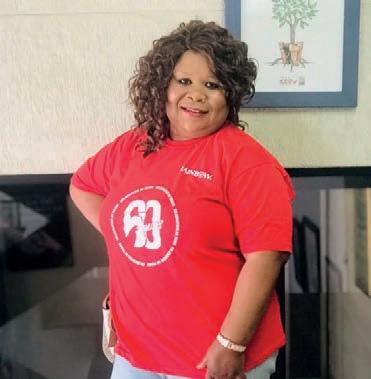
Anelisa Mangcunyana, regional commercial executive, KwaZulu-Natal
Dr Ivy Meso: veterinarian executive, Inland
Velisiwe Mpungose: senior process leader, Hammarsdale P2 Processing
A lifelong love of numbers and the thrill of complex problem-solving.
Protecting food security while pioneering innovation in livestock science.
Relentless pursuit of operational excellence and continuous learning.

• Integrated talent data: HR dashboards ag emerging female talent early, enabling cross-functional secondments before promotion bottlenecks appear.
• Sponsorship and mentorship: executives are paired with high-potential women and tasked with offering advice and opening doors.

Transitioned from audit trainee to regional P&L owner in just six years.
Helped steer the business through the worst avian in uenza outbreak on record.
Turned Rainbow’s companyassisted studies diploma into a promotion from process leader to senior process leader in May 2025.
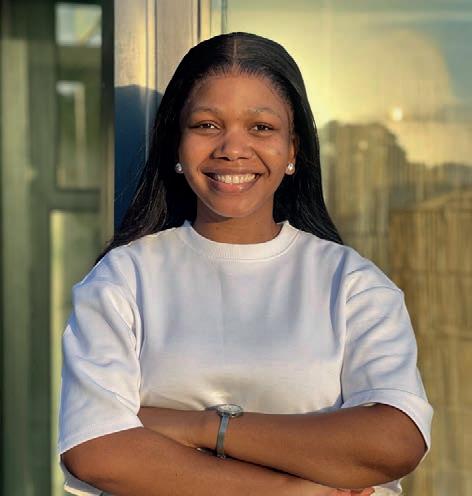
Empower people to own their space – when they feel trusted, they outperform.
Success is measured by the growth of the people you lead.
Stay consistent, keep learning and results will follow.
BREAKING BARRIERS IS LESS ABOUT BREAKING GLASS CEILINGS AND MORE ABOUT BUILDING LADDERS – RUNG BY RUNG, PROGRAMME BY PROGRAMME, STORY BY STORY.

According to the Food and Agriculture Organisation of the UN (FAO): “Gender equality and agrifood systems are intertwined; we cannot achieve one without the other.” Its 2023



Status of Women in Agrifood Systems report shows that two-thirds of women in sub-Saharan Africa already work somewhere along the food chain, yet they still earn just 0.82 cents to the male dollar and hold only 29 per cent of senior leadership roles worldwide. As South African boardrooms debate gender gaps, Rainbow offers a working blueprint: set targets, invest in multilayered development and amplify the women already leading with impact. Breaking barriers is less about breaking glass ceilings and more about building ladders – rung by rung, programme by programme, story by story.

VISIT WEBSITE
SCAN THIS QR CODE TO GO TO THE RAINBOW CHICKEN WEBSITE

For more information: +27 (0) 87 359 0476
www.rainbowchickens.co.za
Southdowns Ridge Of ce Park – Suit 12, Cnr John Vorster and Nelmapius Drive, Irene –Centurion, Gauteng, 0062
With burnout rising and pressure mounting, women must redefine wellbeing – not by doing more, but by breathing deeper, setting boundaries and valuing presence over performance.
By ANTHONY SHARPE
How can women maintain performance in high-pressure environments without sacri cing their wellbeing? We’re all under more pressure than ever. Economic, political, environmental and social stresses seem to be multiplying, bringing with them increased risk of mental and emotional fatigue.
The Risk Outlook 2024 report by International SOS found that 80 per cent of risk management experts foresaw stress and burnout signi cantly impacting business operations in the coming year,

“THERE ARE SPECIFIC WAYS OF BREATHING THAT CAN HELP US MANAGE HIGH-STAKES SITUATIONS, AND WAYS OF BREATHING THAT CAN HELP US TO LISTEN MORE DEEPLY IN A MEETING, SHAPE THE TONE AND THE PACE OF OUR VOICE AND BUILD A SENSE OF PRESENCE.”
– DR ELA MANGA
while 72 per cent felt similarly concerned about mental health issues.
Higher burnout levels among women compared to men have been reported for a long time, but if circumstances aren’t improving, what can women do about it?
Dr Ela Manga, founder and CEO of Breathwork Africa, says we’re at a time when women are dealing with a system that no longer serves them. “Women have a responsibility to shift their relationship with themselves. This means holding a space within the systems in which they live and work for everybody to relate to each other differently to humanise the work environment. It’s not about compromising the productivity of a company, but approaching productivity in a different way.”
Dr Manga says the systems in which we are raised have placed so much emphasis on logic and linear thinking that we have lost sight of the connection between life and its impact on us. “We become disconnected from what the body is communicating to us and desensitised to the need to rest.
“Over time, our nervous system shifts its baseline because we start living on more adrenaline-related energy. It’s almost as if we become addicted to our stress hormones, and our baseline level of operating shifts to one that is more driven by adrenaline and cortisol.”
Dr Manga says that while this is a complex issue, one practical, accessible strategy for dealing with this is by paying attention to a function we often disregard: breath. “When your baseline operating system has shifted to one that is more adrenaline driven, that is directly
re ected in the way you breathe. When you consciously bring attention to the breath and begin to change it more intentionally, that has a direct impact on your nervous system.”
Dr Manga says by breathing slowly, for example, you can downregulate the nervous system to calm down before going to sleep. “There are speci c ways of breathing that can help us manage high-stakes situations, and ways of breathing that can help us to listen more deeply in a meeting, shape the tone and the pace of our voice and build a sense of presence.”
Nozipho Tshabalala, CEO of Conversation Strategists, regularly helps mediate high-stakes discussions. She identi es three steps to coping with pressure.
“First is being disciplined in keeping distraction at bay – not just external but internal distractions. It’s easy to bring imposter syndrome with you and constantly be focused on questioning yourself instead of delivering on your value.
A survey by the American Medical Association found that 55 per cent of women reported feeling burned out, as opposed to 42 per cent of men.
“The second is ownership. What enables me to deliver in high-pressure environments is internalising what is needed for the job to be done, taking ownership of the preparation, the buy-in that needs to be secured and the support I need to bring on board.”
Tshabalala acknowledges that this requires being ruthless about controlling the things that are within your control, including scope creep.
That brings us to the third: value over volume. Tshabalala says that in the workplace and at home, the idea of doing as much as possible has been ingrained in women. “We need to move away from that. I’m not here to show how much I can do; I’m here to do what I need to do.”
Follow: Dr Ela Manga @ www.linkedin.com/in/ela-manga-93101932
Nozipho Tshabalala @ www.linkedin.com/in/noziphotshabalala
Side hustles have become a common path that working-class South African women take to gain an edge in the job market, writes HENNING NAUDE
Astudy published by Henley Business School in collaboration with In On Africa (IOA) titled “What is the Future of Work in South Africa?
Examining the Side Hustle Economy,” explains that there is an increasing shift away from a traditional working environment towards a dynamic market, “de ned by exible, on-demand freelance work”. It comes as no surprise then that more women are taking a stab at starting their own businesses.
Side hustles are, however, not only prevalent for the income they can produce, but also as an outlet for many women’s passion projects. Medical doctor and business owner Dr Janneke van Wyk attests to this as a woman working a full-time job while managing her business selling surgical scrubs. “I started my business in 2018 after I had colourful scrubs made for myself for work. I realised there might be a potential business opportunity as many coworkers started asking me about my clothes.”
OBSTACLES AND CHALLENGES
Being opportunistic and capitalising on market gaps are essential qualities when running a start-up business. Dr van Wyk started her business to pay off student debt, but also notes that it was a fun project since it wasn’t academically orientated. “It became a stress outlet for me.”
Although side hustling is a fruitful solution to a shortage of income or a way to pursue a passion, it does come with obstacles. Speci cally, Dr van Wyk mentions that time management and allocation of resources can be dif cult at times. “It’s important to understand what role your side hustle has in your work
life and the amount of attention it should receive in relation to your full-time job.”
Side hustles seldom tend to turn into full-time commitments, even if the business is highly successful. The Henley Business School and IOA study states that more side hustlers – 56.3 per cent – would probably or de nitely stay in their main job.
In terms of the percentage of women side hustlers in South Africa, the Momentum SMME and Side Hustle Insights Report 2023 indicates that women make up 58 per cent. The report states that this shows that not only are there many women already side hustling, but also that there is a real future for those who want to pursue it.
Salena Fourie, side hustler and marketing and communications lead at OceanHub Africa, believes the value of a side hustle is underestimated. “Many of us don’t only use side hustles to make extra money, but to gain what is more dif cult to negotiate

in full-time roles, such as having exibility and creative freedom.”
Fourie started her side hustle selling natural skincare products in late 2024. As a newcomer to the side hustle space, she has experienced both its bene ts and its challenges. “However, there are so many lessons to be learnt from entering this space. It has taught me grit and de nitely elevated my self-con dence when it comes to doing business. My side hustle is a one-man job, so I have learnt the importance of being my own biggest supporter.”
As the South African economy constantly uctuates and the unemployment rate remains a looming threat, women continue to nd innovative ways to not only sustain themselves, but also pursue their passions. This results in a market that caters to every niche and an opportunity for working professionals to start and manage their side hustle and even to employ others in their ventures.

Follow: Dr Janneke van Wyk @kikiscrubs Salena Fourie @ www.linkedin.com/in/salena-fourie-18784624b
Marrying impact with income, South Africa’s women-led businesses are proving ESG isn’t a cost; it’s a catalyst.
By LINDA REDDY , group head of supply chain at Nandos
South Africa, the world’s most unequal country with a Gini coef cient of 0.63, faces a complex challenge: aligning pro t with purpose in a landscape marked by economic disparity, environmental strain and governance hurdles. As environmental, social and governance (ESG) frameworks gain traction, stakeholders increasingly demand ethical leadership, climate action and social equity. For South African businesses, especially those led by women, the question arises: can ESG principles, grounded in inclusive leadership, generate both impact and pro t?
The answer lies in navigating this tension with strategic alignment, pragmatic execution and engaged shareholders.
However, amid these challenges, South Africa also stands out globally for its progressive approach to gender leadership in corporate governance. As of 2024, women occupy 36 per cent of board seats across companies listed on the Johannesburg Stock Exchange (JSE), surpassing the G20 average of 23 per cent. Small businesses, often led by women, are equally vital. They contribute around 30 per cent of gross domestic product and employ more than half of South Africa’s workforce.
Businesses tend to fall into four ESG categories:
• Profit-driven: focused solely on nancial returns, often at the expense of people and the planet, such as coal-heavy companies worsening pollution.
• Responsible: primarily reactive, adopting ESG to meet compliance and avoid reputational harm, for example, retailers improving labour practices.
• Positive: creating shared value by generating social and nancial returns, like food chains redistributing surplus food and building loyalty.
• Transformative: rede ning business models to drive systemic change, such as renewable energy rms pioneering green hydrogen or circular economy practices. Shareholders can catalyse change in all these models. A pension fund helped shift an energy company toward a transformative green hydrogen strategy, boosting pro ts. In retail, investor pressure for gender diversity led to leadership reforms that increased sales by 15 per cent over two years. A restaurant chain exempli es the transformative model by investing in women-led farming and small business ownership to secure a sustainable supply chain while enhancing community engagement and brand value.

skewed, 10 per cent of the








prefer brands with strong ESG credentials. Global
South Africa’s context is stark: an unemployment rate of 32.9 per cent, as revealed in Statistics SA’s Q1 2025 report, entrenched racial and gender inequalities and a continued reliance on coal, which still provides 80 per cent of electricity. Wealth distribution is highly skewed, 10 per cent of the population owns 86 per cent of national wealth. Against this backdrop, ESG is not optional. Consumers are speaking up: 70 per cent say they prefer brands with strong ESG credentials. Global investors increasingly favour companies with clear ESG commitments.













ESG adoption is both a risk and an opportunity and those who ignore it risk reputational damage, while those who embrace it often struggle with cost and complexity. Balancing shareholder expectations with purpose remains dif cult. Investors often prioritise short-term returns, questioning the cost of ESG initiatives like renewable energy adoption or gender equity programmes, especially in an economy growing at just 0.6 per cent in 2024. Yet women leaders continue to demonstrate the transformative power of values-based leadership through inclusive hiring, ethical sourcing and local economic empowerment, driving both impact and performance.
To make ESG work, businesses must prioritise material issues – emissions in energy and equity in employment – and embed ESG into their core strategy. Tie executives’ pay to progress on diversity. Be transparent. Form partnerships that amplify women’s voices. And, most critically, gain shareholder support for ESG-aligned resolutions.
South Africa’s women leaders, supported by engaged shareholders, are proving that purpose and pro t can not only coexist but thrive together. Women leaders excel at empathy, collaboration, long-term thinking and stakeholder awareness. Along with their values-driven approach, resilience and commitment to inclusion foster ethical, sustainable business practices for positive nancial and community impact.








The real question is not if purpose and pro t can align, but whether we choose to support those making it happen. In South Africa, women are already leading the way.
Follow: Linda Reddy @ www.linkedin.com/in/linda-reddy
CHANTYL MULDER led transformation at SAICA, championing education and diversity through the Thuthuka programme. Now CEO of Marketplace Academy, she shares why early intervention in schools is the key to building a more inclusive leadership pipeline
Acomplex mix of historical, socioeconomic, cultural and institutional factors shapes South Africa’s leadership landscape. Signi cant barriers to diversity in leadership include the lingering effects of apartheid, exclusive networks, gender bias and limited access to mentorship and development opportunities. These challenges are especially pronounced for youth in under-resourced communities, who face signi cant obstacles to leadership and personal advancement.
South Africa is missing out on its demographic dividend: more young people are eligible for work than ever, yet youth unemployment is alarmingly high. Young people are over three times more likely to be unemployed than adults. For youth, especially those in under-resourced communities, success in the labour market demands resilience, self-belief, and entrepreneurial skills.
Overcrowded classrooms and inadequate school infrastructure mean many learners do not master foundational skills, particularly in literacy and numeracy. These de cits accumulate, making it dif cult for students to succeed in gateway subjects like mathematics and physical sciences. As a result, enrolment in critical subjects such as physical sciences, mathematics, accounting and economics continues to decline, threatening the nation’s scienti c and economic progress capacity.
The Department of Basic Education (DBE) introduced the Three-Stream Model (TSM) to create multiple learning pathways –academic, vocational and occupational –within the national curriculum. The TSM aims to improve outcomes by aligning the
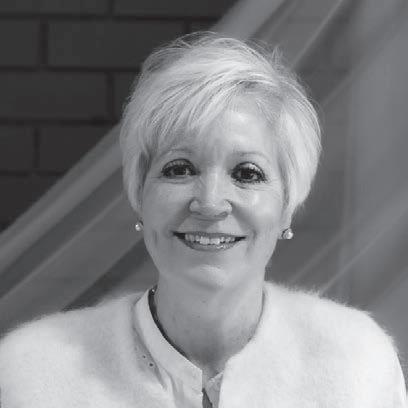
curriculum with learners’ interests and abilities, introducing vocational subjects in Grades 8 and 9 and occupational subjects in Grades 10–12.
The Marketplace Academy has piloted the TSM in eight schools, introducing artisan trades, agriculture, mathematics support and entrepreneurship through project-based learning. These initiatives provide learners with a matric certi cate and additional quali cations or competence certi cates, creating pathways to learnerships or further study. This approach is grounded in academic integrity and industry standards, aiming to equip students with skills relevant to the modern economy.
The success of these programmes, however, hinges on several factors:
• School leadership: successful programmes require full commitment from principals, senior management and school governing bodies.
• Empowering educators: teachers must be willing to acquire new skills and adapt to changing educational demands.
• Curriculum and resource gaps: the main challenge is aligning the DBE’s curriculum with occupational quali cations and industry standards. While reforms like the Curriculum and Assessment Policy Statement have aimed to standardise teaching, gaps remain in implementation, teacher development and resource allocation.
• Community involvement: schools are deeply embedded in their communities. Collaborative, community-driven approaches, supported by local leadership, are crucial to overcoming systemic challenges.
• The role of partnerships: partnerships between schools and the private sector, including community groups, nonpro t organisations, businesses and government agencies, are vital. These collaborations improve academic achievement, socioemotional development, resource access and equity. External partnerships can enhance programme quality and ensure relevant and effective curricula.
Transforming South Africa’s leadership landscape begins in under-resourced communities. Youth empowerment and development must start during school, not after. The abilities of youth from these communities are not inherent limitations; their challenges stem from poverty and marginalisation.
At the 2025 Basic Education Lekgotla, Minister Siviwe Gwarube emphasised the need for strategic partnerships: “The private sector has an essential role in alleviating our nancial pressures. We must build strategic partnerships that leverage private-sector innovation, investment and expertise to supplement our efforts. This is not about outsourcing education, but enhancing our capacity to deliver quality learning experiences to millions of children.”
Overcoming exclusion and achieving empowerment in South Africa requires systemic change, collaboration and a focus on equipping all youth with the skills and opportunities they need to become future leaders.
Follow: Chantyl Mulder @ www.linkedin.com/in/chantyl-mulder-a26972266
Women are reshaping South Africa’s property sector, bringing fresh perspectives, leadership and innovation to a historically male-dominated industry. By
RABIE PROPERTY DEVELOPERS











South Africa’s property development sector, both residential and commercial, remains largely male-dominated. However, progress is evident. A 2023 report by the South African Property Owners Association (SAPOA) revealed that women now occupy 28 per cent of senior leadership positions in the commercial property space, up from just 15 per cent in 2013.


Among the women reshaping the industry is Mariska Auret, CEO of Rabie Property Developers, and the rst female to hold the position in the company’s 47-year history. She leads a newly appointed executive team comprising COO Miguel Rodrigues, CFO Chris McMaster, and director Colin Green, under the guidance of Leon Cohen, who now serves as chairman after many years as CEO. Together, they represent a new generation of leadership, committed to building on Rabie’s legacy while steering the company into its next chapter.

“I’m genuinely excited about the future of Rabie,” says Auret. “This team is phenomenal, committed to our values and vision. I wouldn’t be as energised by this role if I were working anywhere else.
“Rabie is a company that plays the long game. We’re here to build lasting value – for our investors, our communities and our city. Our goal is to grow in a sustainable and strategic way, delivering projects that respond to real market needs.”

A quali ed quantity surveyor, Auret joined Rabie in 2014 as a project manager. From the start, she had her eye on the top job. “It all happened a little faster than I expected,” she says with a modest smile. “Early in my career, I identi ed Rabie as a company I really wanted to work for. I approached them and was fortunate to be given an opportunity. I quietly set myself a goal to become a director by the age of 35, and when I reached that milestone, I began to think about the possibility of taking on a bigger leadership role. Becoming CEO wasn’t something I ever assumed would happen, it came through hard work, focus and a lot of support and learning along the way.”
“RABIE IS A COMPANY THAT PLAYS THE LONG GAME. WE’RE HERE TO BUILD LASTING VALUE – FOR OUR INVESTORS, OUR COMMUNITIES AND OUR CITY.”
– MARISKA
AURET
Her interest in development grew during her time in quantity surveying, where she was exposed to various disciplines and projects.
“Development fascinated me because it’s so comprehensive, you need to understand trends, construction, nance, planning and how to deliver what the market actually wants. At Rabie, I had the chance to be deeply involved from

day one, across all functions: marketing, sales, conveyancing site work – even cleaning units before handover. That all-in approach is rare and it shaped my understanding of what good development looks like.”
This hands-on grounding, she says, is central to her leadership style.
“As I’ve done the work myself, I understand what my team deals with. Theoretical knowledge is one thing, but practical experience is another. It’s helped me appreciate each role in the value chain – from clients and consultants to the banks and project teams.
“Every project I’ve worked on has its own story,” she says. “When I drive past them, whether a commercial building or Clara Anna Fontein Residential Estate, there’s this quiet sense of pride: ‘We did that.’ Each one holds special memories and lessons – every development has shaped me in some way.”
While Auret champions both women and men in the industry, she acknowledges that women bring unique strengths, particularly when it comes to negotiation and collaboration.
“I genuinely believe women are strong negotiators. We tend to pursue deals
WHILE AURET CHAMPIONS BOTH WOMEN AND MEN IN THE INDUSTRY, SHE ACKNOWLEDGES THAT WOMEN BRING UNIQUE STRENGTHS, PARTICULARLY WHEN IT COMES TO NEGOTIATION AND COLLABORATION.
where everyone walks away satis ed rather than trying to win at all costs. That’s an incredibly important skill in our industry, especially in joint ventures and long-term partnerships.”
She also believes that being open to learning and remaining teachable has been one of the key factors in her growth and success.
“One of the strengths many women bring to this industry is the recognition that we don’t have all the answers. We’re open to learning and listening, and we’re not afraid to ask questions. That kind of humility can be a real advantage. I’m still learning every day, and I believe that
staying curious, asking questions and remaining teachable has been a key part of my journey.”
When asked what else has driven her success, Auret doesn’t hesitate: “Work ethic, adaptability, high standards, consistency and, most of all, strong relationships. I love people. Relationships are everything – whether with clients, partners or the team. Without trust, integrity and loyalty, you don’t have a business. That’s what we value at Rabie, and it’s how we’ve built our reputation.”


For more information: info@rabie.co.za www.rabie.co.za








Kearney is a leading global management consulting rm. For nearly 100 years, we have been a trusted advisor to C-suites, government bodies, and nonpro t organisations. Driven to be the difference between a big idea and making it happen, we help our clients break through. We are more than 5 700 people strong globally, supporting clients across 15+ industries such as nancial services, energy, metals and mining, the public sector, and many more.
Our rm has operated in over 40 countries across Africa since 1995, and we’re proud to be part of the region’s evolution. As Africa continues to rise, evolving economies, dynamic societies and new ways of doing business are reshaping life. This transformation brings bold ambitions, strategic plans, and high expectations –demanding impactful delivery across all sectors and industries.
Whether it’s strategic insight or practical advice you need, we’re here to partner with you to achieve your goals bringing our energy, passion for results and a proven track record to every engagement.
As a rm, we strive to be the difference for our clients, our people and society. Our people make us who we are. The Kearney family is distinctively real, relatable
and refreshing. We are not just advisors but partners – understanding our clients’ core needs and collaboratively driving sustainable success. We champion diversity and inclusion, unlocking the power of our differences to drive collective success.
We are committed to ve core principles that underpin our approach and shape our DNA.
“Essential rightness” is the bedrock of our values and fosters a culture where each of our people can thrive. We are a people business and always put our people rst. Our Code of Business Conduct demands that we treat everyone with respect and dignity, in a workplace free from discrimination and harassment. We aim to maintain a professional, safe environment that promotes teamwork, merit, trust and inclusion.
Our values – curiosity, generosity, boldness, solidarity and passion – are timeless and do not waver with external pressures. Diversity and inclusion have always been core to these values, regardless of laws or mandates, everywhere we operate. As Tom Kearney said: “The true strength of this rm, as in any organisation, lies in the fact that we


are all different. The strength inherent in this rm rests upon these collective and diverse interests. They are all we have.”
Kearney has long been a diverse and desirable place to work. We recruit, hire, train, promote and operate without regard to race, religion, gender, identity, age, nationality, orientation, veteran status, marital status or disability. This includes providing reasonable accommodations for disabilities or religious practices.
These principles enable a culture where everyone has a chance to succeed. Our high-performing environment depends on people being comfortable bringing their whole selves to work. We proudly promote inclusion and belonging for every individual in our rm.
Tom Kearney also reminded us that “no one, it can be truthfully said, ever succeeded in building enduringly into this rm by belittling the values brought by others. It is in the nature of teamwork that this can never be.”
In 2025, SKIN RENEWAL marks a remarkable milestone – 20 years at the forefront of South Africa’s medical aesthetics industry. What began in 2005 as a modest home practice has flourished into a national network of 20 clinics, delivering over 8 million treatments and transforming thousands of lives
The secret to Skin Renewal’s enduring success is a relentless commitment to holistic care, innovation and a people- rst philosophy, guided by founders Dr Maureen Allem and Victor Snyders.
Dr Allem’s journey into aesthetic medicine was shaped by her early days as a general practitioner. “I sensed a missing link between healing illness and helping people feel truly whole,” she recalls. “Everything changed when I personally experienced the subtle transformative power of aesthetic medicine. It wasn’t just about the outer change; it was about inner con dence. That spark led to the founding of Skin Renewal in 2005, a space where science and self-esteem could converge.”
Her vision evolved from a single clinic focused on nonsurgical treatments to a holistic, four-pillar approach blending advanced aesthetics, functional health, regenerative therapies and personalised care. “Our story is not just about beauty; it’s about transformation, empowerment and restoring radiance from the inside out,” says Dr. Maureen.
Skin Renewal’s journey, from Johannesburg origins to national expansion, prioritises wholly owned, digitally integrated clinics, ensuring personalised, safe and transformative care, and upholding the highest medical standards for every patient.
A pivotal moment came in 2013 with the launch of Health Renewal, integrating nutrition and lifestyle medicine into its offerings. This evolved into the four-pillar framework, setting Skin Renewal apart
as a pioneer in holistic aesthetics. The team also navigated regulatory hurdles, fought against counterfeit products and weathered the COVID-19 pandemic with adaptability and an unwavering focus on safety and quality.
The heart of Skin Renewal’s growth has always been its people. “We built Africa’s premier aesthetic training programme, mentoring doctors to deliver care that changes lives,” says Dr Allem. “Our true achievement is the trust we’ve earned and the con dence we’ve restored.”
Snyders, co-founder, life partner and architect by profession, brought a unique perspective to the business. “We literally started in a ten-square-metre home surgery,” Victor recalls. “I often tell people that we decided to take off in an aeroplane, but the aeroplane didn’t have wings – we had no idea what kind of staff to employ or how to structure a medical aesthetic business properly. This humbling experience taught me that admitting you don’t know everything is not a weakness; it’s the rst step towards growth.”
Snyders’ and Dr Allem’s leadership philosophy centres on investing in people. “Your single biggest asset in your business is not your equipment, it’s not your patients, it’s not your locations, it’s not your brand, it’s your people,” Victor emphasises. This approach has fostered a cohesive, high-retention team and a culture where every staff member is empowered to make a difference.
Continuous learning is another cornerstone. Both founders have travelled globally to stay ahead of trends in medical aesthetics and business strategy, ensuring Skin Renewal remains at the cutting edge. “Every two years, I put our business

through a complete reinvention process. In the fast-moving aesthetic industry, standing still means falling behind,” Snyders notes.
As Skin Renewal enters its third decade, the focus remains on natural results, regenerative medicine and the integrating lifestyle factors into skin health. “Our future lies in safe, cutting-edge, personalised solutions. My mission remains constant: to train the next generation of aesthetic doctors and ensure every patient walks away not just looking better, but feeling deeply empowered in their skin,” says Dr Allem.
Skin Renewal’s legacy is a testament to the power of passion, integrity and innovation. As the company celebrates 20 years, its founders remain committed to changing lives – one patient, one transformation at a time.


South African women founders are reshaping success – choosing purpose, wellness and impact over hustle culture. It’s not just business; it’s a movement towards meaningful entrepreneurship, shares SHIREEN MOTARA , founder and CEO of The Next Chapter Studio
In South Africa’s high-energy entrepreneurial space, success has traditionally been measured in pro t margins, scale and investor backing. However, for many women founders –myself included – these metrics feel limiting. They don’t capture the layered, human-centred reasons we start businesses in the rst place.
As women, our entrepreneurial journeys often stem from purpose, not just pro t. We are motivated by the need to create meaningful impact, challenge systemic inequalities and reclaim our personal and professional narratives. Yes, the obstacles are real – lack of access to funding, structural bias and work-life imbalance –but so is our power to rede ne what success looks like.
Whether it’s launching a new venture, changing careers or reimagining life after a major personal shift, I believe real success starts from within.
Self-awareness, self-leadership and emotional wellbeing aren’t soft skills; they are the foundation of resilient, values-driven leadership. When women are supported holistically, they create businesses that re ect their purpose, sustain their personal lives and ripple positively through their communities. This new model of success prioritises depth over scale, intentionality over constant hustle and sustainability over burnout.
We’re witnessing a quiet revolution: women using entrepreneurship to build safe spaces and support networks and

collaborative platforms. In this new ecosystem, competition gives way to community. Business models are designed not to stretch women thinner, but to give them more freedom and agency.
Success today includes setting healthy boundaries, curating client relationships and building in time to rest. It’s about choosing what fits over what simply scales It’s time South Africa’s national entrepreneurship narrative catches up. We must expand our de nition of success. Let’s celebrate the woman who launches her side hustle at 45. The mother who builds a brand on maternity leave. The founder who chooses to grow slowly to preserve her sanity. These journeys are valid. They are powerful. They are successful.
I believe the future of entrepreneurship lies in this intentional, values- rst approach –led by women. It’s about rewriting the rules, setting our own pace and leading from the inside out.
There was a turning point in my entrepreneurial journey when I moved from being the one asking for advice to becoming the one people asked. Insights, referrals, how-tos – even the “secret” to success. Let me be the rst to say that there is no secret. I don’t know it all – nor do I want to –but here are eight key lessons I’ve learnt from building Loop.
1. Assumptions are dangerous –ask more questions
Too often, we assume that someone else will solve the problem, or that a solution already exists. However, that assumption is usually shared and the result is ... inaction. There’s plenty of space for innovation if we choose to be curious. Curiosity must be active: ask, test, challenge. Whether it be about how the world works or how it should work, question everything.
2. Try it on for size
Entrepreneurship has given me the freedom to try new things. I draw inspiration from how others show up –in meetings, in leadership, in attitude. I try it on, see how it feels. We grow by trying on different versions of ourselves. What ts? What inspires? What empowers? Being willing to explore those answers is part of evolving.
THE ENGINE ROOM WHERE OPERATIONS HAPPEN, CHALLENGES EMERGE AND NEEDS ARE RAW.
3. Build in the boiler room, not the boardroom
Solving problems in business isn’t a theoretical exercise. We need to get our hands dirty. True innovation lives in the engine room where operations happen, challenges emerge and needs
Founder of Loop, KIMBERLEY TAYLOR , shares her most valuable lessons from building a tech business in South Africa. She offers honest insights, practical wisdom and bold inspiration

4. Ask “so what?” – all the time Entrepreneurs are born curious. However, it’s not enough to stop at “what if?” The next question must be “so what?” It’s a powerful prompt that pushes us to think deeper, stretch our TRUE INNOVATION LIVES IN
are raw. When we have empathy with the person experiencing the pain point, we understand its layers better. That’s when our solutions become relevant and real.
ideas and unearth meaning. Ask it often –in your marketing, product design and even your hiring decisions.
5. Be the HGB (hot girl/guy at the bar)
Hear me out on this one. It’s about attracting, not hard selling. In business, attraction beats desperation. Your product should draw people in because it solves a real problem beautifully – not because you begged them to look. Think of it like being the most con dent person at the bar. The energy you carry (and the value you offer) will do the work for you.
6. Be the villain in your own story
Sometimes, things don’t go our way. It’s tempting to blame others – the market, the team, the timing. But what if you were the villain in the story? It’s not about self-blame, but radical ownership. If I nd my part in the problem, I can x it. Control returns. Growth begins.
7. Take one small step – every day
The difference between having a big idea and building a business is action. Big things can feel paralysing, but one small thing? That’s manageable. Make the list. Write the email. Practise the pitch. Do what you can, now. Momentum doesn’t come from a leap; it comes from a series of small consistent steps.
8. The struggle is real – and it’s worth it People make assumptions. One I hear a lot is: “Your dad must be rich.” He isn’t. My childhood was chaotic and life wasn’t fair. However, I learnt early to nd purpose anyway. As a kid, I loved Matilda. Her power was visualising a better life. Today, I write down how I want my story to end and I work towards that vision. Business is hard. But there’s purpose on the other side of pain. Resilience is built in the trenches.
Business success isn’t a straight line. It’s messy, humbling and beautiful. I’ve learned that entrepreneurship is about more than just building a company – it’s about building yourself. Luck and timing matter. However, so does courage, discipline and joy. Keep learning. Keep doing. Keep showing up. Your best chapter might still be ahead.
Business icon Margaret Hirsch shares lessons on leadership, trust, late-blooming education and her drive to empower women entrepreneurs through mentorship and action. By
TRISHA HARINATH
Margaret Hirsch is no ordinary business leader. The dynamic co-founder of Hirsch’s Homestore, a celebrated retail chain in South Africa, is as passionate about empowering others as she is about business growth. Over the decades, she’s cultivated a leadership philosophy grounded in integrity, trust, resilience and an unwavering belief that it’s never too late to chase your dreams.

ISSUE
Celebrating the empowering women in the home décor, design and building industry.
Read the latest on designer kitchens and bathrooms.
Discover the maximalism interior trend where bold is big.
Glow up with the latest statement lighting.
Want to get the latest issue of SA Home Owner on your digital device?
Scan the QR code now to subscribe and save.


Margaret Hirsch
“I de ne leadership as helping others achieve their full potential,” says Hirsch, re ecting on her journey from humble beginnings to national business icon. “In the past, leadership meant telling people what to do. Today, it’s about enabling them to grow at their own pace and play to their strengths. It’s about getting the team to work together, accepting responsibility for their actions, staying focused and resilient and genuinely looking forward to coming to work every day.”
This people- rst approach has de ned much of Hirsch’s career, particularly her commitment to supporting women in business. Through the Women in Business initiative and networking clubs, she has helped countless South African women build thriving enterprises. Her message is consistent: start where you are, use what you have and begin now. “I’ve seen people with very little become successful entrepreneurs,” she says. “There is no perfect time, place or amount of money –you just have to begin.”
Her leadership ethos also emphasises discernment. One of the hardest lessons she’s learned? “Not to take everyone at face value, but, more importantly, look at what they’re doing to ensure they are genuine, honest and authentic. Trust, once broken, is never the same.” That realisation shaped her strict code of honesty, integrity and loyalty – the three non-negotiables she lives by and demands from her inner circle.
At 70, Hirsch achieved her MBA –a milestone not driven by ambition alone, but by purpose. “I came from a family that didn’t value education. When I nished school, there was no money to send me to university. I completed matric on a Friday and started my rst proper job on the Monday. I always wanted to study and knew I was capable, but one thing led to another, and it was only when I turned 60 that I began my tertiary education –starting with smaller courses like
Widely celebrated as a powerhouse in both business and community development, Margaret Hirsch’s contributions have earned her a host of prestigious accolades. Among them are:
• Businesswoman of the Year (Entrepreneur) by the Businesswomen’s Association of South Africa (2012).
• Lifetime Achiever in the Wholesale and Retail Sector at the South African Premier Business Awards (2015).
• Induction into the Global Women Leaders Hall of Fame (2014).
• Regional Winner for Africa at the Global Women in Leadership Awards (2016).
journalism and accounting, then progressing to a business degree, an honours degree and ultimately my MBA. I did it for several reasons: rstly, for my own satisfaction; secondly, to help me run my business, which was growing beyond my wildest dreams; and thirdly, to prove to others that it’s never too late to do anything you want to do.”
That same belief – that leadership is about unlocking potential and possibility at any stage of life – continues to de ne her ethos today. For Hirsch, leadership isn’t about power; it’s about showing up, staying curious and lifting others as you rise.
In a society that often asks women to lead quietly or not at all, authentic leadership is a radical act. For African women, the journey to leadership is not just about titles; it’s about courage, conviction and changing the rules, writes
JANINE HILLS , founder and CEO of Authentic
Leadership
Your silence will not protect you. Nor will your likeability. What is there to be liked if you’re complicit in your own erasure? Those words, spoken by the late American poet author, Audre Lorde, strike at the heart of a challenge African women leaders know intimately. In boardrooms across South Africa, a quiet revolution is brewing: one that demands we rede ne what effective leadership looks like.
OUR SOCIETY STILL REWARDS WOMEN FOR ACCOMMODATION RATHER THAN AUTHORITY. THIS “LIKEABILITY PENALTY” CREATES AN IMPOSSIBLE CHOICE: CONFORM OR RISK PROFESSIONAL ISOLATION.
In a nation where women comprise 51 per cent of the workforce, only 29 per cent hold senior management roles, according to the Women in the Workplace 2023: South Africa report by McKinsey & Company in partnership with Lean In. This disparity isn’t accidental, it’s systemic. The study also reveals that women who lead decisively are 30 per cent more likely to receive negative feedback than male peers exhibiting identical behaviours. The implications are clear: our society still rewards women for accommodation rather than authority. This “likeability penalty” creates an impossible choice: conform or risk professional isolation.
The Johannesburg Stock Exchange’s (JSE) latest gender report by Just Share, paints a sobering picture – there are only four women CEOs in the Top 40 companies and ve women board chairs. Executive-level gender diversity has declined year-on-year. Yet amid these challenges, pioneers such as Nolittha Fakude, chair of Anglo American’s South African management board, demonstrate what is possible when women lead authentically. Dr Precious Moloi-Motsepe was recently inducted into the International Women’s Forum Hall of Fame, joining visionary leaders including Ellen Johnson Sirleaf, Ngozi Okonjo-Iweala and Maya Angelou. Their journeys prove innovation thrives when we reject narrow de nitions.
THE FOUR PILLARS OF AUTHENTIC LEADERSHIP
These women have demonstrated the value of authentic leadership. Learning from several others, there are four pillars of authentic leadership women need to pursue to overcome the “llikeability penalty”.
1. Trust over popularity
As Sheryl Sandberg, author of Lean In: Women, Work, and the Will to Lead, observed: “Success and likeability are positively correlated for men and negatively for women.” The solution? Shift from seeking approval to earning respect through consistent, competent leadership.
2. Courageous innovation
From ntech to renewable energy, women such as digital pioneer Rapelang Rabana and the rst black woman JSE

chair, Nonkululeko Nyembezi, are rewriting Africa’s business narrative. Their secret? Valuing impact over imitation.
3. Uncomfortable truth-telling
Dr Judy Dlamini’s book, Equal but Different, challenges organisations to confront unconscious bias. Real leadership means articulating hard truths, not to alienate, but to elevate.
4. Strong back, soft front
Mining magnate Bridgette Radebe exempli es this balance, combining steel resolve with deep empathy. It’s a reminder that compassion and conviction aren’t opposites, but partners.
The numbers don’t lie: at current rates, gender parity in JSE leadership won’t come until 2065, according to World Economic Forum projections. However, statistics aren’t destiny.
To every woman reading this: your voice isn’t “too much” – it’s exactly what our continent needs. Your ideas don’t require softening to be valuable. And, your leadership, in all its unapologetic authenticity, is the key to unlocking Africa’s potential. As we stand at this crossroads, let’s choose audacity over accommodation. Not just for ourselves, but for the generations of women who will walk through the doors we kick open today. I believe that when you see people as equal, you create opportunities that are equal together. This is about equal opportunity.
Follow: Janine Hills @ www.linkedin.com/in/janine-hills-b05aa84



DR AMANDA HAMILTON-ATTWELL , leadership strategist and communication professional, explores how women leaders are embracing five key quotients to lead with strategy, empathy, agility and purpose in today’s
As the global business landscape evolves, so too do the demands on leaders. It’s no longer enough to rely solely on intellect or technical expertise.





Today’s leadership requires a broader, more integrated skill set, one that combines strategic thinking with emotional insight, ethical grounding, agility and commercial acumen.

This evolution is captured in ve core leadership quotients. While most people are familiar with IQ (Intellectual Quotient) and EQ (Emotional Quotient), three additional quotients are now considered critical to effective leadership: SQ (Spiritual Quotient), the ability to lead with purpose, values and integrity, AQ (Adaptability Quotient), the capacity to remain agile, resilient and composed under pressure, and BQ (Business Quotient), a commercial mindset that enables sound strategic and nancial decision-making. Together, these ve intelligences form a multidimensional leadership model, one that women leaders are uniquely positioned to embody. Many already demonstrate these capabilities instinctively, but when they are consciously developed and applied, they offer a competitive advantage for individuals and organisations alike.


Recent global research con rms what progressive companies already know: businesses with more women in leadership perform better. A 2023 McKinsey report found that companies in the top quartile for gender diversity on executive teams were 39 per cent more likely to outperform nancially. The Harvard Business Review echoed this, noting that female leaders frequently score higher in collaboration, integrity a nd resilience, traits that are critical in today’s complex environments.
The Harvard Business Review says today’s leaders must be thinkers, feelers, adapters, visionaries and value-creators –often all at once.
At the heart of leadership is the ability to think clearly, make sound decisions and manage complexity. Women leaders who combine IQ with BQ are well-positioned to drive innovation and business growth. However, what distinguishes great strategists is not just sharp thinking; it’s
the EQ to understand how decisions affect people and the SQ to ensure those decisions align with values and purpose.
Culture begins with leadership. Women leaders who lead with authenticity and purpose (SQ), foster psychological safety (EQ) and adapt to dynamic workforce needs (AQ) are building workplaces where performance and belonging can thrive side by side.
In a world de ned by disruption, adaptability is key. Women leaders with high AQ can lead teams through change with composure and clarity. When combined with EQ and SQ, they can reframe uncertainty as opportunity, while BQ ensures their decisions remain aligned with business outcomes.
Leadership is relational. Women leaders often excel at connecting across teams, functions and cultures. EQ enables them to read and respond to relational dynamics, while SQ anchors those relationships in shared values and trust. In stakeholder-intensive industries, this ability to unify and mobilise is a critical asset.
One of the most valuable roles women leaders can play is that of a mentor. By modelling leadership that integrates all ve quotients, she provides emerging leaders with a blueprint for success. A 2022 Catalyst report found that women with mentors are signi cantly more likely to advance and feel con dent navigating leadership challenges, especially when guided by women who lead with purpose and commercial impact.
Businesses looking to thrive in the future must champion leaders, especially women, who bring a blend of intellect, empathy, values, agility and business acumen. These are the leaders rede ning what leadership looks like in the 21st century. It’s not about whether women should lead. It’s about how they will shape what leadership becomes.
Follow: Dr Amanda Hamilton-Attwell @ www.linkedin.com/in/amandahamiltonattwell
Tech’s future demands diverse skills beyond coding. Women’s leadership, strategic vision and innovation are vital to reshaping the industry and breaking outdated barriers for inclusion,
writes BARATANG MIYA , founder of GirlHype
The technology industry has long been perceived as a male-dominated eld where success is synonymous with coding prowess. When I founded GirlHype in 2003, this narrow de nition created barriers for women seeking to enter tech. Two decades later, while arti cial intelligence (AI) reshapes industries and digital transformation accelerates, we still face an outdated mindset: that technical roles belong to coders, while leadership and strategy remain separate domains. This false dichotomy continues to exclude talented women whose skills are vital to building the future of tech.
Technology today permeates every sector, from healthcare and nance to education and entertainment (content creation). It demands diverse perspectives, not just technical skills, but also strategic vision, ethical consideration and human-centred design. A lawyer friend once told me she didn’t consider herself a “woman in tech” because she worked in cybersecurity policy rather than programming. Her story re ects a systemic issue: we’ve de ned tech too narrowly, excluding those who shape its impact on society.
The business case for gender diversity in tech is irrefutable. McKinsey research shows companies with gender-diverse leadership teams are 25 per cent more likely to achieve above-average pro tability. Women bring different life experiences that spark innovation, identify unmet market needs and create more inclusive products. I recommended a mentee of mine, a 19 year old with no formal tech training to Thomson and Reuters Innovation Lab in Cape Town in 2017. When she stepped into that project management role, she brought
fresh thinking that transformed how the team approached problems. The head of Innovation still considers her one of her best hires to this day. Today, that 19 year old is an innovation expert proving that potential often outweighs pedigree.
Yet barriers persist. While all women face hurdles in tech, black women confront compounded biases. Studies show they must demonstrate signi cantly higher competence just to be seen as equals. This is a systemic inequity that the industry must urgently address. Hiring processes frequently favour technical jargon over problem-solving ability. Workplace cultures celebrate coding marathons but undervalue collaboration and communication. Women face the “prove-it-again” bias, needing more credentials than their male peers for the same opportunities. These systemic hurdles require intentional solutions: rethinking job descriptions to focus on skills rather than buzzwords, creating sponsorship programmes that advocate for women’s advancement and highlighting diverse role models across all tech disciplines.
Education must evolve to prepare women for tech leadership. While coding boot camps have value, we need equal emphasis on digital uency –understanding AI systems, interpreting data and navigating ethical dilemmas. Soft skills like negotiation and stakeholder management prove equally critical for career advancement. Initiatives like scholarships, returnship programmes and

corporate training can create multiple entry points for women at different life stages.
The most powerful change comes when women claim their space unapologetically. We must step into leadership roles, whether founding start-ups or transforming corporate cultures. We need to mentor boldly, sharing not just successes, but also the stumbles that taught us resilience.
The next decade of technological advancement, from quantum computing to climate tech, requires women’s full participation. Women don’t need to t the old tech mould; they need to reshape it. Whether through product design that considers diverse users, AI ethics that prevent harm or business models that prioritise sustainability, our perspectives create better technology for all.
At the moment the message is clear: tech’s future isn’t about writing code, but about investment and writing the rules that will govern our digital world. Women belong at every table where these decisions are made, not as guests, but as architects and funders. The industry needs our vision, our leadership and our uncompromising belief that technology should serve humanity. That future starts when women stop asking for permission and start building tech.
Follow: Baratang Miya @ www.linkedin.com/in/baratangmiya
COLLEEN LARSEN pays tribute to a trailblazing nuclear physicist and leader who uplifted others through science, purpose, and sisterhood – leaving an indelible legacy of empowerment
It’s not often that you meet someone whose brilliance is matched by their humility, and whose presence quietly shifts the atmosphere. That was Senamile Masango.
We rst connected through Business Engage and the Gender Mainstreaming Awards, where she was named a Provincial Winner. Even then, it was clear – she wasn’t just an achiever; she was a force. A nuclear physicist, founder, advocate and global change-maker, Senamile wore many titles, but what stood out most was how she used her platform to uplift others.
What I admired deeply was how grounded she remained. Despite her
remarkable journey – from becoming the rst African woman to join an African-led research team at CERN to chairing national science and energy boards – Senamile carried herself with quiet con dence and a generous heart. She spoke often of purpose, of building the Africa we want, of leaving no one behind. And, she lived those words.

Senamile reminded us that leadership isn’t just about credentials or recognition (though she had many – including the International Women in Science Award and being named one of the 50 Global Inspirational Women of 2020). It’s about courage. About opening doors wide
enough for others to walk through. She believed in the power of women, in the promise of the continent and in the beauty of bold dreams backed by action. From her Zulu royal roots to her role on the BRICS Youth Energy Outlook, she embodied what it means to rise – and to lift others as you do. We’ve lost a visionary, but the seeds she planted – in science, in leadership, in sisterhood – will keep growing. Thank you for walking ahead so others could follow. We honour you. We remember you. And, we will carry your light forward.
Visionary jeweller and activist, Jenna transformed beauty into purpose – crafting iconic designs while championing gender equality and conservation with passion. By
LISA WITEPSKI
The sadness at Jenna Clifford’s passing was not con ned to her peers in the design eld. Several celebrities and high-pro le South Africans took to social media to express their grief, with businesswoman and former Miss South Africa Basetsana Khumalo calling her a “doyenne of craftsmanship”.

Jenna’s accomplishments were all the more impressive considering she was not formally trained in jewellery design. Jenna entered the industry at 19, shortly after her husband’s business failed and she needed to nd work. She started
humbly on the factory oor of H Urdang Manufacturing Jewellers, but quickly developed a deep understanding of every part of the business. This insight enabled her to launch her rst enterprise, Gold Swing, selling factory-made pieces.
Jenna Clifford Designs followed less than a decade later. She had identi ed a gap in the market for exquisite, unique, handcrafted jewellery made from the nest materials – and she lled it with creativity, purpose and air.
Her dedication to excellence earned her a reputation as a leading player in her eld and as one of the country’s most inspiring entrepreneurs. Awards such as
the Renmeester/Rapport Award for South Africa’s Most Inspirational and Beautiful Woman and the CEO Top Woman in Business Award af rmed her stature.
However, Jenna’s legacy stretches far beyond design. She was a renowned activist for gender equality and a passionate philanthropist. Appointed as a torchbearer for the advancement of women by the United Nations, she was equally committed to conservation, particularly the ght against rhino poaching.
Jenna Clifford’s life was an inspiration. Her loss is deeply felt, but her story – of resilience, vision and boundless creativity –will remain etched in our hearts.

73 CHARTING A NEW COURSE: THE CASE FOR A JUST ENERGY TRANSITION
The oil and gas industry has long been de ned by convention and capital. By: Cliffe Dekker Hofmeyr.
74 THE FUTURE WE LEAD
Why women are central to sustainable business and the law. By: Fatima Gattoo, directorReal Estate Law.
76 CROSSING THE AISLE
Allies in the struggle for gender justice and beyond. By: Nadeem Mahomed, director – Employment Law.
78 DISRUPTION, DETERMINATION AND DISCOVERY
Not your typical law story, but one about nding your niche. By: Lebohang Mabidikane, director – Competition Law.
79 WOMEN BREAKING BARRIERS AND SHAPING LEADERSHIP
Women play a powerful and positive role in leading transformation.

By: Lucinde Rhoodie, director –Dispute Resolution.






80 THE POWER OF THE PIVOT: LESSONS FROM AN UNCONVENTIONAL LEGAL PATH
Despite an on-off start to her career, mentorship has been the common thread in her career journey.
By: Denise Durand, director — Dispute Resolution.
81 MILESTONES, STRUGGLES AND TURNING POINTS
Rising to become a leader through experiences and challenges. By: Yvonne Mkefa, director –Employment Law.
82 FROM XENNIAL TO ZENNIAL: TWO LAWYERS, ONE JOURNEY OF GROWTH AND GROUNDING
How generational differences shape experiences in the legal profession and what it means to grow while staying grounded.
By: Nastascha Harduth, director –Dispute Resolution and head –Corporate Debt, Turnaround & Restructuring, and Tebello Mosoeu, senior associate.


84 THE ARCHITECTS OF SUSTAINABLE BUSINESS
Why women are central to sustainable business – connecting gender equity with business resilience and sustainability. By: Calinka Murray, Practice Development director.
85 WOMEN BREAKING GROUND
How women are carving a path in Namibia’s oil and gas sector. By: Ilda Dos Santos, director –Corporate & Commercial and Oil & Gas sector (Namibian Of ce).
86 ADVANCING GENDER PARITY IN INTERNATIONAL
The legal profession has long been marked by under-representation of women, however, international arbitration presents a more optimistic picture.
By: Veronica Connolly, senior associate – Dispute Resolution.
87 CHANGES, CHALLENGES AND COURAGE



Recounting her experiences in a not-always-smooth sailing career journey.


















By: Belinda Scriba, director –Dispute Resolution. 88 95 93 94






































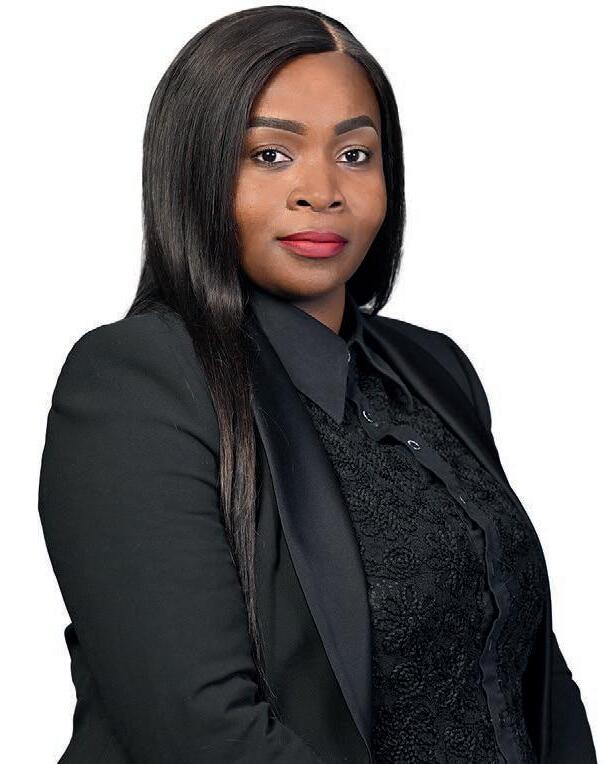









88 THE WEIGHT OF THE BLAZER
Re ections on her career, challenges, choices and responsibilities.
By: Deborah Sese, senior associate – Corporate & Commercial (Kenyan Of ce).
89 PREPAREDNESS AND OPPORTUNITY
Re ections on a career lled with aspirations, possibilities, challenges and achievements.
By: Sheilla Mokaya, associate –Corporate & Commercial (Kenyan Of ce).
90 LIFTING AS WE RISE
The importance of women mentoring women in law and business.
By: Brigitta Mangale, director –Pro Bono and Human Rights.
91 WHEN OPPORTUNITY KNOCKS
Sometimes, the most rewarding careers begin not with a plan, but with an unexpected opportunity.



By: Tessa Brewis, director –Banking, Finance & Projects and joint head – Projects & Energy.

















92 MENTORSHIP AND COLLECTIVE UPLIFTMENT

Stories from mentorship relationships that have changed the trajectory of careers and lives. By: Kuda Chimedza, director –Banking, Finance & Projects.
93 THE PEARL THAT BROKE ITS SHELL
Embracing her youth, identity and circumstances to take her place at the table.
By: Nomlayo Mabhena-Mlilo, director – Dispute Resolution.
94 SHOWING UP, AND DOING SO CONSISTENTLY
Secrets behind her success. By: Phetheni Nkuna, director –Executive Management Of ce and director – Employment Law.
95 THE FABLE OF THE FEE-BURNER
How the shared pursuit for excellence in the legal sector has shaped her career.


















96 PURPOSE WITH POWER
Empowering change in South African legal practice: the story of SA LawLabz, HiveLaw and the transformative role of female leadership.
By: Retha Beekman, managing director of SA LawLabz.
98 LEGAL REFORMS EMPOWERING WOMEN
Two pivotal employment law developments advancing gender equality in the workplace. By: Anli Bezuidenhout, director – Employment Law, and Nadeem Mahomed, director – Employment Law.
100 BUILDING A BRAND WHILE BUILDING CONFIDENCE
Re ecting on her career journey, mentorship and leadership.

By: Emma Hewitt, practice management director –Corporate & Commercial.

























By: Leila Moosa, senior associate – Employment Law.




























The oil and gas industry has long been defined by convention and capital. However, as we peer deeper into the mists of complexity, what this sector truly needs – and has always needed – is something bolder: a catalyst for transformation. Megan Rodgers, head of the Oil & Gas Sector at Cliffe Dekker Hofmeyr, embodies that bold, forward-thinking leadership – guiding the industry toward a more innovative and inclusive future.
By CLIFFE DEKKER HOFMEYR
According to the 2021–2025 Women’s Empowerment and Gender Equality Strategy for the Energy Sector, women make up just 20 per cent of South Africa’s oil and gas workforce, with a mere 17 per cent in middle or senior leadership roles. In a sector still shaped by deep-rooted barriers, where do aspiring women turn for a roadmap – or a role model? Enter Megan Rodgers who trained as an upstream mergers and acquisition (M&A) corporate and commercial lawyer. For the past decade, she has had a ful lling and fast-paced career in this unique area of law, viewing the energy sector in South Africa through an African lens.
“The energy sector sits at the heart of our nation’s growth story,” says Rodgers. “This is not just about volumes and capital. We need to focus on the transformation of our economy, our institutions and the opportunities we create for future generations.” Aligned with this, Rodgers brings legal precision, strategic foresight and a deep sense of responsibility to what she believes is one of South Africa’s most consequential industries. As a result, her name commands respect across boardrooms, government ministries and multinationals. However, it’s not just her expertise across the oil and gas value chain that sets her apart. It is her vision of an equitable energy economy that is commercially sound, socially inclusive and legally robust.
Rodgers is considered one of South Africa’s foremost experts on petroleum regulation and energy law. She is a trusted advisor on matters from upstream M&A transactions to the intricacies of the Upstream Petroleum Resources Development Bill in South Africa. Her work bridges the demands of global investors with the imperatives of national development. Yet, her leadership carries another weight: Rodgers is among the rst black women to occupy such a senior legal role in the male-dominated sector. And, she is determined not to be the last. “I’ve often walked into rooms where I was the only one who looked like me,” she re ects. “Now, part of my role is to make sure that changes.”
















frameworks that enable both investor con dence and broad-based participation.
Rodger’s leadership arrives at a pivotal moment. As South Africa accelerates the Just Energy Transition, the country needs legal minds who can translate ambition (and emotion) into action and do so with integrity. Rodgers is just that kind of leader. She does not just interpret the law; she helps shape the future it makes possible.
To the next generation of young women looking to get into oil and gas (or any industry for that matter), her advice is powerfully direct: “Be unapologetically excellent. Be clear on your purpose. Prepare thoroughly. Give yourself permission to learn every day, to make mistakes and to break down new barriers. Once you’ve claimed your space, use it to open the door for others.”
Rodgers isn’t simply advancing energy law. She’s forging a legacy – one deal, one policy and one up-and-coming leader at a time.













As part of this, Megan mentors young legal professionals with the same passion she brings to complex energy deals. She drives transformation not only through policy advice, but also through the culture she helps build within CDH, as a member of CDH’s executive committee, and across the profession. Rodgers also contributes thought leadership on the intersection of energy, justice and regulation, advocating for policy
















In the hive of leadership, true transformation begins with intention. When we speak of sustainability, the conversation often turns to technology, policy, and innovation. Yet one of the most powerful drivers of lasting change lies within our own organisations and communities: women.
By FATIMA GATTOO , director – Real Estate Law at Cliffe Dekker Hofmeyr
As we navigate an era de ned by climate urgency, social upheaval and economic recalibration, the case for centring women in sustainable business – and in the legal profession – is not just compelling. It’s critical.
NATURE’S BLUEPRINT: THE HIVE AS A MODEL FOR LEADERSHIP
Consider the honeybee. When a hive loses its queen – the singular being capable of giving life to the colony – it faces collapse: no new eggs, no future.
However, the bees do not panic. They respond with clarity and collective wisdom. They choose transformation.
LEADERSHIP IS NOT INNATE – IT IS CULTIVATED. TRANSFORMATION OFTEN BEGINS NOT IN TRIUMPH, BUT IN CRISIS AND VISION.
Ordinary larvae are fed royal jelly – a rare, nutrient-rich substance. This act of nourishment changes everything. The chosen larvae are not born different, but they are treated differently. Their bodies grow stronger. Their life spans expand. Their destiny shifts.
A queen emerges – not by birthright, but by care, vision and support.
This is not just biology. It is a lesson: leadership is not innate – it is cultivated. Transformation often begins not in triumph, but in crisis and vision.
In the legal profession, the metaphor holds. Law rms, like hives, are complex ecosystems. When faced with disruption – from climate regulations and environmental, social and governance (ESG) compliance to arti cial intelligence (AI) ethics and corporate accountability –they must respond not with fear, but with foresight.
And, in these moments, women lawyers rise – not by chance, but by crisis, vision and transformation.
The strongest leaders often emerge not from pedigree, but from potential. Not from privilege, but from preparation. Women in law, especially those who have been mentored, supported and fed opportunity, embody the qualities today’s clients and communities demand: resilience, empathy, clarity under pressure and a deep commitment to justice and sustainability.
Sustainability is not just about carbon footprints or climate disclosures. It’s about longevity, responsibility and building systems that adapt and endure. In law rms and boardrooms alike, this means cultivating leadership cultures that re ect society – diverse, inclusive and driven by long-term purpose.
Women bring transformative value in at least four critical areas:
• Collaborative leadership: like the collective intelligence of the hive, women often lead with inclusion, empathy and consensus – fostering cohesion and trust.
• Client alignment on ESG goals: female legal and business leaders are at the forefront of integrating environmental, social and governance principles, not just advising on compliance, but shaping ethical direction.
• Resilience during crisis: research shows women excel in crisis leadership, navigating transitions, social change and economic upheaval with steadiness and clarity.
• Mentorship and legacy building: women who rise often uplift others, creating sustainable leadership pipelines that rely not on luck or legacy, but on support and shared vision.
The bee shows us, without words, that in times of great crisis, despair is not a gamble, but a moment for clarity. A plan. The right choice.
In the hive, a queen is not born. She is supported. Fed. Guided. And so it is in life, law and leadership.
It is not what you start out with that matters most, but what you are given, how you are treated and the choices others make around you, especially in dif cult times. Sustainable business is not just about better products; it’s about better people, better values and better leaders. Sometimes, it is in the darkest moments that the strongest leaders emerge. Not by chance, but by crisis, vision and transformation.
To build businesses and law rms that thrive for generations, we must move from
tokenism to transformation. That means we must be serious about women. We must design ecosystems – like the hive – that nurture potential over pedigree, and cooperation over competition.
• Make equity intentional, not incidental. Choose equity not as a slogan, but as a strategy.
• Support, promote and invest in women at every level.
• Rede ne success – not as short-term pro t or billable hours, but as sustainable impact.
• Lead beyond the boardroom or courtroom into the community.
BUSINESS IS NOT JUST ABOUT BETTER PRODUCTS; IT’S ABOUT BETTER PEOPLE, BETTER VALUES AND BETTER LEADERS.
Just as bees respond to existential threat with remarkable instinct, so too must we meet this moment of global transformation by creating space for new leaders to rise. Often, those leaders will be women. Not by chance, but by choice. Not just for diversity, but for the future.
In the hive of business – the hive of the law – the future we lead depends on who we choose to support and how we choose to grow.
Women are not a “nice-to-have” in sustainability; they are central. They are the future we lead.


For more information: www.cliffedekkerhofmeyr.com


Allyship, particularly from those in positions of privilege, is more than a gesture – it’s a moral responsibility. True allyship to all women demands humility, self-reflection, and a willingness to lean into discomfort, writes NADEEM MAHOMED , director – Employment Law at Cliffe Dekker Hofmeyr
As a lawyer, I was trained to view the law as a powerful mechanism to shape and structure society; an instrument to right wrongs, resolve uncertainty and impose order. In many contexts, this is partially true: the law can provide stability and predictability, particularly where the rule of law is rmly upheld. Yet even in such contexts, the stability law brings is often layered upon histories of exclusion and violence. More often than not, the legal system upholds the prevailing social order even when that order is unjust.
Even where laws are progressive, the assumption that they automatically yield justice is misguided. The transformation of moral aspirations into legal principles does not guarantee the realisation of justice in lived experience. The association between law and justice is persistent, but
dangerously simplistic. Take apartheid South Africa as a stark example: legality and systemic injustice were often synonymous. Racial segregation, economic disenfranchisement and the violent subjugation of black people were legal norms, sanctioned by the judiciary and entrenched through statute. The same system upheld deeply patriarchal structures. In the Cape Colony, sanctions for sexual crimes against women were not applied equally. Race, especially that of the victim, determined how or whether justice was pursued. Women of colour were denied the dignity and protection afforded to white women, who themselves were not adequately protected from patriarchal violence within marriage. In these systems, the law did not correct inequality, it reinforced it.
Fast-forward to contemporary South Africa where gender-based violence remains a crisis. While the Constitution and statutory framework offer protection for all human bodies, the reality is dissonant. The gap between legal ideals and lived realities is often vast. It is from this place, of both legal training and life experience, that I write: not necessarily as a lawyer, but as someone acutely aware of the many ways exclusion is perpetuated, legally and otherwise. Misogyny, like racism, is not always overt or intentional. It can manifest subtly: in assumptions, in cultural norms and in systems where power is measured by conformity to a dominant mould. In the corporate world, discrimination often masquerades as a lack of “ t.” However, “ t” is frequently code for assimilation into pre-existing, male- (or race-based) dominated norms (how one works, demonstrates ability, speaks, thinks or socialises). Women and people of colour, among others, are often required to dilute or surrender parts of themselves to be accepted. They are judged against unspoken criteria that exclude difference.
TRUE ALLYSHIP DEMANDS MORE THAN SYMBOLIC GESTURES; IT REQUIRES SUSTAINED, TANGIBLE, AND PURPOSEFUL ACTION.
Toni Morrison captures this painful yearning for acceptance in The Bluest Eye, where a young black girl believes that if her eyes were blue, if she could embody whiteness, then she would be beautiful, she would be worthy. This internalisation of inferiority is not only in ction. It is the legacy of societies structured around narrow and harmful ideals of worth, legitimacy and exclusion.
In this context, allyship, particularly by those who occupy positions of privilege, which is always relative and shaped by circumstance, is not a mark of distinction, but a moral obligation. With respect to gender and gender identity, being an ally to women, including transgender women and transgender men, is not an act deserving of praise or celebration; it is a duty. It entails recognising human dignity and actively making room for others and being willing to relinquish power when justice so requires. True allyship demands more than symbolic gestures; it requires sustained, tangible, and purposeful action.
Genuine allyship is a process. It requires humility, re ection and the willingness to be uncomfortable. Declaring oneself “anti-sexist” or “anti-racist” is easy. However, real transformation requires acknowledging that systemic violence and exclusion are often executed tacitly, through structures, systems or traditions and silences. Often, those who perpetuate it do so unconsciously, as passive custodians of an unjust order.
To not be sexist (or racist, or homophobic, or xenophobic, or Islamophobic, or antisemitic) is not a xed state. It is a continuous ethical journey. It demands that we scrutinise our beliefs, our assumptions and the reasons behind our actions. It demands that we ask dif cult questions about the ideologies that shape our politics, economics, world views and everyday interactions. The ever so eloquent writer, James Baldwin once wrote, in respect of the American context:
“Whatever white people do not know about African Americans reveals, precisely and inexorably, what they do not know about themselves.” The same holds true for men in respect of women, or heterosexuals in respect of queer people, for example. Our prejudices, even when buried under years of moral labour, never fully disappear. They linger as the residues of the societies and communities that shaped us. They remind us of the persistent gaps in our ethical selves, gaps that require constant vigilance, care and correction.
MISOGYNY, LIKE RACISM, IS NOT ALWAYS OVERT OR INTENTIONAL. IT CAN MANIFEST SUBTLY.
Allyship, then, is not only about speaking on behalf of others, it is also about listening. It is about stepping back, stepping aside and sometimes stepping down. It is about confronting the hollow spaces within ourselves where prejudice and indifference thrive and refusing to let them de ne who we are, or what kind of society we build.


more information: www.cliffedekkerhofmeyr.com
Let me start with the ultimate disclaimer: law is not for the fainthearted. It’s not glamorous. You will not suddenly become in uential, prestigious or purposeful the day after you graduate. It’s a calling that demands all of you, especially at the start of your career. And, if you’re a young woman, particularly a young black woman, that demand can feel endless.
However, this is not a story of despair. This is my story of disruption, determination and discovery. One that, I hope, will inspire you to follow the legal path that works for you.
I didn’t follow the script. I became a mother straight after matric. While my peers lled lecture halls, I was working at a bank, raising a child. I stayed there for six years, steadily climbing, but always feeling like I was capable of more. Law wasn’t a passion at the time – it was a practicality because I needed to attain professional and nancial stability for my daughter’s sake.
At 24, I walked into my rst lecture hall. Most of my classmates were barely out of high school. I was soul-searching in tutorial rooms and packing lunchboxes in the morning. Balancing parenting with studying wasn’t a cute juggling act –it was a matter of survival. While my peers were buying their rst cars, I was catching taxis to class. I had to remind myself it wasn’t a race. I wasn’t competing. I was building something big.







A turning point came in my second year. I was accepted for a vacation programme at one of the top law rms in South Africa. That exposure was everything. It opened my eyes to what was possible. Thereafter, I went on to do vacation work at various top law rms every six months.












This is not your typical law story, which is precisely why you should read it, writes LEBOHANG MABIDIKANE , director – Competition Law Practice at Cliffe Dekker Hofmeyr
Even after excelling at university, nothing prepared me for articles in a top-tier rm. Nothing! It was like being ung into the ocean with only the theory of how to swim to keep you alive. I was the oldest in my intake. I was married. When serving articles you’re not a top student; you’re an extra pair of hands. It requires great humility to accept that you’re at the bottom of the food chain, which can be challenging.











I wanted to quit. The culture, the long hours and the fast pace drained me. My self-esteem was shredded. I was working myself into the ground, and it still didn’t feel like enough. When I nally nished my articles, I left practice to think about my career path; I was convinced I was done with practice. Then, I joined the Competition Commission as a junior merger analyst. That was my redemption. I felt valued, I rebuilt my con dence. My career ourished, and I learned something crucial: I was good at this, and I wasn’t done.












We don’t talk enough about how many women leave law practice and never return. This profession is intense and requires plenty of self-sacri ce. Without mentors, a support system or a reason bigger than the next promotion, you will struggle.
Becoming a partner at Cliffe Dekker Hofmeyr and a member of the executive committee was a milestone for me. However, it wasn’t the pinnacle. The real achievement has been learning to trust myself and knowing that the buck stops with me when it comes to advising clients and being comfortable with that. Now, I mentor young lawyers, especially women. I ask them the one question no one asked me during articles: “Is this what you really want and are you willing to work hard to grow in the profession?” I’ve seen people change their lives because of that question. Law has many paths. You don’t have to choose the one everyone else is on.


When I entered the legal profession in 1998 at the age of 23, the landscape for women was markedly different. Over the years, it has been encouraging to witness the transformation within the industry. Although the journey has been challenging, today we see a growing presence of women in courtrooms, client consultations and, increasingly, the boardrooms of leading law rms.
I am a director at one of South Africa’s top-tier law rms, where I practice in its Dispute Resolution department and lead a team that includes a female senior associate and a female junior associate. Sometimes I look back and wonder – how did I manage to get here? A signi cant part of my success, in addition to hard work and dedication, is due to the commitment, sacri ces and strides women have made in the legal profession.
LUCINDE RHOODIE , director –Dispute Resolution at Cliffe Dekker Hofmeyr, writes that women play a powerful and positive role in leading transformation
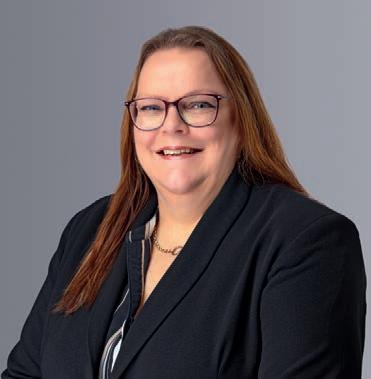
Our strength lies in embracing who we are – women in law – and leveraging that identity to lead with integrity and purpose. To pretend otherwise is misguided. The progress we see today is the result of generations of women who broke barriers and rede ned leadership in the legal eld. These advancements were not accidental nor were they easy; they were driven by individuals committed to change. The path forward demands continued advocacy, resilience and a collective commitment to equity.
We must continue to recognise, elevate and celebrate the invaluable contributions women make to leadership and social progress. Their collaborative and inclusive leadership styles, unwavering commitment to justice and equity and ability to drive transformational change are reshaping both communities and organisations.
Let us remain committed to creating spaces where women’s voices are heard, their leadership is celebrated and their impact is undeniable.
According to the 2024/2025 annual report published by the Law Society of South Africa (as it was then known), women now comprise approximately 45 per cent of the 33 929 registered attorneys. Furthermore, data from 2022 indicates that there has been a seven per cent increase in women holding CEO and managing director positions between 2019 and 2022.
While these gures re ect meaningful progress, signi cant work remains, particularly in traditionally male-dominated legal practice areas such as corporate and commercial, tax, banking and nance, and dispute resolution.
Young female attorneys often seek guidance on how to advance in this profession. My advice is simple: success does not require abandoning one’s identity.
Despite the progress, women still face systemic, cultural and institutional challenges, including gender bias, under-representation in executive roles and unrealistic expectations around work-life balance. Addressing these issues requires intentional action by all women in the legal eld. Women in leadership, in particular, must actively mentor emerging professionals, contribute to the development of gender equity policies within organisations and, most importantly, celebrate and amplify the achievements of other women.
Throughout my career, I have observed a growing culture of solidarity among women in law. In earlier years, young female attorneys often encountered more resistance from senior women than from their male counterparts. It has been great to see that, fortunately, this dynamic has shifted and mutual support among women is increasingly becoming the norm.
As Michelle Obama so powerfully stated: “There is no limit to what we, as women, can accomplish.” Her words serve as a reminder of the boundless potential that emerges when women are empowered to lead.


Despite an on-off start to her career, DENISE DURAND , director –Dispute Resolution at Cliffe Dekker Hofmeyr, reflects on her journey
Ihad the time of my life at university, so much so that in my penultimate year, I was unaware that many of my classmates had already secured articles at law rms or were actively pursuing them. By the time I realised I should be doing the same, it was too late. I accepted my fate and decided to take a gap year armed with a law degree.
Less than a few weeks into my gap year, my father gave me the boot, no daughter of his was going to sit at home with a degree. That push turned out to be pivotal. A university mentor referred me to an internship opportunity at a mining company. What began as a short-term role evolved into a two-year stint managing mineral rights at a mining exploration and investment rm. What seemed like a series of chance events would later de ne the sector where I would build my career. While working as a mineral rights manager, I attended law school part-time in the evenings and completed half of my board exams. Eventually, I knew I had to nish what I started. I resigned to take up articles at a small rm in Sandton, aware that not having articles would eventually become a stumbling block. It was a tough decision, one that meant taking an astronomical pay cut and moving in with a friend to reduce costs. However, it was an incredible experience. I learned fast, I had to. It was sink or swim. Within a year, I quali ed as an attorney, and six months later, I secured an associate role at CDH, where I have been ever since.
I never saw any of my roles as temporary or transitional. Whether onsite with geologists in Phalaborwa or handling matters at the Randburg Magistrate’s
Court, my mindset was always: “I’m here, let’s learn as much as possible.” I believe this openness allowed me to grow deeply and meaningfully.
Looking back, I now see how those early experiences laid a strong foundation. Today, as a director, it’s remarkable to see how mining-related matters make up half of my legal practice, an interest that began during that internship.
The common thread throughout my career has been the power of community and mentorship. A university mentor encouraged me to apply for the internship; a friend told me about a vacancy at a small rm and an acquaintance of a friend handed my CV to the hiring director at CDH. The relationships we have built, no matter how slight the connection, can impact our lives in unexpected ways. While “mentorship” has become a buzzword, I’ve been fortunate to have managers who actively trained and guided me. This journey has not been easy and as I continue to grow professionally, the nature of mentorship has evolved. It’s no longer just about technical skills; it’s about navigating the complexities of work-life balance. This balance is a pendulum swinging between sacri ce, boundaries, rest and nancial independence. I haven’t mastered it, and that’s why mentorship remains essential. It helps guide and reset, and I am where I am today because of the support I received from others.
Some people have a clear vision of their career path from the start. For others, like me, clarity comes in hindsight. I often sit with recent graduates or interns who
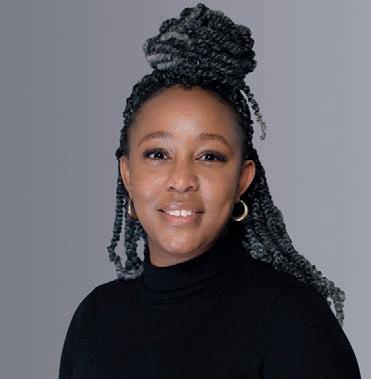
are grappling with grand ideas of how their careers should begin. Sometimes, these expectations cause them to overlook valuable opportunities because they don’t t a preconceived image of success. My advice: stay open and exible. The right doors often open when you least expect them and when they do, embrace them fully.


Leadership is a journey that involves others, and an individual rises to become a leader through their experiences and challenges, writes
The debate about whether leaders are born or made has persisted for ages. My view is that a person becomes a leader. Leadership is beyond innate abilities; it is about assuming the role of a leader and accepting the challenge to lead.
Having begun my journey at Bhekimfundo Primary School in Ekurhuleni, Gauteng, then studying law at Rhodes University, and now a director in one of the respected and leading law rms on the continent, I can attest that my journey has been one of becoming a leader.
Some individuals rise to leadership by repeatedly, consistently and diligently availing themselves of seemingly menial and mundane tasks. Over time, their consistent efforts are noticed, leading to greater responsibilities and involvement in signi cant projects.
YVONNE MKEFA
of analysis paralysis. We have come to know this as the impostor syndrome. What happens when you become conscious of your leadership role? How do you respond when you realise that your actions and words shape how others show up and perform in their daily lives and that your decisions steer organisations?
I APPROACH EVERY TASK AND ASSIGNMENT AS AN OPPORTUNITY TO SERVE OTHERS.
servant leader. I can trace this from my formative years and see it now in the way I approach important societal and life issues. One example is the longstanding ght to have “a seat at the table”. The ght is about diversity, equity and inclusion. However, it creates inner dissonance because it feels as if I must seek permission to serve others, and this does not resonate with me. There is no doubt in my mind, I became a leader. Although one could argue that I possessed leadership qualities all along, I cannot discount that the encouragement and belief of others enabled me to recognise and embrace my potential and gifts.









That has been the unassuming trajectory of my leadership journey. In my formative years, I led cultural events groups and cleaning projects. At university, I was involved in community outreach programmes. In the earlier years of my career as a young legal practitioner, particularly as in-house legal advisor, I was tasked with leading negotiations with employee organisations in SA and other parts of the world. In the latter years, when COVID-19 hit our shores, I was part of the crisis management committee for a listed company in nancial services, chairing some sub-committees.
You must be intentional about your leadership. You must be clear about your purpose, vision and direction. I became an ardent reader, reading about other leaders and their organisations. In 2022, I obtained a postgraduate diploma in leadership (cum laude) from Stellenbosch Business School (SBS). Through this course, I learned of my leadership style – servant leadership – and, more importantly, about responsible leadership



“The aim of responsible leadership is to create a better world for all and to ensure long-term sustainability,” states the SBS, Centre for Responsible Leadership Studies (Africa) website.



humbling. I never feel I have of I was part of the crisis nancial
Throughout this journey, maintaining balance has been crucial. It was essential to keep my home warm and ensure my family felt valued and an integral part of this journey. I am grateful to the Mkefa Clan for allowing me to “become”.
What’s next for me in my leadership journey? The title of Professor Bonang P Mohale’s book, Lift As You Rise, sums it up. As a leader, I must have a keen interest in the next generation of leaders. I must pay it forward.






























These were periods of unconscious leadership, lled with self-doubt and episodes

















Responsible leadership is not another leadership style, but a benevolent quality that must be engrafted in all forms and styles of leadership. I have embraced this call. This journey has been humbling. I never feel I have “arrived.” I approach every task and assignment as an opportunity to serve others. While I can lead using other styles, I am a hard-wired













Cliffe
Dekker Hofmeyr’s NASTASCHA HARDUTH , director – Dispute Resolution and head –Corporate Debt, Turnaround & Restructuring, and TEBELLO MOSOEU , senior associate in the same team, reflect on how their generational differences shape their experiences in the legal profession. One a Xennial, the other a Zennial, both navigating legacy, leadership and what it means to grow while staying grounded
















As women in law, the career journey is shaped not only by matters argued or contracts drafted, but rather by the moments that put you to the test, the mentors that lift you up, and the values that keep you grounded.
Q: Tebello, what drew you to the insolvency and restructuring profession?




Tebello: Early in my career, I worked with a director focused on insolvency. I noticed that we often came in too late –when companies were already distressed and disputes had escalated. That made me realise the value of earlier intervention, which helped me pivot more towards restructuring.
profession and continue to do so even now. As with many others, this profession really chose me rather than the other way around.
Q: Can you both share a memorable experience that shaped your approach?

Q: Nastascha, did the profession find you as well?





Nastascha: Absolutely. I started my articles in 2008 in an insolvency practice during the global nancial crisis. Work slowed down quite a bit during my commercial rotation in 2009 and when I was retained as an associate, I chose to return to insolvency practice. And then, business rescue was introduced just as the 2008 Companies Act took effect in 2011. You can say that I evolved with the


Nastascha: Early on, walking to court I was confronted by a vagrant who tried to grab and kiss me, which was really unsettling. However, it taught me a big lesson: con dence is key. I decided to walk with con dence and purpose after that, and it changed how I carry myself professionally (and, I haven’t been accosted by anyone since then). More recently, being involved in restructuring an airline and hearing from a stakeholder how I helped buy time and preserve jobs gave me real meaning and purpose in this work.
Tebello: I was involved in winding up a mutual bank and that, of course, required us to make recoveries in terms of the bank’s debt book. Given the various
“I HOPE WE MOVE TOWARDS PROACTIVE RESTRUCTURING WITH REGULAR FINANCIAL HEALTH CHECKS TO AVOID CRISES.”
– TEBELLO MOSOEU
corporate entities that held accounts with the bank, it really showed me in a very short space of time the different forms of recoveries and their applicability to various scenarios.
Q: What trends do you see shaping the insolvency and restructuring field?
Tebello: Generative arti cial intelligence is a big one that is being incorporated into most industries, and I think its application to insolvency and restructuring could be quite exciting. It could help with data analytics and early distress detection, giving companies more runway to get themselves out of nancial trouble. I hope we move towards proactive restructuring with regular nancial health checks to avoid crises.
Nastascha: The future of this eld is also shaped by economic cycles. However, one must bear in mind that mismanagement of companies can happen in good times and bad. During economic downturns, there may be a greater volume of cases, but quality restructurings tend to be better during economic upturns due to more available capital.

“THE FUTURE OF THIS FIELD IS ALSO SHAPED BY ECONOMIC CYCLES. HOWEVER, ONE MUST BEAR IN MIND THAT MISMANAGEMENT OF COMPANIES CAN HAPPEN IN GOOD TIMES AND BAD.”
– NASTASCHA HARDUTH
Q: What advice do you have for aspiring insolvency and restructuring professionals?
Tebello: Stay informed by reading industry publications, attending conferences, and especially networking. Joining professional associations like SARIPA or the TMA can also be invaluable for growth.
Nastascha: Tebello is quite right –organisations like SARIPA and TMA don’t only give you access to formal education through accredited courses, but you can also learn a lot from their members who share their struggles and triumphs. Also, nd a mentor who will guide you and
sponsors who will promote you when you are not in the room. Lastly and probably most importantly, nd meaning in what you do.

Q: How do you see the future of the profession?



Together, Nastascha and Tebello embody the evolving face of insolvency and restructuring law – deep expertise with fresh perspectives. Their stories reveal that success in this demanding eld is about more than legal acumen; it’s about resilience, empathy, continuous learning and the courage to lead through change.




as regulations and economic
Tebello: I think we will see the greater use of technology, a stronger focus on sustainability, and far more cross-border collaboration. Professionals will need to be agile and adaptable as regulations and economic environments evolve.













rescue. Unfortunately, I am also seeing far too many companies
Nastascha: While I agree with Tebello, I am also seeing a trend towards informal turnarounds (achieved by means of nancial and/ or operational restructuring) and away from formal processes like business rescue. Unfortunately, I am also seeing far too many companies going into liquidation that could have been saved through early intervention and a process like business rescue. Compromises in terms of section 155 of the Companies Act are underutilised, and I look forward to seeing if there will be an uptick in this area in the future.










For


As businesses across the globe shift toward sustainability, one of the most impactful, yet often underacknowledged, drivers of this change is the leadership of women. We are shaping strategy, embedding environmental, social and governance (ESG) principles into operations, and fostering workplace cultures grounded in inclusion, ethics and resilience. Our work is not just helping companies meet sustainability goals, it’s rede ning what sustainable success means.
The role I play within my organisation, alongside many other female legal professionals, illustrates that women are not just contributors to sustainable business; we are the architects.
Why women are key to sustainable business: linking gender equity with resilience and longevity.
By CALINKA MURRAY , Practice Development director at Cliffe Dekker Hofmeyr
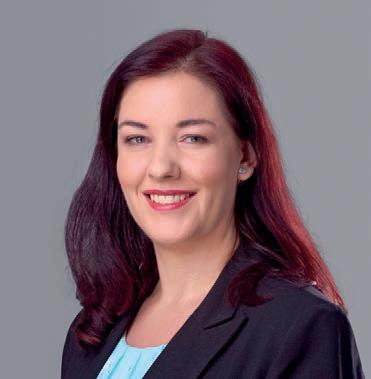
From a young age, I knew I wanted to pursue law. The ideal of doing what’s right and ensuring fairness deeply resonated with me. I started my career as a dispute resolution lawyer, but soon realised I was drawn toward building systems that support lawyers – especially junior ones –in more meaningful, lasting ways.
That realisation led me to a professional support lawyer role, and later, to complete a management development programme at the Gordon Institute of Business Science, equipping me with skills in operations, nance, innovation and strategy. Today, as a practice development director, I, among other things, lead transformation in one of my rm’s largest teams, helping shape the future of legal practice.
It hasn’t always been easy. Career paths are in uenced by many external factors. However, staying true to my values – prioritising growth and ful lment –has helped me chart a purposeful and sustainable career.
Sustainability is not just about climate and compliance; it’s also about people. A core part of my role is mentoring junior lawyers and building inclusive, supportive environments where these individuals can thrive. I’ve seen many women succeed in corporate legal practice, though few would say it was easy. The progress we’ve made is built on the efforts of those who came before us.
That’s why mentorship and advocacy remain essential. We all have a responsibility to be the change, supporting one another, opening doors and laying the foundation for future leaders.
Women across the legal profession in South Africa are leading ESG integration, structuring sustainable nance deals, driving climate risk disclosure and embedding ethics into business operations. My role focuses on aligning practice development with these goals: designing systems, processes and tools that re ect long-term thinking, social impact, commercial excellence and future-proo ng young individuals.
It’s not always smooth. Some innovations take time to prove their value. But in a rm like CDH, where agility is encouraged, I’ve learned that trial, error and persistence are part of driving meaningful change.
Inclusion fuels high performance. I strive to build a culture of openness, collaboration and knowledge sharing. Diverse teams where people feel safe to contribute consistently deliver better outcomes. Sustainability and inclusion aren’t separate goals; they reinforce each other.
Flexibility has also been key. As work models shift, I encourage people to de ne what balance looks like for them and communicate it clearly. This creates healthier engagement and more equitable, manageable work environments.
Women are not just supporting the sustainability movement; we’re leading it. Through mentorship, strategy, innovation and inclusive leadership, we are building businesses that are both principled and pro table.
The future of work and sustainability demands more than technical solutions. It requires people, especially women, who lead with courage, empathy and vision. For those of us who’ve taken a nontraditional legal path, the message is clear: we are not just adapting to the future of business – we are shaping it.



ILDA DOS SANTOS , director
office, discusses how women are carving a path in the Namibian oil and gas sector
When I began my career at the Legal Assistance Centre in 2001, I was driven by a desire to make a meaningful contribution to society. Over two decades later, having worked across public interest law, Namibia’s state-owned energy sector and now private practice, I remain deeply committed to helping organisations navigate complex challenges in a way that is legally sound, commercially viable and, increasingly, socially responsible.
I’VE
These experiences have shaped how I now view inclusion and leadership. Gender equity is about more than female representation; it’s how we build institutions, support people and make space for under-represented voices in decision-making. In my career, I’ve seen how women bring distinct insights to corporate strategy, governance and risk, particularly in sectors like oil and gas, where long-term thinking is critical.
One of my proudest achievements was earning a master’s degree in oil and gas law from the University of Aberdeen in Scotland. This academic foundation supported my work in the Namibian and Angolan upstream oil and gas markets as well as downstream and midstream sectors, where I advised on acquisitions and disposal of acreage through farmout processes, supply, distribution, storage and handling transactions, and participated in contract negotiations.
While progress has been made in Namibia, with more women now occupying senior roles in the legal profession, systemic barriers remain. Gender bias still creeps into client or stakeholder meetings, where male colleagues are sometimes assumed to be the leads by default.
To shift the status quo, we need greater allyship from our male counterparts –both by deliberately creating space for women to lead and recognising the value of diverse perspectives in decisionmaking. Effective support means not only giving women a seat at the table, but also considering them for leadership roles on equal footing and acknowledging their skills and contributions.
Looking ahead, I’m focused on broadening my exposure to more international upstream, midstream and downstream transactions. The legal challenges in cross-border oil and gas deals are evolving, particularly with growing expectations around ESG (environmental, social and governance) compliance. Women lawyers have an important role to play here – not just as legal technicians, but as strategic partners who can bridge commercial imperatives with broader social goals.
To young women pursuing a career in law, I would offer this advice: be resilient, assertive, focused and committed. Never stop learning. Reach out to experienced professionals to grow your knowledge and build your capabilities. And, most importantly, know that your voice and contribution matter. Women are not just part of that future – we are helping to shape it.

As a woman in Namibia’s legal sector, my journey has required assertiveness, resilience and a continuous willingness to learn. When I joined the National Petroleum Corporation of Namibia (NAMCOR) as legal manager, I was one of the few women operating at a senior level in a male-dominated industry. Being heard, especially in technical negotiations and high-stakes meetings, often meant having to prove my credibility repeatedly. I quickly learned to stand my ground, prepare meticulously and lead with competence and composure.
What made these experiences especially rewarding was the opportunity to build capacity in others, particularly young women in the legal and energy sectors.























meant having to prove my meticulously























During my time at NAMCOR, I supervised several interns and employees and embedded knowledge transfer into our processes and corporate and commercial, particularly in the oil and gas sector. For me, true mentorship isn’t about handholding; it’s about setting high standards, offering support and trusting others to rise to the challenge.



















While the legal profession has long been marked by under-representation of women, particularly at senior levels, international arbitration presents a more optimistic picture, writes VERONICA CONNOLLY , senior associate – Dispute Resolution at Cliffe Dekker Hofmeyr
From Asia to America to Africa, women occupy some of the most senior leadership roles at international arbitral institutions:
• Singapore International Arbitration Centre: both the CEO and COO are women, and over half of the secretariat is female.
• Judicial Arbitration and Mediation Services (JAMS), US: led by a female CEO and president.
• International Chamber of Commerce: presided over by a woman, with women comprising more than half of the vice presidents.
• Stockholm Chamber of Commerce (SCC) and Arbitration Foundation of Southern Africa: both led by female secretary-generals.
These examples suggest that, at the institutional level, gender parity is not merely aspirational, but is increasingly the norm. In that respect, the gap might be considered “closed”, although caution should always be exercised to ensure equal representation remains.
Representation of women on arbitral tribunals reveals a more uneven story. Institutional appointments re ect their leadership values, with a consistently high percentage of women being selected:
the story. The majority of appointments are made not by institutions, but by parties or co-arbitrators. In those instances, the proportion of women appointed is signi cantly lower:
• Female arbitrators were appointed by parties in LCIA arbitrations in just 22 per cent of cases in 2020, a proportion that had not improved by 2023 when it was just 21 per cent.
• The percentage of female arbitrators appointed by parties in SCC arbitrations has remained low and static over the last few years, uctuating between 27 and 31 per cent from 2022 to 2024.
• In 2024, only three per cent of appointments in proceedings before the Cairo Regional Centre for International Commercial Arbitration were women.
To address the disparity between appointments made by institutions and those made by parties and co-arbitrators, it’s important to understand why the gap persists.
visibility in sectors where the profession has historically been male-dominated. Encouragingly, arbitration practitioners have launched signi cant initiatives to address this disparity. This year marks the 10-year anniversary of the Equal Representation in Arbitration Pledge being drawn up. With an aim to achieve fair representation of women on arbitral tribunals, it now has almost 6 000 organisational and individual signatories across six continents. Transparency initiatives, such as institutions publishing diversity data, are also driving accountability and accelerating change. There is much to celebrate in the strides international arbitration has made toward gender equality, particularly at the institutional level. However the persistent disparities in re ecting equality in arbitrator appointments demonstrate that real change depends on greater engagement on the issue by parties, their legal advisers and arbitral institutions. Maintaining progress requires ongoing attention to diversity, not just in gender, but also in race, age and background.









48 per cent from 2018 to 2023.

• London Court of International Arbitration (LCIA): appointment of women by the LCIA court has remained high and stable, uctuating between 43 to 48 per cent from 2018 to 2023.









• SCC: appointed women in ect





• SCC: appointed women in 57 per cent of cases in 2024. However, appointments by institutions are only part of


One hypothesis is that appointments by and at institutions are subject to transparent processes with clear diversity policies and organisational accountability. By contrast, party appointment of arbitrators is governed by the discretion of parties (and their legal advisors), which can re ect unconscious bias or reliance on “safe” familiar names based on personal reputation and informal networks. This can lead to the overselection of male arbitrators who may have higher
and informal the





When choosing the legal profession as your career choice – no matter your ethnicity, gender or culture – you knew (and know) it was (and is) going to be gruelling (academically and in practice). Coupled with that I was choosing to take the path in the 1990s. What that meant, given South Africa’s history, was that I was naively gearing myself up to tackle a white-male-dominated industry, hesitant to accept change of whatever nature. Add to that the big, no-nonsense “personalities” for which law was (and is) renowned, a tradition of teaching by breaking you down. If you were different from the traditional norm, it was always, by the very nature of the circumstances, going to be brutal. My saving graces were these – I have been blessed by my Maker to be a Gen Xer, I had wonderful mentors, I found an awesome partner in life, and (albeit slower than we would like) times were primed to change and start breaking norms, where differences are embraced and encouraged and bad behaviour is intolerable no matter your status.
Has it been a smooth journey? Of course not. However, the dif culties make you stronger and appreciate where your journey has landed you (even if you are still on it).
The reason being Gen X is relevant is because we are the generation that has been willing participants in important, groundbreaking transitions. We embrace arti cial intelligence assistance, yet we also remember receiving faxes (and sometimes miss “those days”). We were afraid to push back lest the dire consequences, but now encourage, support and learn from the subsequent generations who refuse to accept that old “norms”. The advantage

THE PROGRESS WE SEE TODAY IS THE RESULT OF GENERATIONS OF WOMEN WHO BROKE BARRIERS AND REDEFINED LEADERSHIP IN THE LEGAL FIELD.
of this? The old ways made us resilient and adaptable, the new ways allow us to be better mentors and teachers and, yes, lawyers. The “old guard” has either moved on or learned to change (perhaps reluctantly at rst, but for the most part, while it has been and continues to be a challenging expedition to change, it is happening).
Boy, have I been through the “wringer” (I challenge you to nd someone in this profession who has not). Articles, personality clashes, being told that having a baby was a death knell to my career, corporate politics, unreasonable clients and malicious opponents. All of which, at some point, make you question whether it is worth it or whether you are worthy of it. However, and I cannot emphasise this enough, most importantly, people who have your back, who teach you and guide you, who pick you up when you are down, who take you under their wing when you come back from
maternity leave, who ght your battles for you when you cannot, who let you cry with them when you have lost some battles (and believe me there have been some epic losses) are what gets you through when being resilient and adaptable is not enough. I have been blessed with these people (of both genders) throughout my entire journey.
In a nutshell, how I got from there to here? God, tenacity, an unwillingness to just “die”, a willingness to adapt a nd amazing mentors (professional and personal).
I can honestly say that the best part about being a woman when I rst started practising (and sometimes still today) is that your opponents underestimated you, taking your gender and timidness for weakness. Their mistake. The worst part is that your colleagues had the same attitude.
My goal for the future? To be as awesome a mentor as I have had in my journey, to continue ghting the good ght for clients, colleagues and juniors alike and to have the courage to continue pushing for change in one of the oldest professions.


Using a blazer as a metaphor for responsibility, DEBORAH SESE , senior associate – Corporate & Commercial at Cliffe Dekker Hofmeyr’s Kenyan office, reflects on her career, challenges and choices
As a career woman, I have to choose the weight I carry every day, every minute and every second, but let’s go back a few years for context. I am an ordinary female, born and raised in Nakuru, Kenya. My mother, an ordinary woman from a not-so-well-off background who is a successful registered nurse, always impressed upon me that as a female, I must beat extra odds compared to male counterparts to achieve what I wanted in life. My mother has been a feminist for as long as I can recollect. When I asked her why university-entry grades in Kenya were lower for girls at the time, she explained that girls always start at a disadvantage – before they go to school, before they do their homework, they have to take care of some things, based on both nature and society’s gender role assignment. My father has been a great supporter of women empowerment and always afforded my brother, sister and me equal opportunities. He has also always supported his female siblings and contributed to their elevation in society.



While my parents’ efforts look like ordinary stories, they are worth telling to lightly demonstrate the role of parents in the choices their daughters make.

you believe is right, to take your place at the table and to not drop the ball when it comes to your family.
As a woman in legal practice, I have bene tted from good mentorship, which helped me beat many of the odds and enjoy my career as a family woman. My mentor, who was my supervisor from when I started my career, was very supportive, and when I communicated my intention to change employers, opened the door and wished me the best.
However, I have had to contend with the guilt of ambition, the consequences of the change in routine on my young family and the guilt of what could have been had I stayed on a bit longer, but I have recently understood the true meaning of change and hard choices. Surprisingly, male colleagues at my career level who have made such choices have not suffered from this guilt at any point. This realisation (and acceptance) informs my message to the ambitious girl/woman reading this –go for what you want, and it is okay to



HEAVY YOUR BLAZER IS AND HOW LONG YOU CAN KEEP WEARING IT.
battle with the doubt of consequences even as you make tough (but wise and informed) decisions.
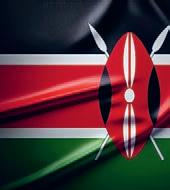




As a child, I worked extra hard in school, understanding that I had no room for failure. I set high goals for myself and believed I could achieve anything I put my mind to. Fast-forward to joining the legal career, in a eld of practice that can be quite competitive and consuming. Now in my sixth year of practice as a mergers and acquisitions and private equity lawyer, the blazer gets heavier by the day. The blazer is the choice to show up every day, to choose ambition over loyalty, to stand up for what



































Your nature as a human being is a nurturer; this means you will battle with the longing to nurture society, work relationships and loyalty. You, however, need to be conscious of your goals and what you have to do, and go for it with grace and good coping mechanisms to wear a blazer that weighs differently every day. In short, nurture yourself rst. Most importantly, you can reduce this weight by choosing wisely –a good employer, good friends, a good partner and a positive attitude. The choices you make every day affect how heavy your blazer is and how long you can keep wearing it.













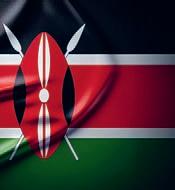
Reflections on a career filled with aspirations, possibilities, challenges
By SHEILLA MOKAYA , associate – Corporate & Commercial at Cliffe Dekker Hofmeyr’s
This being my birthday month, I re ect on aspirations, achievements, disappointments, and uncertainties, all of which are important for a balanced world view. Successes encourage us for the possibilities of the future and disappointments remind us that we are human and should be gracious to ourselves and others.
DO
NOT WAIT TO TICK ALL THE BOXES BEFORE SEIZING AN OPPORTUNITY AS THAT
I gured that the combination of a law degree, banking knowledge and my accounting quali cation would be a good t for transaction advisory. As such, I began the journey that has led me to my current position at Cliffe Dekker Hofmeyr.




As the rst-born child of my mother, a tailor, and my father, a welder, life has been a rollercoaster with many episodes in my childhood that have shaped my viewpoints. My “nomadic” experience, due to economic circumstances, saw me living in several towns in Kenya. It was very challenging to live away from home, and I quickly realised that if I wanted to have a better life, I needed to put in a lot of effort. Knowing what I know today, I wonder how I survived, but such are the Lord’s works – inexplicable. Would they be miracles if they could be explained? This upbringing instilled in me a sense of discipline and mental fortitude that has guided me so far. My parents’ love, belief and tenacity to ensure we received a quality education even in dif cult circumstances is something I will forever be grateful for.
WILL LIMIT YOU. THE SUREST WAY TO FAIL IS NOT TO TRY.










So, what are the lessons here? Firstly, give yourself a chance. Do not wait to tick all the boxes before seizing an opportunity as that will limit you. The surest way to fail is not to try. Open yourself up to the chance and learn while at it. Always ask for help and seize opportunities to showcase your abilities, rather than waiting for them to be presented to you. Secondly, pursue excellence. Strive to be and give your best in all that you do. Aim for the gold standard. Choose to be honest, to be dependable and to do things right. Always aim for the best. Thirdly, be strategic and prepare for the opportunities. While waiting for the next big thing, improve yourself, acquire new skills and learn a new art. Opportunity should meet preparedness.




and set pathways for one to accomplish more after secondary school. This was particularly critical for me as no one in my paternal home had gone beyond secondary school, and everyone had almost accepted that secondary education was the ceiling for us all. Fast-forward and I excelled in the national high school exams and was admitted to a law degree programme with government sponsorship. After admission to the bar, I worked as a legal counsel for a local bank and later obtained an accounting quali cation.
national examination for primary education and secured a place at one of the top


Zelda’s magical key,



While at Rusinga Island, I sat the nal national examination for primary education and secured a place at one of the top national schools in the country, Alliance Girls High School, which would test my resilience and later open up limitless possibilities. Like the proverbial Zelda’s magical key, this would be my key to unlocking many doors. It was a realisation that education can transform lives













Cliffe
Women constitute roughly 47 per cent of South Africa’s overall labour force. Yet, despite their overall presence, women remain signi cantly under-represented in senior management and leadership positions. Surveys conducted in 2024 revealed that women made up just 36 per cent of board seats in JSE Top 40 companies and only 23 per cent of executive management positions. While women are undoubtedly ambitious and aspire to career growth, they continue to face barriers to entry in advancing to higher-level positions. These barriers are varied in nature, but across industry and discipline, a common thread that cuts across these spaces is the absence of dedicated mentorship spaces for women on the rise, leaving a gap in women’s ability to aspire and inspire.
The value women in leadership positions add to business is undeniable. Female leaders are on average more trusted than their male counterparts, create spaces for collaboration and show empathy and compassion in engaging with their juniors and peers. Women in C-suite positions can offer unique and diverse perspectives, positively in uencing a business’s culture and environment, leading to increased productivity and pro t.

So, if this is what the data is showing, why do women still face these barriers to to entry, and


Dekker Hofmeyr’s BRIGITTA MANGALE , director – Pro Bono and Human Rights, discusses the importance of women mentoring women in law and business
why don’t we see more examples of women lifting as they rise, creating spaces for female juniors to thrive and excel, decreasing the need for these female juniors to have to reinvent the proverbial transformation wheel?



In my experience, the issue isn’t as straightforward as one would think. For as long as we can all remember, women have had to ght tooth and nail for a seat at the table, and then have had to continue to ght to be heard once seated at the table. In advancing my career, I have found that, on average, it was my male seniors who freely created mentorship spaces and dedicated themselves to my growth, while my female seniors seemed preoccupied. It was only as I began to grow in seniority that I began to understand this preoccupation: role, often, doesn’t equate to respect.
Most reputable businesses have internal transformation targets that require a certain number of women to ll positions at various levels within the company. However, unfortunately, most businesses simply leave it at that and
don’t take the further steps necessary to ensure their company moves towards true empowerment and transformation, not merely tick-box gestures. Structures are not put in place to allow women the choice to advance in their careers and simultaneously nurture their families, to deal with workplace harassment that doesn’t magically disappear when women rise through the ranks or break down the barrier to entry to the ever-elusive boys’ club. Instead, when women rise to power in title, they still have to ght to earn the respect of their male counterparts and for their voices to be heard.
The ght is not over when women are promoted; they must simply turn their attention to a different ght, leaving little room for attention to mentorship and empowerment. Businesses can better support women’s ability to create mentorship spaces by ensuring women in leadership positions are properly and meaningfully supported in their roles, allowing them to not only turn their attention to mentoring juniors, but also giving them the space to ourish and positively contribute to pro tability and culture. Women mentoring women is critical to a business’s success, but it can only be achieved through collective action and collaboration.


TESSA BREWIS, director – Banking, Finance & Projects and joint head – Projects & Energy at Cliffe Dekker Hofmeyr, writes that sometimes, the most rewarding careers begin not with a plan, but with an unexpected opportunity
Working as a lawyer in a large law rm for over two decades, with more than 18 years at my current rm, Cliffe Dekker Hofmeyr, has been both demanding and deeply rewarding. Much of my work has focused on the corporate and commercial aspects of projects, particularly in the renewable energy space. This has given me the opportunity to contribute, in a small but meaningful way, to sustainability – something that aligns closely with my personal values and brings added purpose to my professional life. Over the years, one of the key lessons I’ve learned is the value of gaining broad experience and a solid foundation before narrowing your focus. To young professionals, especially women entering the legal eld, I often say: don’t be in a hurry to specialise. Be open to unexpected paths, even if they don’t align perfectly with your studies or early career plans.
SHIFTING DIRECTION
Independent Power Producer Procurement Programme (REIPPPP), which created space for new practice areas to emerge.
The early stages of REIPPPP felt like a formative time in the sector. We worked to build teams with experience in project nance, corporate, construction, environmental, property law and economic development. Collaborating with international colleagues – many of whom were generous with their insights – helped us grow and develop quickly. Later my mergers and acquistions background also meant I became involved in some of the early secondary market transactions where clients sold stakes in operational renewable energy projects.
This kind of work also touches on broader themes – sustainability, inclusion and social impact – all of which are at the heart of the G20’s Sustainable Development Goals. It also serves as a reminder that women can lead and thrive, building expertise and creating space for others along the way. That, to me, is a powerful form of progress.


My personal journey re ects this. I started out concentrating on corporate and commercial law, with no plans to work in the energy sector. Then in 2009, when a colleague emigrated, I was asked to take over one of his matters and assist with a lease amendment for a wind farm. As a quali ed notary and conveyancer, the request made sense. At the time, I had no background in energy law and hadn’t given much thought to the sector, but that rst matter sparked an interest. One instruction led to another, and soon thereafter, South Africa launched the Renewable Energy
What continues to motivate me is the sense that our work contributes to something larger than any one deal. While legal work is often driven by business needs, I believe there’s real value in playing even a small part in helping South Africa shift toward cleaner, more sustainable energy sources.






























I hope more women feel encouraged to explore emerging elds like this where legal skills can align with meaningful change. Sometimes, the most rewarding careers begin not with a plan, but with an unexpected opportunity.


KUDA CHIMEDZA , director – Banking, Finance & Projects at Cliffe Dekker Hofmeyr, shares real stories from mentorship relationships that have changed the trajectory of careers and lives
The year 2023 marked 100 years of women meaningfully participating in the legal sector. Yet, two years later, I still nd myself in meetings where I am the only woman (of colour) present. There is still work to be done in opening doors for women. That said, I’ve been fortunate to build a career that illustrates how mentorship can be a powerful ladder for women to enter, engage and rise in law.
My introduction to mentorship was through my faith. At rst, my quiet demeanour and, if I’m being honest, lack of con dence (at the time), led to months passing without me approaching prospective mentors. I had not settled on a career, or anything really, until a church member offered to mentor me. She encouraged me to create a structured action plan for the next few years and this forced me to re ect and strategise. Dividing my life into categories, and speci cally planning for each of them, was the rst step to the career I now enjoy. She was brilliant and remained my mentor until her passing. Since she wasn’t a lawyer herself, there was a gap from a career perspective. So, I ended up having more than one mentor. Over the years, this has offered relief to mentors who generously offered their help, but didn’t have the capacity to be my “be-all-and-end-all”.
I’VE BEEN FORTUNATE TO BUILD A CAREER THAT ILLUSTRATES HOW MENTORSHIP CAN BE A POWERFUL LADDER FOR WOMEN TO ENTER, ENGAGE AND RISE IN LAW.
As the rst person in my family to pursue law, I was navigating unfamiliar territory. I met my second mentor through a law school mentorship programme. She taught me the prerequisites for a career in law: identifying strengths and weaknesses, dealing with imposter syndrome and other matters that would have been stumbling blocks in my career. Her guidance helped me to navigate law school and secure articles at one of the top rms in the country. She continues to provide great support as I grow in my career.
As a candidate attorney, I was allocated to a director who became a technical skills mentor. She walked me through key sections of legislation, line by line, ensuring that I truly understood our work. She sparked an interest so deep that I eventually completed my master’s degree with research on a question I had asked during one of our training sessions. She was one of many colleagues who invested in ensuring I had the technical training required to excel. I have also been informally mentored by other colleagues who modelled what a successful legal career can look like for a woman of colour. My rm’s former chairperson is a great example. She demonstrated how to conduct oneself in a corporate environment, including dressing appropriately for a legal career. Although I did not work directly with her, she regularly checked on my upskilling and reminded me to pursue work-life balance. Although there was no structured mentorship relationship, I learnt volumes from observing and chatting with her.
Informal mentors have also been impactful advocates who have changed the course of my career. There were no
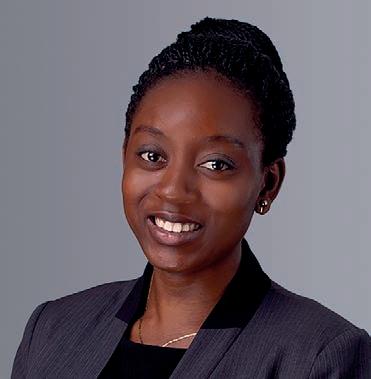
regular meetings to discuss career steps, but they became my sponsors in rooms I wasn’t in. Hard work and ambition could only take me so far. What moved the needle at key milestones was having people who advocated for me in my absence.
Mentorship has also come from unexpected sources. For example, a client who was a senior partner at another rm, now in-house counsel, provided me with invaluable advice on, among other things, business development. At this stage of my career, this guidance could not have been better timed.
I’ve been privileged to have many people invest in my growth. My career is evidence of the contributions of the women who brought me along as they rose and the men who choose to be allies in the upliftment of women in law.


In December 2014, a 19-year-old law student, experiencing Sandton for the rst time, carried the hope of a future that was in the hands of an interviewer at one of the big ve law rms.
What did not occur to me at that time was that more than my hand-me-down suit, I remained clothed in the circumstances I had temporarily left behind, which would inform my performance in this new world. I was uncertain, timid and lacking in con dence. My background was rearing its head in a different environment. From that day and many days thereafter, the anthem –she needs to break out of her shell – rang.
In her book, The Pearl that Broke Its Shell, Nadia Hashimi explores the ancient Afghan tradition of bacha posh, where a girl lives and behaves as a boy to enable her to behave more freely and effectively provide for her family. Essentially, the girl assumes a different shell to t into a particular environment and achieve a particular objective.













My shell consisted of numerous layers. I was signed to a large law rm at age 19 and set to commence articles at age 21. With age comes experience, of which I had none. Coupled with youth was a sense of naivety exacerbated by the unfamiliarity of the turf. I was the very de nition of “wet behind the ears”, in boardrooms over owing with grey hair, eloquence, wisdom and experience. I was enveloped in insecurity. Moreover, I was draped in femininity; adorned in melanin. The legal eld is historically a white-male-dominated industry. Granted, great strides have been taken towards transformation. However, it takes concerted effort to nd your place at





NOMLAYO MABHENA-MLILO , director – Dispute Resolution, claims her place at the table
the proverbial table and reconcile the mind with the fact that you have earned it. Many call it imposter syndrome. I had spent four years at the University of Pretoria, being grilled in preparation in the letter of the law, but nothing could have prepared me for the cognitive dissonance that would engulf me in the corporate world.
What I had to grapple with, was whether to assume my version of bacha posh to assimilate into this new environment or embrace my circumstances, which I naively thought would be of no consequence. The answer was clear: to break out of my shell, I not only had to embrace it, but also harness it. I had to create and take up space at the table.
















I made the crucial decision to use the formative years of my career, as a candidate attorney and an associate, to learn as much as I could from my principals. I adopted a teachable spirit and honed my technical legal skills to ensure I provide sound and practical legal advice to clients. I became keenly aware that cultivating my technical abilities in the banking and property litigation, insolvency, liquidation and restructuring, and public law sectors, allowed me to approach the work with a sense of con dence. I learnt how to interact with clients in a professional and self-assured manner.



knowledge, at age 23, I sat for the conveyancing exam and became the youngest black female to be admitted as a conveyancer in South Africa. This opened new avenues leading to a seat at the table. The beauty of youth is that I had a roadmap of those who had walked the path before me. I allowed my shell to absorb the experiences and knowledge of my forerunners. With growth, came con dence, and with con dence, security in self. Within ve years, I went from associate to senior associate and then director at the age of 28. This was not a consequence of losing my identity, but rather, embracing it and infusing it with the tools afforded to me, which reminded me that I earned that seat at the table.





In pursuit of practical legal

Drafting pleadings or giving an opinion to clients certainly comes easier than documenting one’s journey to and of leadership. What was particularly challenging in my journey and, I believe remains an obstacle for other women, is the absence of a blueprint to follow. As I pen this article, I hope to inspire hope, courage and audacity in those who are eager to take the baton. I share some of the principles that, I dare say, made success predictable. These were paired with systems I established to ensure I could produce and sustain the results.
First for me was branding. I have always been one to look for a differentiator. How do you show up before you even enter the room? What was my performance promise? I appreciated early in my career that I needed to build credibility through mastering my craft. Developing my talent and becoming great at what I do were important parts of my brand. Otherwise, my voice would not matter. In fact, I might never have even got a chance to be heard at all. It was important to know what I was doing and to be good at it. Linked to this is preparation. That is where I got con dence. I was ready, I knew the facts, I studied the law, identi ed loopholes and even foresaw sharp curves and U-turns.
Cliffe Dekker Hofmeyr’s PHETHENI NKUNA , director – Executive Management Office and director –Employment Law,
shares some of the secrets behind her success
development of female lawyers. Leadership goes beyond representivity. It is also about the corollary authority and having a voice. My sponsor threw me into the deep end –in matters, leading client engagements, and even championed by academic pursuits. He jokes about how he did not understand why a lawyer would want to do an MBA, but he supported me anyway. It was the gift of sponsorship, batting on my behalf. Getting my LLM and MBA were very much a part of the branding pursuit.
I BUILT A HABIT OF CONSISTENTLY DELIVERING EXCEPTIONAL OUTCOMES, IRRESPECTIVE OF THE CIRCUMSTANCES OR THE CLIENT.
In 2022, during our directors’ conference, I sat with another director and the CFO. During our lunch break, we chatted about associate attrition – the “Great Resignation” post-COVID-19. My MBA research had centred on the Theories of Motivation, looking speci cally at the Unfolding Theory of Turnover. Brie y, the Unfolding Theory highlights ve cognitive pathways (although more may exist) employees follow when deciding to leave an organisation. Understanding these pathways would propel the rm to put in place measures that would serve as shock absorbers and intentionally reduce the erosion of talent. It was this conversation that opened the door to the of ce I now occupy.
Beyond this point, my eyes are set on legacy. Ultimately, my goal is to have a professional presence that makes a difference. One of my passions is to mentor and sponsor, within and outside the rm, especially women, aiding other females in their professional development, building con dence and guiding them.



It took a lot of hard work, long hours and exposure to complex and niche matters. I was fortunate to have worked with an incredible attorney who did not “hold back the punches”. Sponsorships and making our male counterparts allies remain integral to closing the female leadership gap and advancing the career





Then showing up, and doing so consistently, even for the smallest opportunities. Through this, I built a habit of consistently delivering exceptional outcomes, irrespective of the circumstances or the client. As part of showing up, I re ned my language. Our bodies, circumstances, dreams and destinies pay attention to the words we speak intentionally or otherwise, there is no lter. It was important to speak well and reaf rm to my subconscious that I had what it takes, that I was capable and built for this. Added to this, was not ignoring the opportunity of networking – even with your colleagues.












EMMA
HEWITT , practice management director – Corporate & Commercial at Cliffe Dekker Hofmeyr, writes about how the shared pursuit for excellence in the legal sector has shaped her career
Afable is a short ctional story that conveys a lesson. Its characters are often animals that are given human qualities. N’est ce pas? (isn’t it). This fable’s star character has to be my spirit animal – Miss Piggy from The Muppets!
My advancing BIG 50 birthday serves as a milestone for re ection. My journey through the legal profession has been shaped by opportunities to create and curate bespoke roles for myself and I am privileged to have been granted the space to do so.
I started out practising law, but I have been a fee-burner for much longer and Je l’adore (I love it)! I have the luxury of working in law, but I no longer have to account for every six minutes of my day. My current role is a mixed bag of duties and responsibilities. This chakalaka of strategy, operations, talent management, business development, marketing and knowledge management appeals to me as I get to do the business of law versus the practice of law. In doing the business of law, I enable my colleagues to excel in their practice of law and ultimately deliver rst-class service to our clients.
Admittedly it has taken resilience over the years to navigate the predominant divide in law rms between fee-earners, lawyers directly generating revenue, and fee-burners, those in support functions who do not directly contribute to the bottom line. This dichotomy has made support staff of all descriptions feel less important and valuable to our rms, even though we are crucial to the overall operation and delivery of services.
Fortunately, I see a shifting of perspective, with the profession no longer strictly con ned to these traditional paradigms, especially as legal practice
evolves and adapts to a “new world order” of doing law. Fee-burners are integral to the legal ecosystem and rightful recognition of this can be secured through deliberately demonstrating our value creation. While (we think) we do this as a matter of course, perhaps we don’t, or not quite as we should, translate the impact of our work into monetary terms. We know that universally money talks in any business and in all languages, l’argent est roi (money is king)! Strategic value accretion needs to underpin and drive our deliverables. I have not mastered this yet. It is a work in progress to know and show my worth in this way. For fee-earners, it is their lived reality, with their performance measured mostly by nancial contribution.

and fee-burning, a law rm cannot thrive. This is why I regard the talent-focused element of my job as paramount. Many lawyers, like a crème brûlée, may initially appear hardened, but once you break through the caramelised veneer, you discover layers of fabulosity, authenticity and sometimes even vulnerability. This realisation challenges the stereotypes surrounding the profession and invites a more nuanced understanding of the individuals within it. I invest much of my energy and time in this as I believe it supports and underscores the importance of inclusivity and community within the legal profession. Understanding and appreciating one another better creates improved opportunities for collaboration and connection resulting in better performance and service to clients. It is only through collective effort that true progress can be achieved. As Miss Piggy would put it in her best French accent, law is about moi et toi (me and you) in the shared pursuit of excellence.

While demonstrable value accretion is an imperative I need to elevate in my priorities, it cannot exclusively replace or relegate other fundamental rst principles of how I work. My professional journey has also been shaped by impactful collaboration with wonderful colleagues, from all levels and corners of the organisations where I have worked. Without talent, both fee-earning


Retha Beerman
Empowering change in South African legal practice: the story of SA LawLabz, HiveLaw and the transformative role of female leadership.
By RETHA BEERMAN , managing director of SA LawLabz
As the world accelerates into the fourth industrial revolution, the legal profession is challenged to modernise – bridging the gap between traditional legal practice and the demands of modern practice. This includes the smart use of technology, while simultaneously removing barriers to entry to the legal profession based on gender, race or other arbitrary grounds and ensuring access to justice is not the preserve of a privileged few.
It is within this context that SA LawLabz (LawLabz) was conceived – a venture born not only of commercial ambition, but also
THE MAJORITY OF THE KEY ROLE PLAYERS (BUT BY NO MEANS ALL) WHO HAVE BEEN INSTRUMENTAL IN DRIVING THIS INITIATIVE FORWARD ARE WOMEN.
of a deep, shared commitment to social impact, equity and the empowerment of future generations of legal professionals.
The genesis of this ambitious plan was a coffee at Cliffe Dekker Hofmeyr’s (CDH) Cape Town of ces. Perhaps inspired by the grand view, a formidable team of academics (from the Nelson Mandela University), practising lawyers and legal technicians decided to put our collective heads together and come up with a platform that allows joint, multidisciplinary study of advanced legal technologies.
The result was LawLabz – a tech start-up with a dual mission: to deliver commercially viable products and services to the legal industry and enhance fair and equitable access to quality legal education and excellent legal services.
Our journey continued with a simple, yet profound question: How can we ensure that the next generation of legal professionals is equipped not only with legal knowledge, but also the digital skills and practical experience required to thrive in a rapidly changing world? How can we, as a collective, use technology to break down barriers to justice and empower communities that have historically been underserved?
We believed the answer lay in the modernisation of university law clinics –a critical training ground for future lawyers and a vital access point for community legal services. By transforming the way these clinics operate, we could simultaneously improve legal education, enhance access to justice and create a scalable model for broader legal practice reform.
GENESIS OF HIVELAW: TECHNOLOGY AS A BRIDGE, NOT A BARRIER HiveLaw became the practical embodiment of our mission. Built on a SharePoint environment, HiveLaw is a legal practice management platform tailored to the unique needs of university law clinics and small law rms. Its design was informed by extensive collaboration with the Nelson Mandela University Law Clinic, which served as our pilot site and a living laboratory for innovation.
Our objectives were fourfold: (1) enhancing service delivery to the clients of law clinics; (2) modernising legal education by providing students with hands-on experience in the “digital discipline” of modern legal practice; (3) establishing a platform that allows advanced and multidisciplinary study of advanced technologies to enable academic guidance to the legal industry or its use and regulation; and (4) creating a scalable model by developing a solution that could serve as a prototype for other university law clinics, small law rms and nongovernmental organisations, enabling them to access competitive practice management tools and compete more effectively.
IT IS A TESTAMENT TO WHAT CAN BE ACHIEVED WHEN DIVERSE TALENTS AND PERSPECTIVES ARE BROUGHT TOGETHER IN PURSUIT OF A COMMON GOAL.
And so HiveLaw was born. It streamlines the full life cycle of legal matters, from client onboarding and document management to work ow automation and compliance. It is not just a tool for ef ciency; it is a platform for learning, designed to integrate teaching components and provide students with practical skills that are directly transferable to the workplace.
The creation of SA LawLabz and HiveLaw was made possible by a unique coalition of partners, each bringing distinct expertise and a shared commitment to social impact. CDH, one of South Africa’s largest and most respected law rms, provided deep legal and technological insight. CloudEssentials, our technology partner, brought the technical know-how to develop a simple yet powerful cloud-based system, ensuring accessibility even in remote locations. Without the vision, generosity and passion of these founding contributors, we would never have been able to achieve as much as we have done.
Yet, something that might not be immediately evident is the fact that the majority of the key role players (but by no means all) who have been instrumental in driving this initiative forward are women. In a world still dominated by a male presence, it is truly something to be proud of – the extent to which the initiative was the brainchild of and is being driven forward by strong female leadership. Quite organically, it has become a women-led team, but with extraordinary support and encouragement from all our male colleagues. This is a team that truly embodies a workplace that has transcended gender – even more remarkable given that it is a highly technical space.
The role of our female colleagues –everyone from the Nelson Mandela University team and consultants StrategicPulse Consulting and MatterCues to the LawLabz managing director (I have the incredible honour of being in that role) – have a majority, if not exclusively, female team.
The impact of these female participants has been felt at every stage of the initiative and has helped position LawLabz as a model for inclusive, socially responsible business in the legal sector.
Moreover, the presence of strong female leadership has fostered a culture of collaboration, empathy and empowerment within LawLabz. In doing so, it challenges traditional notions of hierarchy, proving that there is no reason at all for gender disparities to persist.
The story of SA LawLabz and HiveLaw is, at its core, a story of partnership, purpose and the transformative power of inclusive leadership. It is a testament to what can be achieved when diverse talents and perspectives are brought together in pursuit of a common goal.
As we look to the future, I am proud to stand alongside our female partners and all those who have contributed to this journey. Together, we are not only modernising legal practice and education; we are building a more just, equitable and empowered society.
Let us continue to challenge the status quo, embrace innovation and ensure that the legal profession remains a force for good in South Africa and beyond.


Cliffe Dekker Hofmeyr’s ANLI BEZUIDENHOUT , director – Employment Law, and NADEEM MAHOMED , director – Employment Law, discuss
how enhanced harassment protections and evolving parental leave will reshape the workplace
The contemporary employment landscape has witnessed signi cant legal reforms that have fundamentally enhanced women’s rights and protections in the workplace over the past 25 years. These developments, while bene tting all employees irrespective of gender, hold particular signi cance for women who continue to navigate complex workplace dynamics and balance professional responsibilities with parental obligations. This article examines two transformative legal developments: the comprehensive expansion of workplace harassment protections and the evolving framework governing parental leave entitlements.
The judicial recognition of workplace harassment has evolved considerably, with courts now acknowledging that hostile work environments often stem not from the abuse of tangible economic power, but rather from the perpetuation of perceived societal power imbalances between men and women in relation to harassment based on gender and sex. This nuanced understanding has informed signi cant legislative reforms designed to create more equitable workplace environments and recognising that sexual harassment and sexist conduct should be untenable in the workplace.
On 18 March 2022, the Department of Employment and Labour promulgated the Code of Good Practice on the Prevention and Elimination of Harassment in the Workplace (the code), which superseded all previous codes relating to sexual harassment issued under the Employment Equity Act 55 of 1998. This code represents an important moment in employment law for several reasons:
• Expanded scope of harassment protection
The code’s most signi cant advancement lies in its comprehensive approach to harassment prevention. Unlike its predecessors, which focused primarily on sexual harassment, the code now addresses all forms of workplace harassment. This expansive scope includes protection against social origin harassment, thereby recognising the multifaceted nature of workplace discrimination and the various forms it may manifest.
• Extended geographic and temporal application
The code’s protective framework extends beyond the traditional con nes of the workplace. Protection now applies to any situation in which an employee is working or which relates to their employment.

This includes locations where employees take rest or meal breaks, utilise sanitary, washing, changing, breastfeeding or medical facilities, and extends to workrelated trips, travel, training, events or social activities. Signi cantly, the code also encompasses commuting to and from work in transport provided or controlled by the employer, thereby acknowledging that harassment can occur in various work-related contexts.
• Comprehensive definition of sexual harassment
The code provides a detailed de nition of sexual harassment, encompassing verbal, physical, nonverbal and quid pro quo harassment. Speci c examples include unwelcome innuendoes, suggestions and hints, sex-related jokes or insults, unwelcome graphic comments about a person’s body made in their presence or directed towards them, enquiries about a person’s sex life and the unwelcome display of sexually explicit pictures and objects. These comprehensive developments serve to empower women by providing clear, expansive guidance on what constitutes inappropriate workplace conduct. Unlike previous frameworks, the current code’s detailed enumeration of prohibited behaviours removes ambiguity and provides all people, including women, with concrete grounds for asserting their rights to a safe, respectful and equal workplace environment.
On 25 October 2023, the Gauteng High Court, delivered a groundbreaking judgement that fundamentally challenged traditional approaches to parental leave in the South African context. The court declared certain provisions of the Basic
Conditions of Employment Act 75 of 1997 (BCEA) relating to maternity, parental, adoption and commissioning parental leave, as well as relevant provisions of the Unemployment Insurance Act 63 of 2001, to be unconstitutional and invalid.
The declaration was based on these provisions’ failure to align with the constitutional rights to equality and dignity enshrined in sections 9 and 10 of the Constitution of the Republic of South Africa, 1996.
The case arose from the application of a heterosexual couple. During the mother’s pregnancy, the father sought to access the four-month maternity leave bene t from his employer as the mother was self-employed and circumstances necessitated an early return to work. The employer’s refusal, based on a maternity leave policy that restricted bene ts to birthing mothers only, exposed the discriminatory nature of existing legislation and highlighted the urgent need for reform towards a gender-egalitarian approach to parental leave.
The court’s analysis focused on the broader concept of child nurture rather than merely the biological act of childbirth.
The judgement recognised that in respect of nurturing activities (excluding breastfeeding), any parent possesses the capacity to provide comprehensive care to their child. The court found the existing BCEA provisions fundamentally awed as they failed to recognise family dynamics where both parents are equally committed to child nurturing.
The court found no cogent justi cation for distinguishing between birthing and nonbirthing parents (including adoptive parents or those who have commissioned surrogacy arrangements) regarding the nurturing care newborn babies require for their safety and optimal development. The judgement emphasised that the assumption that birthing parents should invariably serve as primary caregivers fails to consider diverse parental arrangements and contradicts the constitutional principles of gender equality and human dignity.
The court described parenting as “sui generis and undoubtedly onerous, involving actual work, resilience in the face of exasperation, anxiety, unrelenting close attention to the newborn, extreme exhaustion, sacri ce of sleep and sacri ce of the pursuit of other interests”. The judgement recognised that fathers

who choose to participate fully in this experience, for their own wellbeing and that of their children and partners, have legitimate grounds to challenge the unfair discrimination inherent in the BCEA’s unequal recognition.
Furthermore, the court acknowledged that mothers have an equally valid complaint against legislation that assigns them the role of primary caregiver who must “bear the rigours of parenthood single-handed”, emphasising that such arrangements should be matters of family choice rather than legislative prescription.
This judgement represents an extraordinary development towards equitable parental responsibilities. Should the Constitutional Court con rm this decision, female caregivers would be empowered to adopt family arrangements that best serve their speci c circumstances and preferences. This development would remove the legislative presumption that women must serve as primary caregivers and instead recognise family
autonomy in determining caregiving arrangements. However, until the Constitutional Court weighs in on the matter, the status quo remains.
Both legal developments examined in this article serve to empower women by contributing towards the creation of safer and more inclusive work environments. The comprehensive harassment protection framework provides women with clear, enforceable rights and expanded avenues for protection, while the evolving parental leave framework challenges traditional gender roles and promotes genuine equality in family responsibilities.
These reforms represent signi cant progress in dismantling systemic barriers that have historically disadvantaged women in the workplace. By providing legal protections against harassment and promoting gender-neutral approaches to parental responsibilities, these developments create a foundation for true workplace equality. The impact extends beyond individual rights, fostering cultural shifts towards more equitable and supportive work environments that bene t all employees while speci cally addressing the unique challenges faced by women in professional settings.
The trajectory of these legal developments suggests a continued evolution towards comprehensive gender equality in employment law, with implications that extend far beyond the workplace into the broader fabric of South African society.


LEILA MOOSA , senior associate – Employment Law at Cliffe Dekker Hofmeyr, reflects on her career journey, mentorship and leadership
Ivividly remember the early days of my legal career. Determined, capable (although it took years for me to believe that) and quietly aware of how few women occupied leadership roles in the of ces I walked past. As early as my rst “Big Law” interview when I was asked when I planned to have children, I was acutely aware that success in the legal eld did not just demand intellectual rigour; it demanded resilience. Especially for women and more so for women of colour.
I entered corporate law with little insight into “what to expect” beyond the select experiences of candidate attorneys at university career days. I knew there would be long hours. I knew performance expectations were high and regurgitating textbooks would offer little value to the team or the client. Fresh out of university, this was a major ask. It felt like there was simply so much law. That there was so much work to do even to be considered as adequate. How would I ever feel con dent that what I am producing is correct? What if it is wrong?
ONE OF THE MOST DEFINING ASPECTS OF MY CAREER HAS BEEN THE WOMEN WHO SAW SOMETHING IN ME BEFORE I FULLY SAW IT IN MYSELF.
Today, as a senior associate (having had one exit and return to the profession), I know that no practitioner knows everything. Some are close but they do
not know everything, even if they pretend to. Every practitioner must read, research, debate and consider the application to the matter at hand. There is no magic formula. There is no single answer. For me to understand this took time, a few detours, a lot of learning and, most importantly, the support of those who came before me.

One of the most de ning aspects of my career has been the women who saw something in me before I fully saw it in myself. Their mentorship was beyond guidance or teaching me the technicalities of the law; it was about being given permission to dream bigger. It was about seeing a future where I could be a partner or director at a corporate law rm.
I distinctly remember the female partner who included me, a junior, in her matters when the work ow in my existing team had slowed down. There was no obligation for her to do this. I was not in her team. I was not her responsibility. There was no need for her to take time to train me, but she did. Now, I make it my mission to do the same. To take the extra step, in whatever form I can. Even if it is “less convenient”. Even if it makes me “less ef cient”.
Leadership today looks different from what we inherited. It is no longer about titles or tenure, but rather about impact. It demands leading with values, building workplaces that are psychologically safe and advocating for equity in boardrooms and beyond.
To the young women entering the legal profession, you belong here.
There is no easy “way to the top”. It takes hard work. It takes perseverance, shifting gears and rethinking strategy at times. Spend time thinking about what drives you, what makes you unique. This is how you identify the value that you bring to your team and to clients, which, in turn, attracts like-minded colleagues and clients.
Know that those who have come before you (and me) have chipped away at barriers to allow us to break down the barriers in our paths.
When motivation is lacking and in despondent days, remember that your presence matters and your journey, career and success will not look like anyone else’s. It is not meant to.
Together, we are shaping more than the future of law. We are shaping a future world of work that is more inclusive, more rewarding and ultimately more sustainable for everyone.



